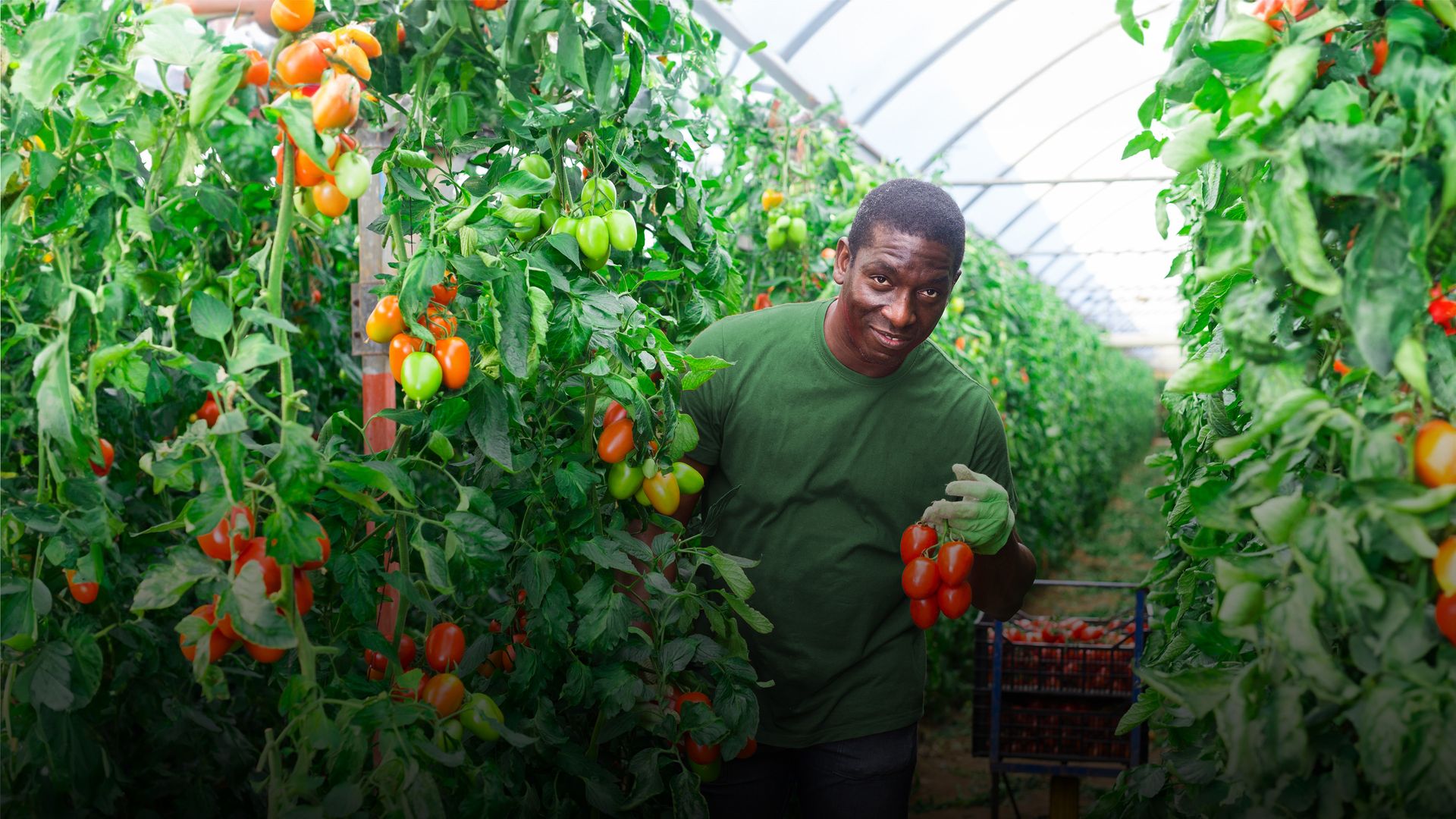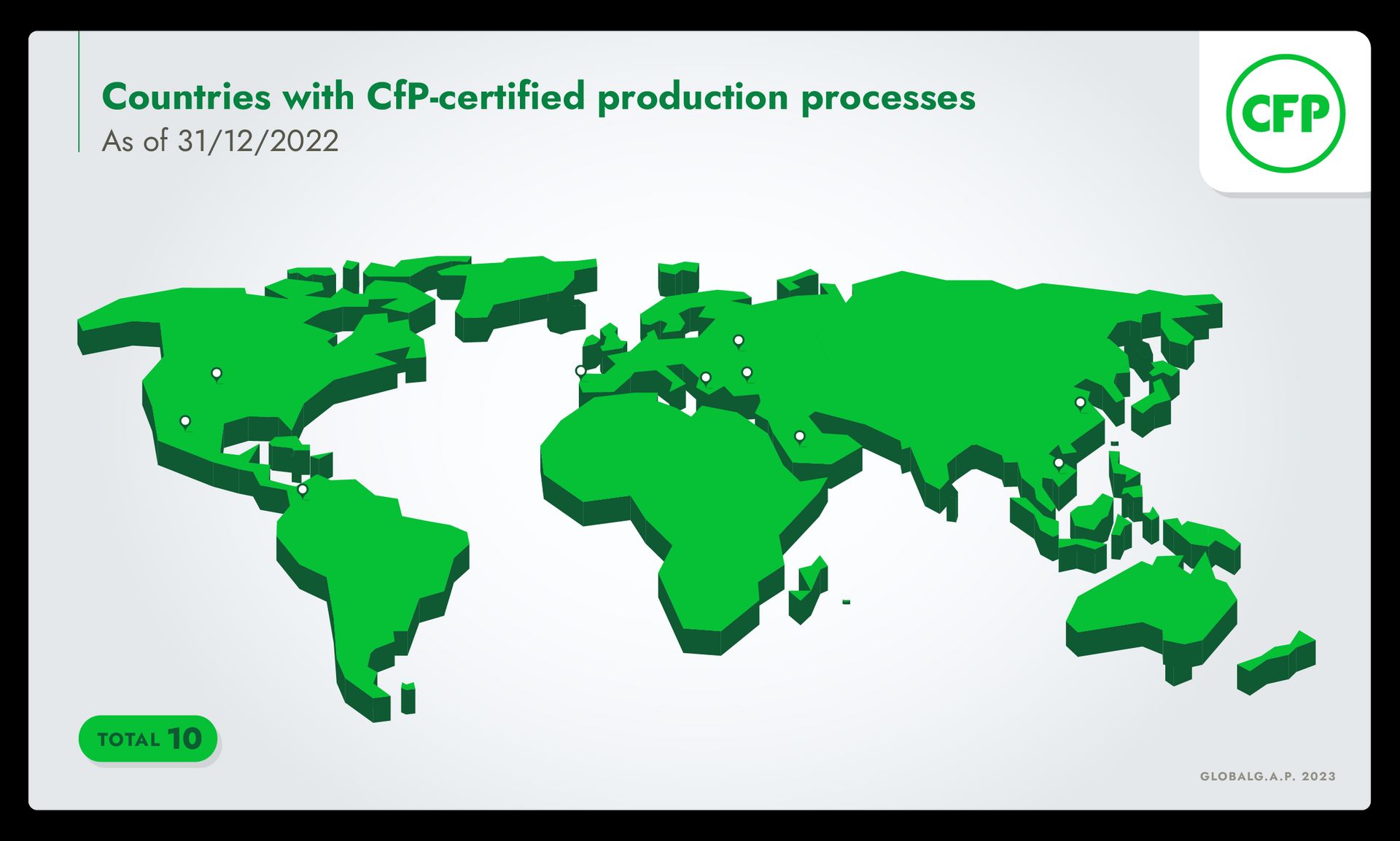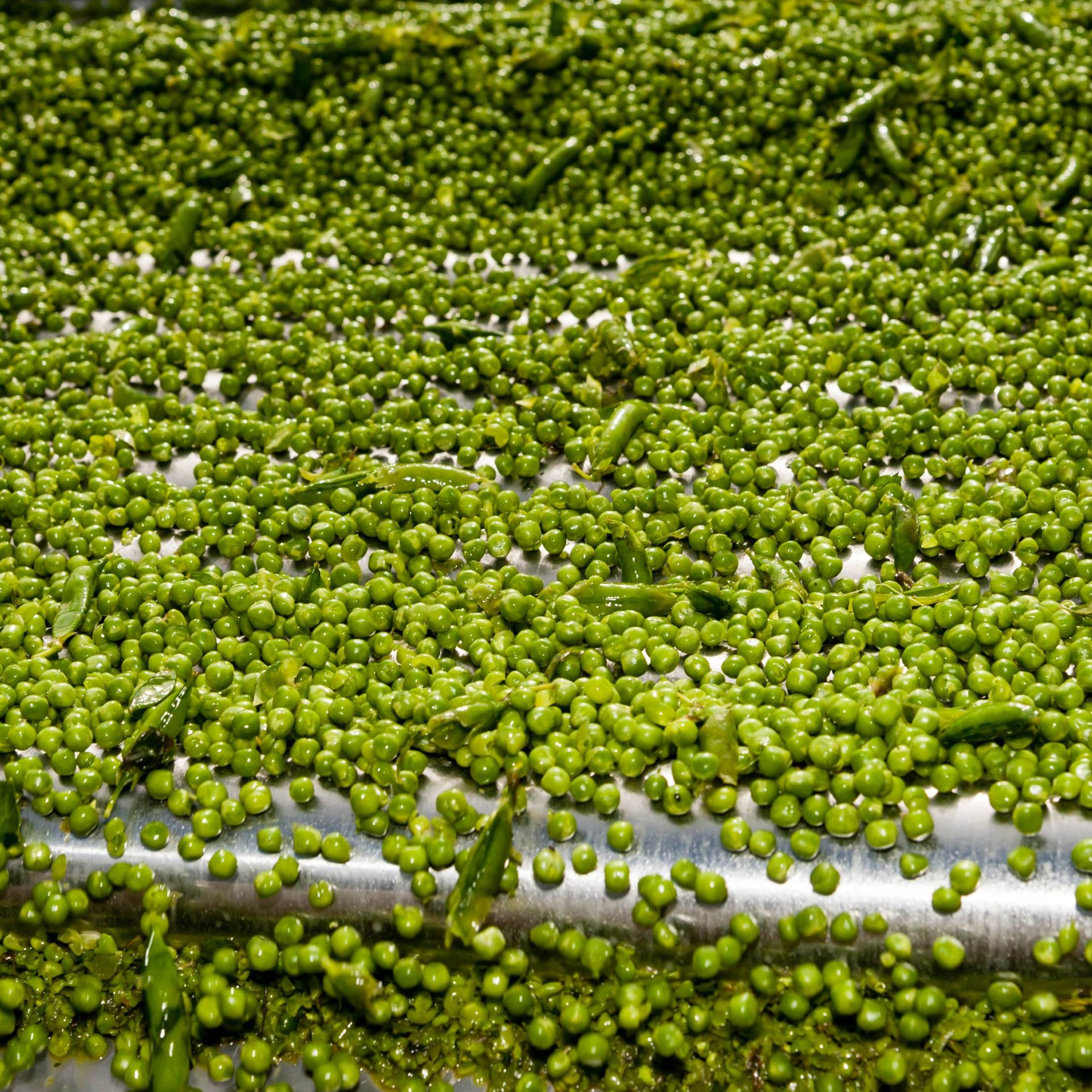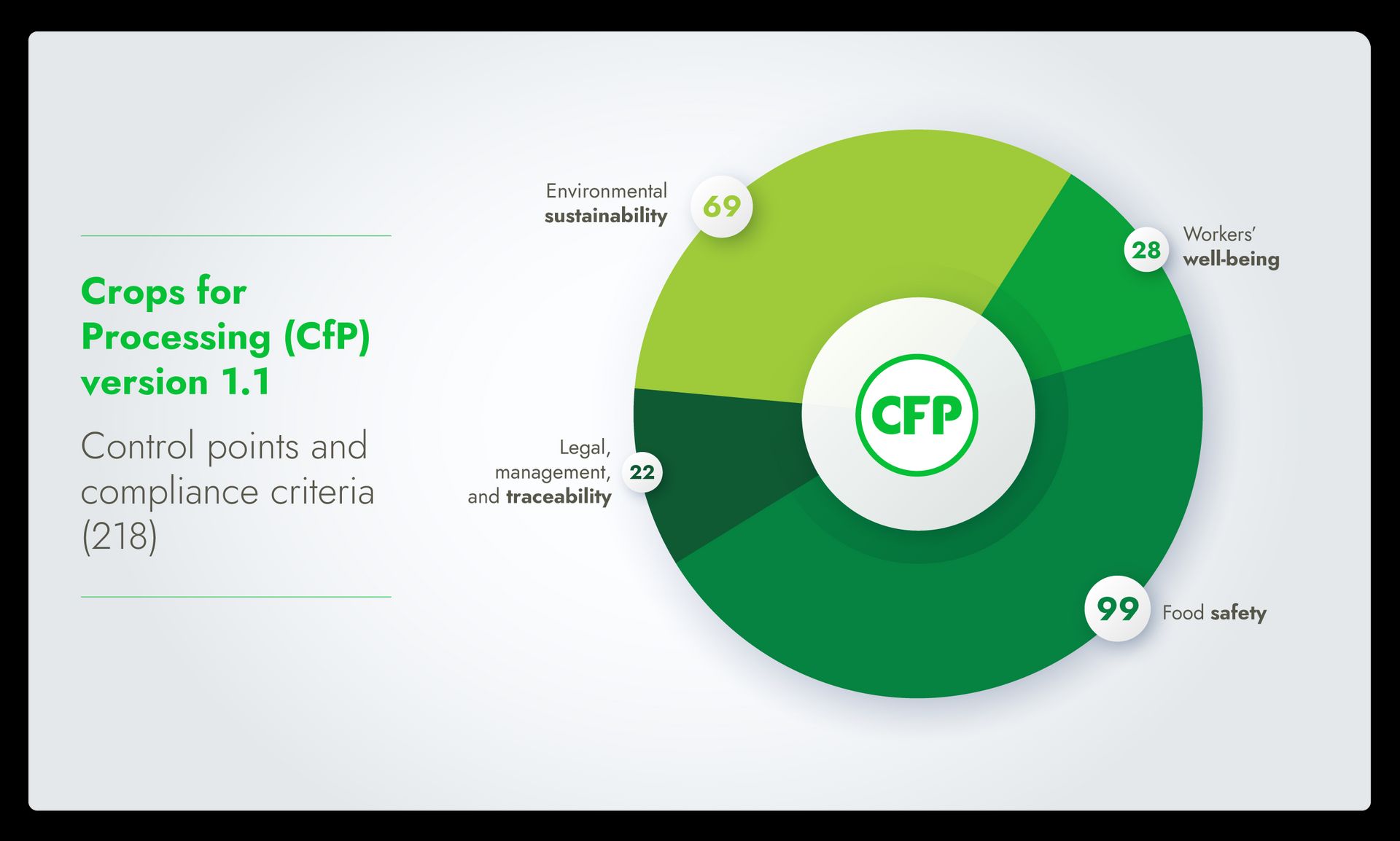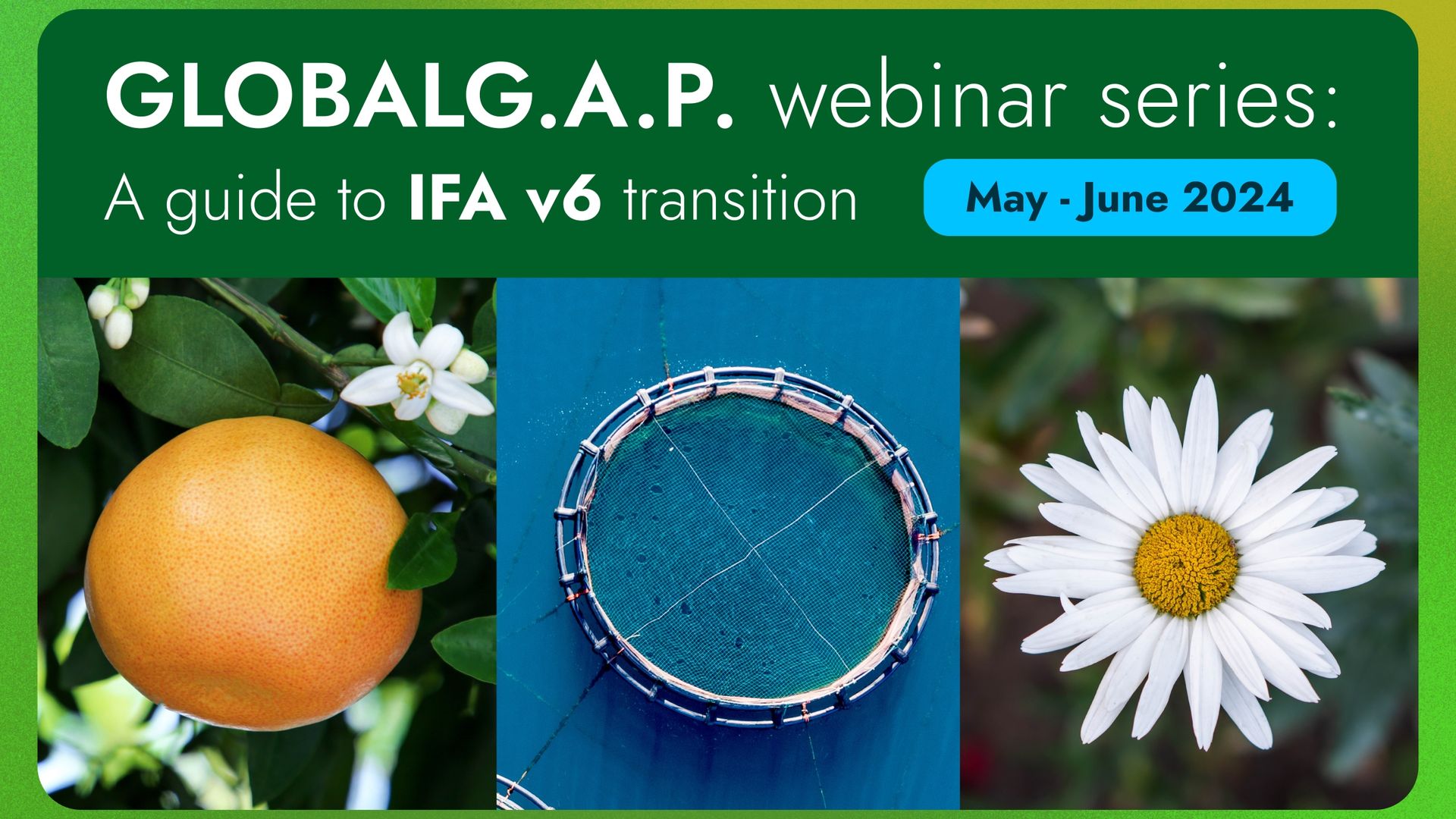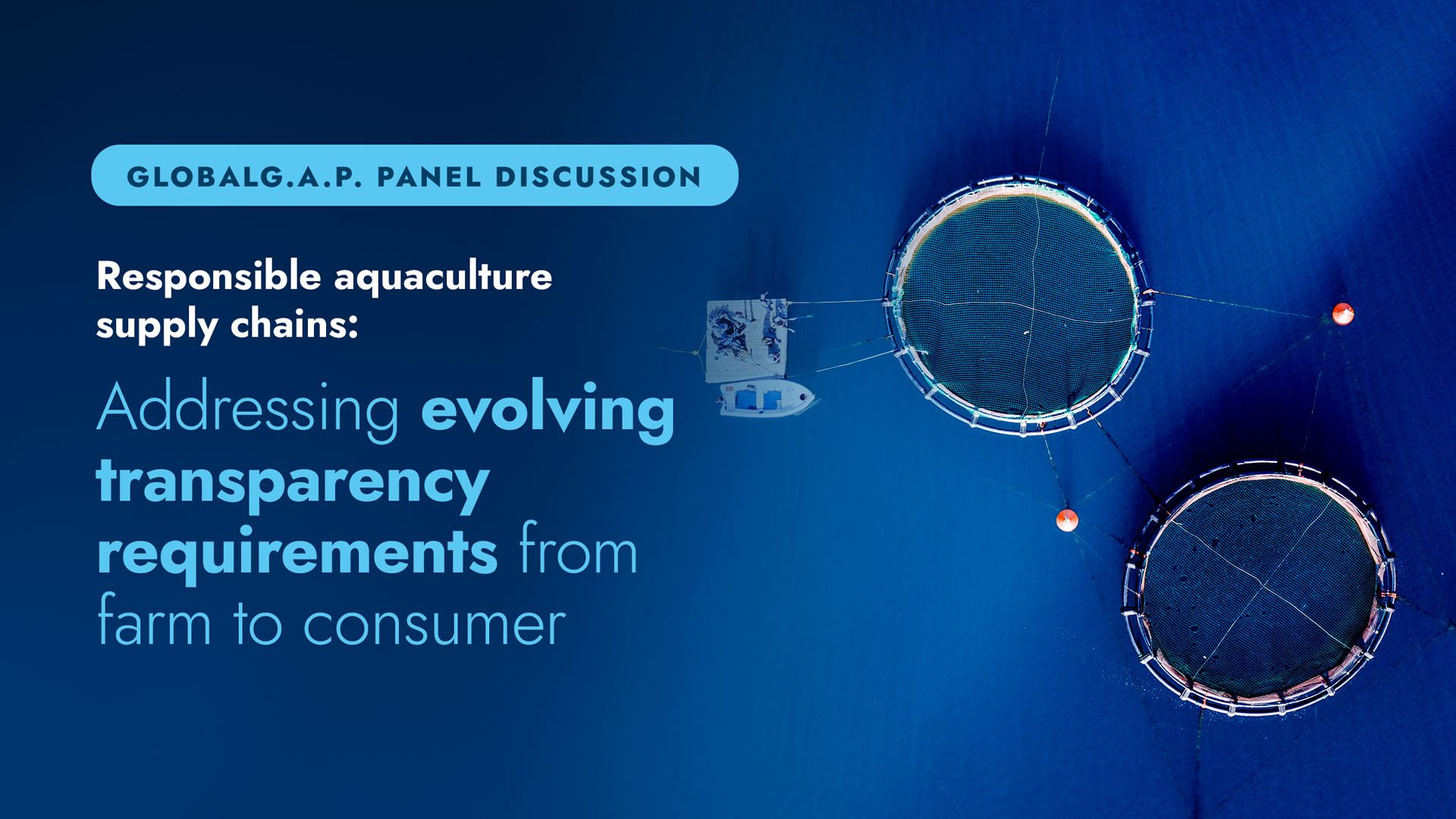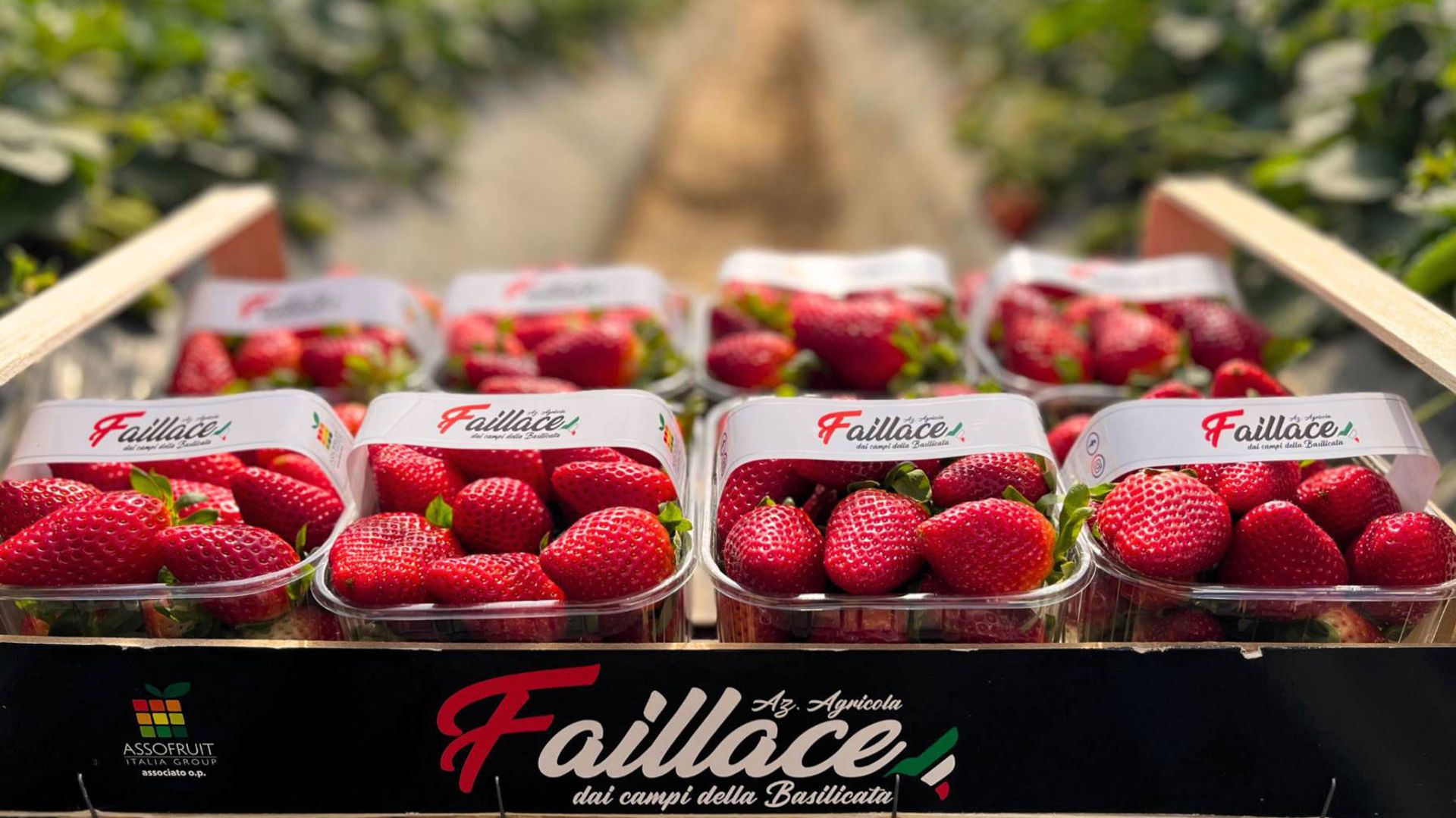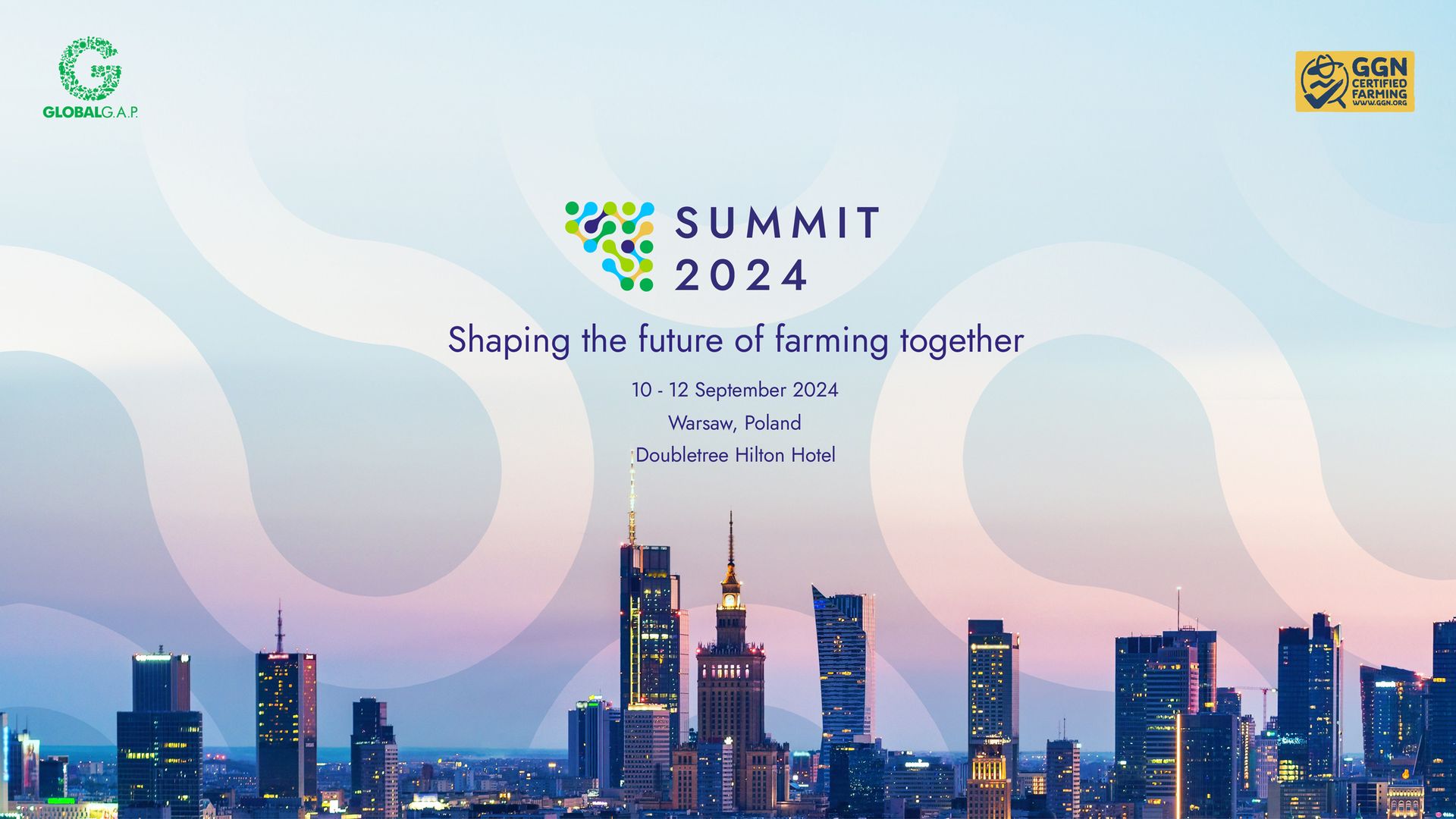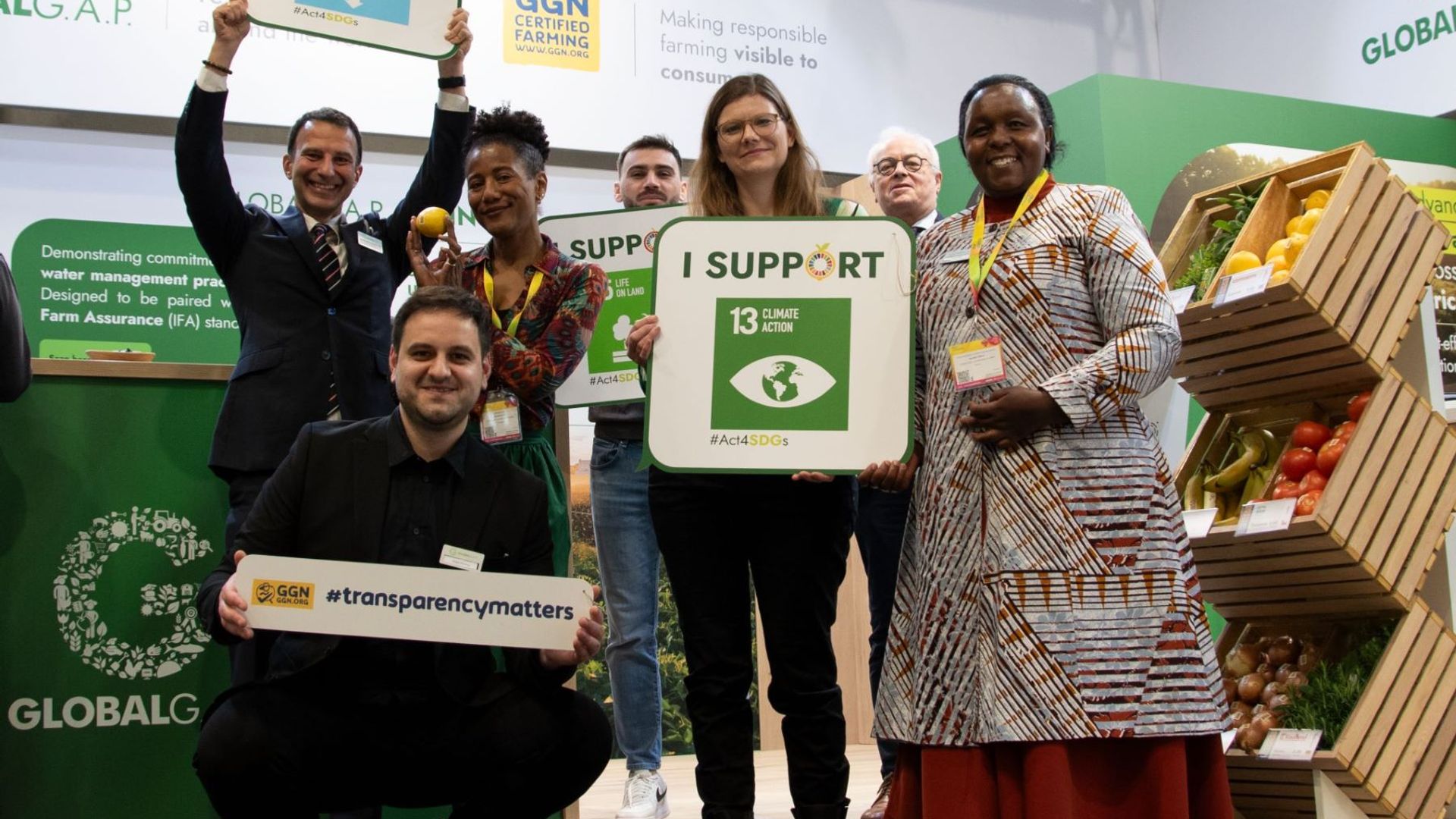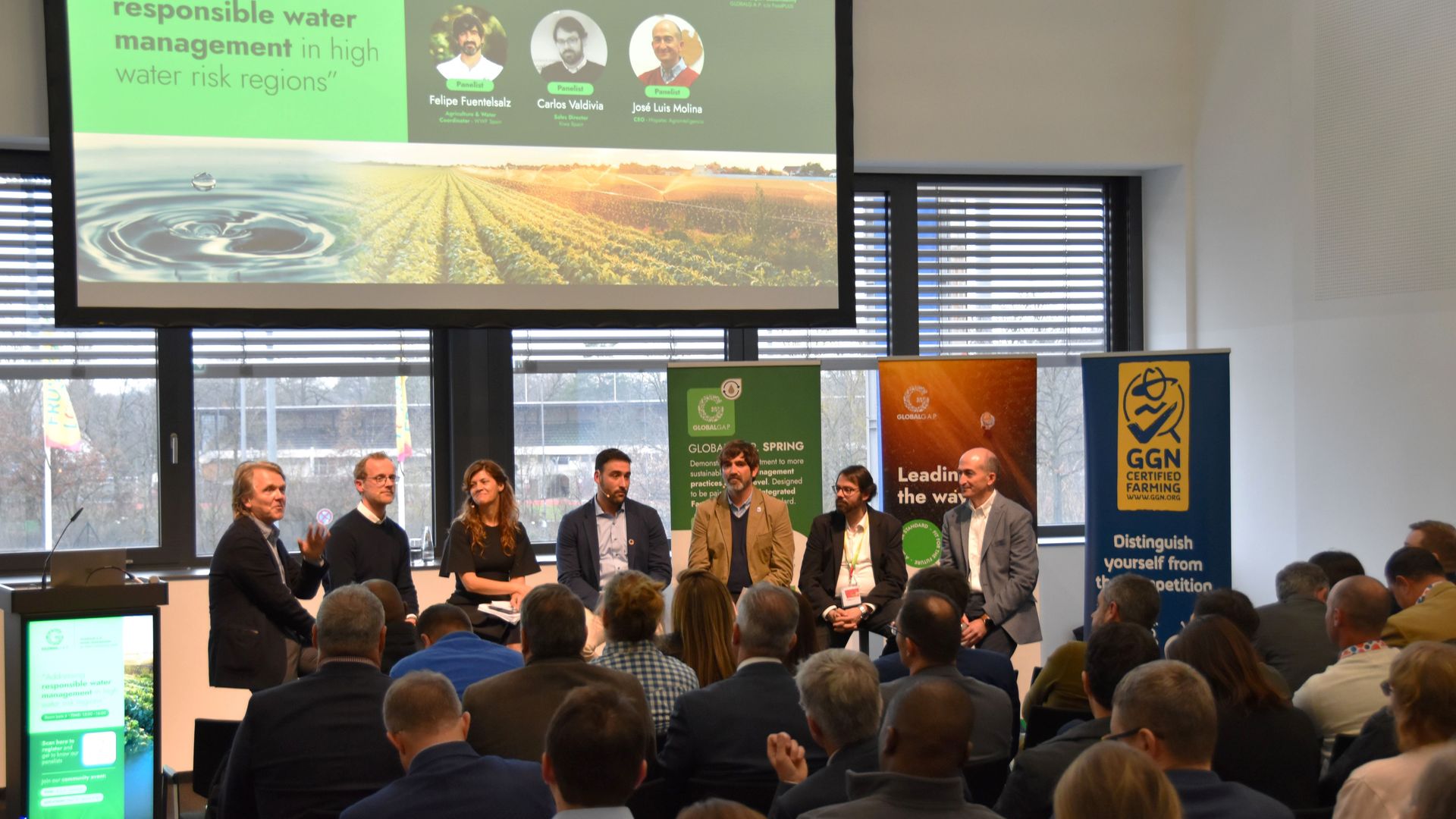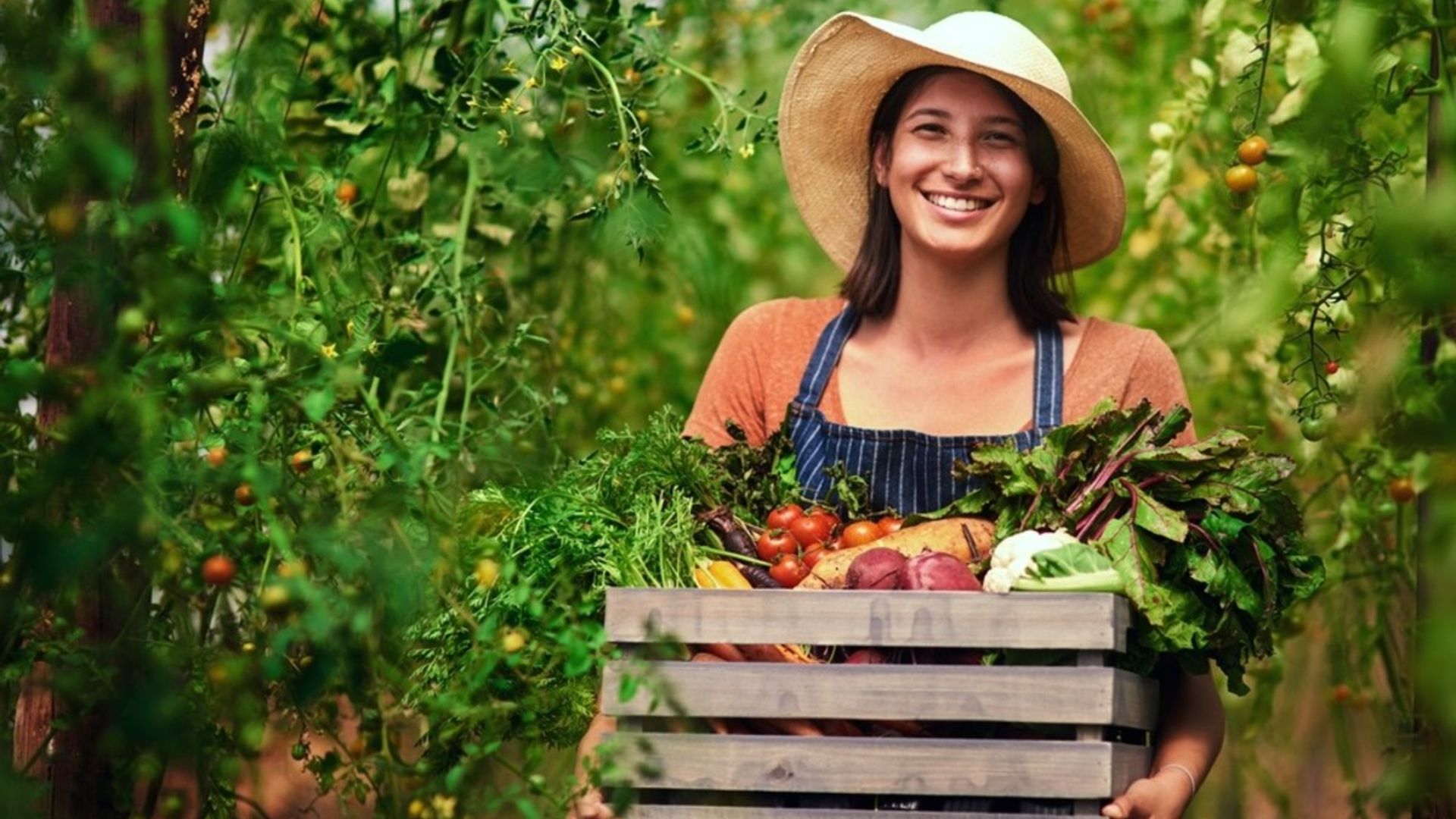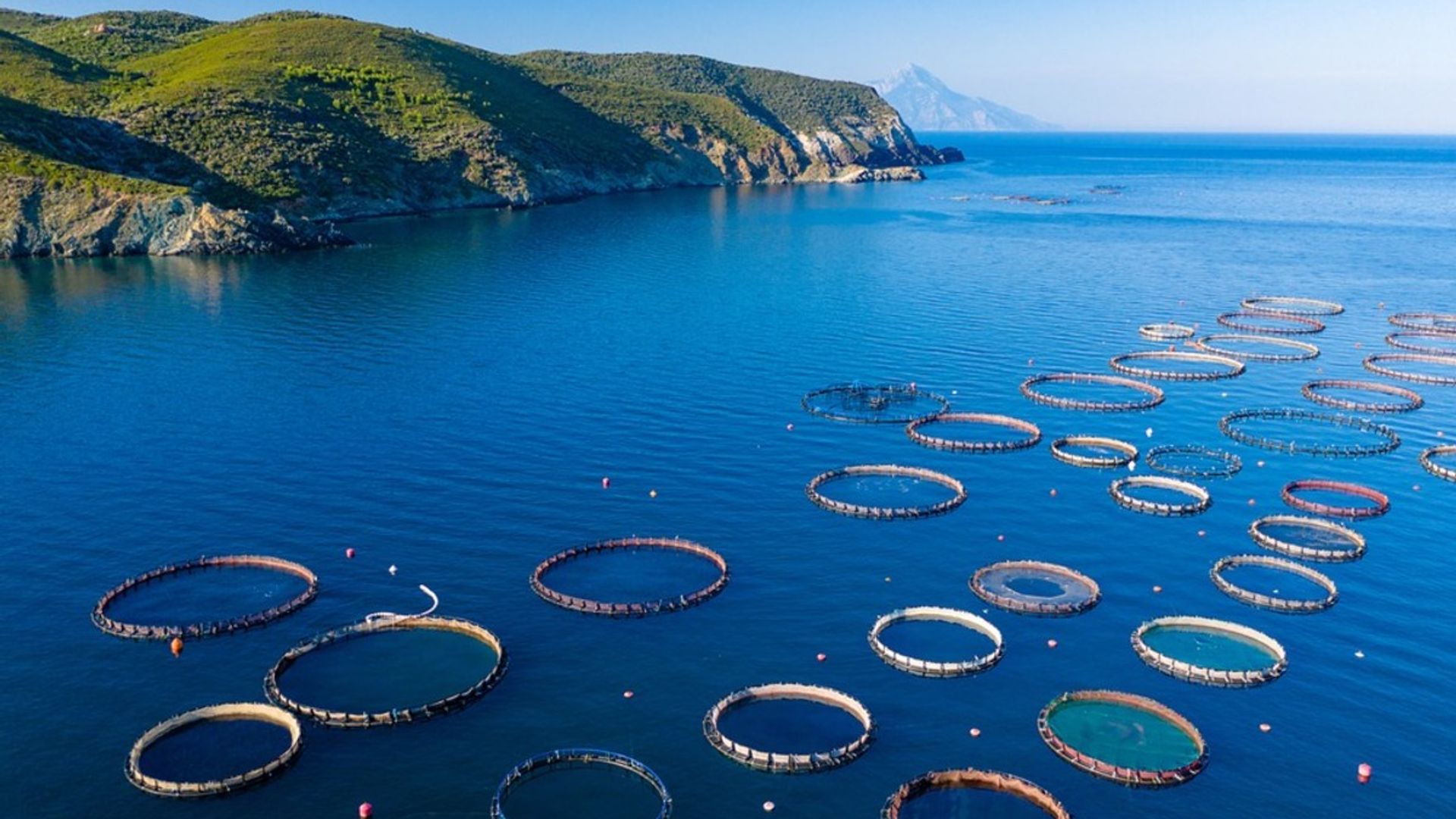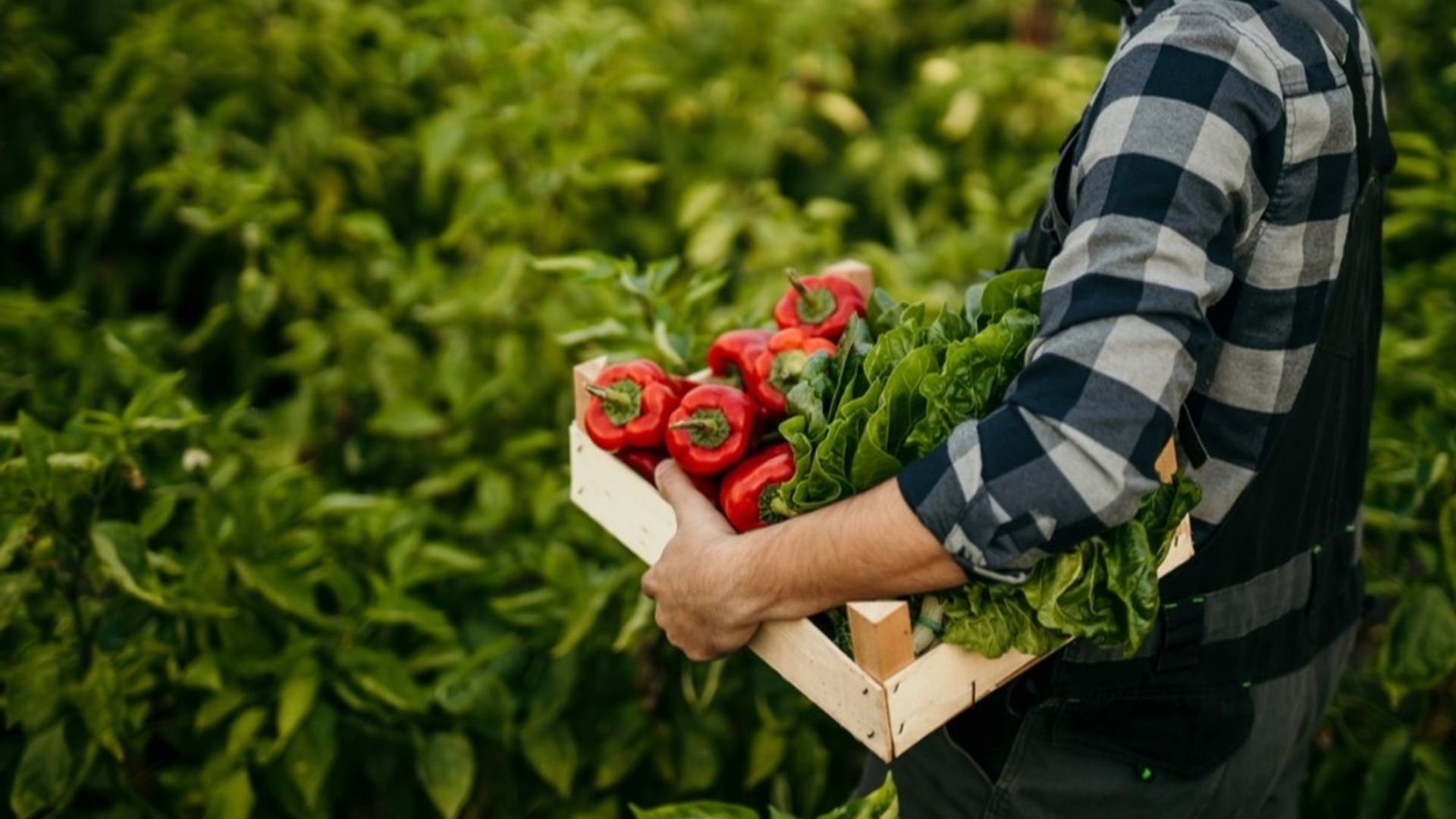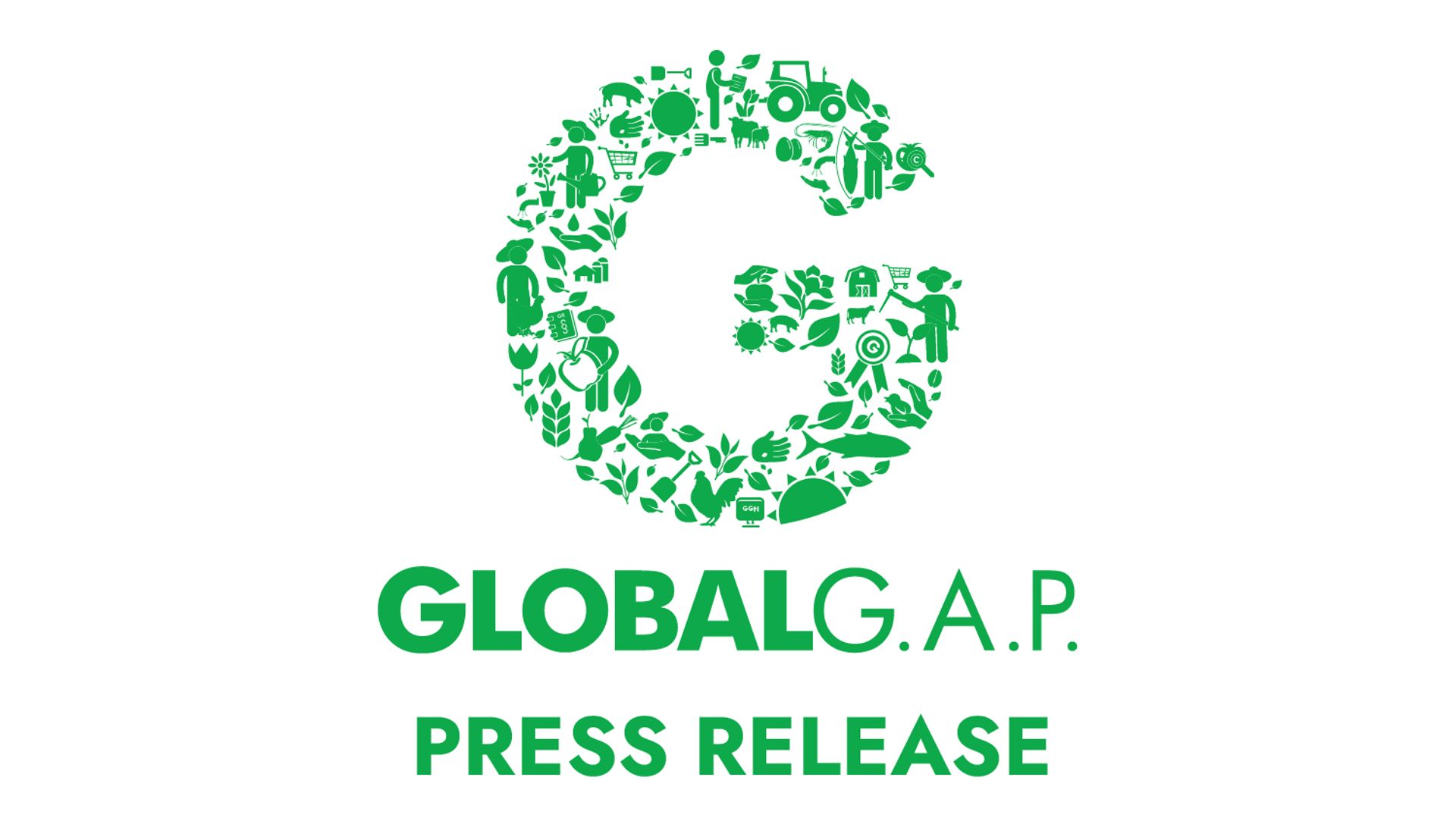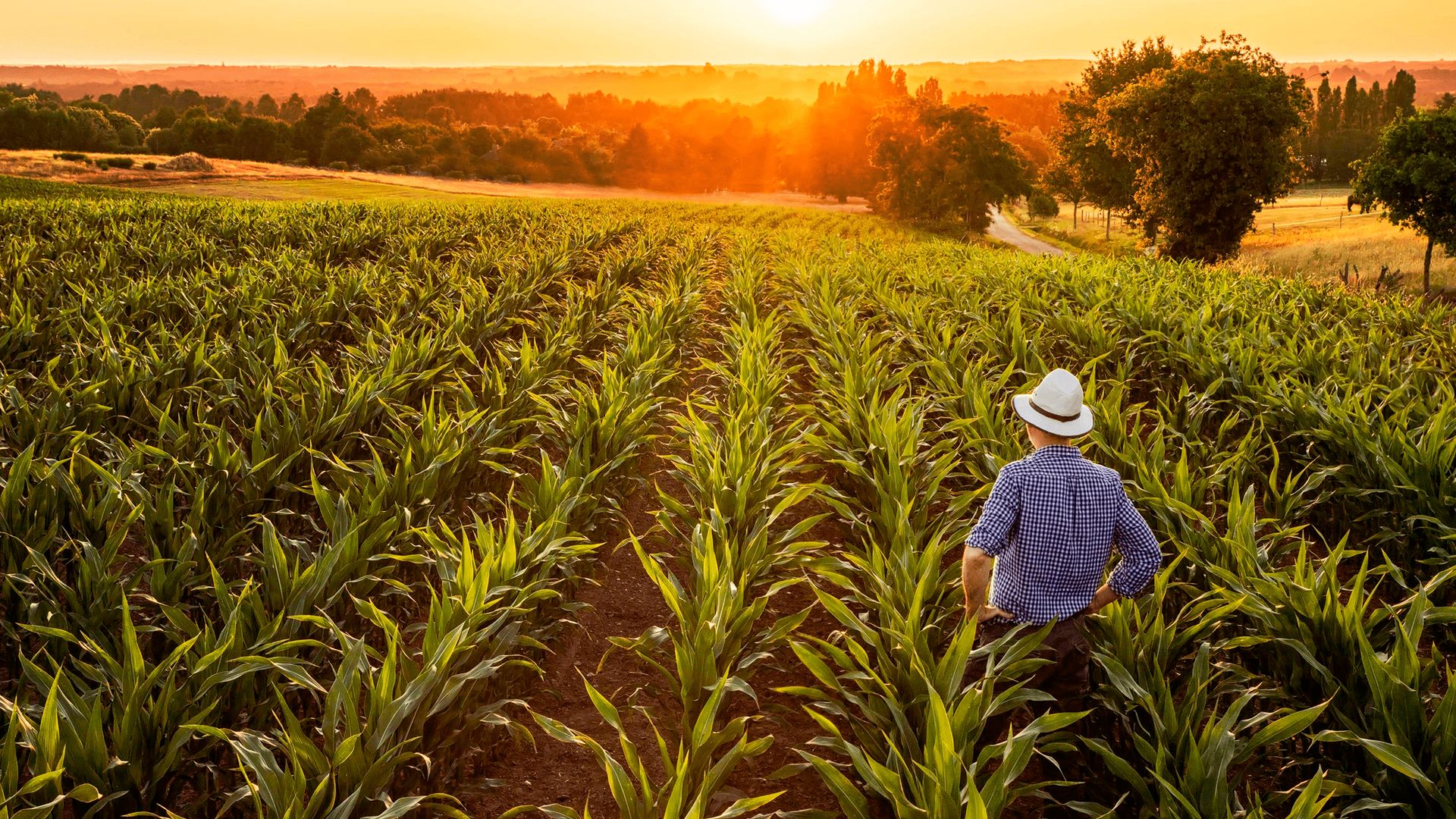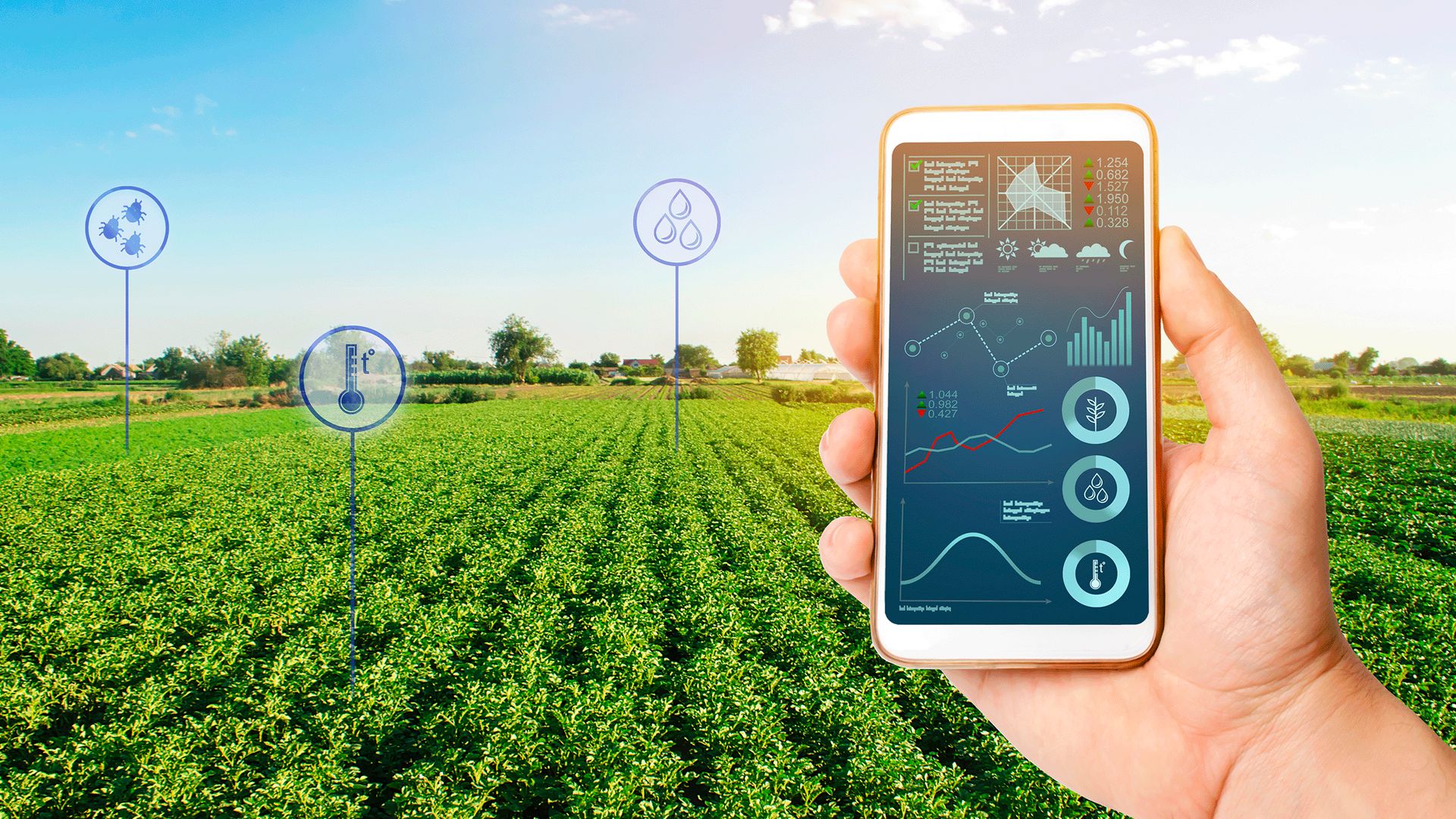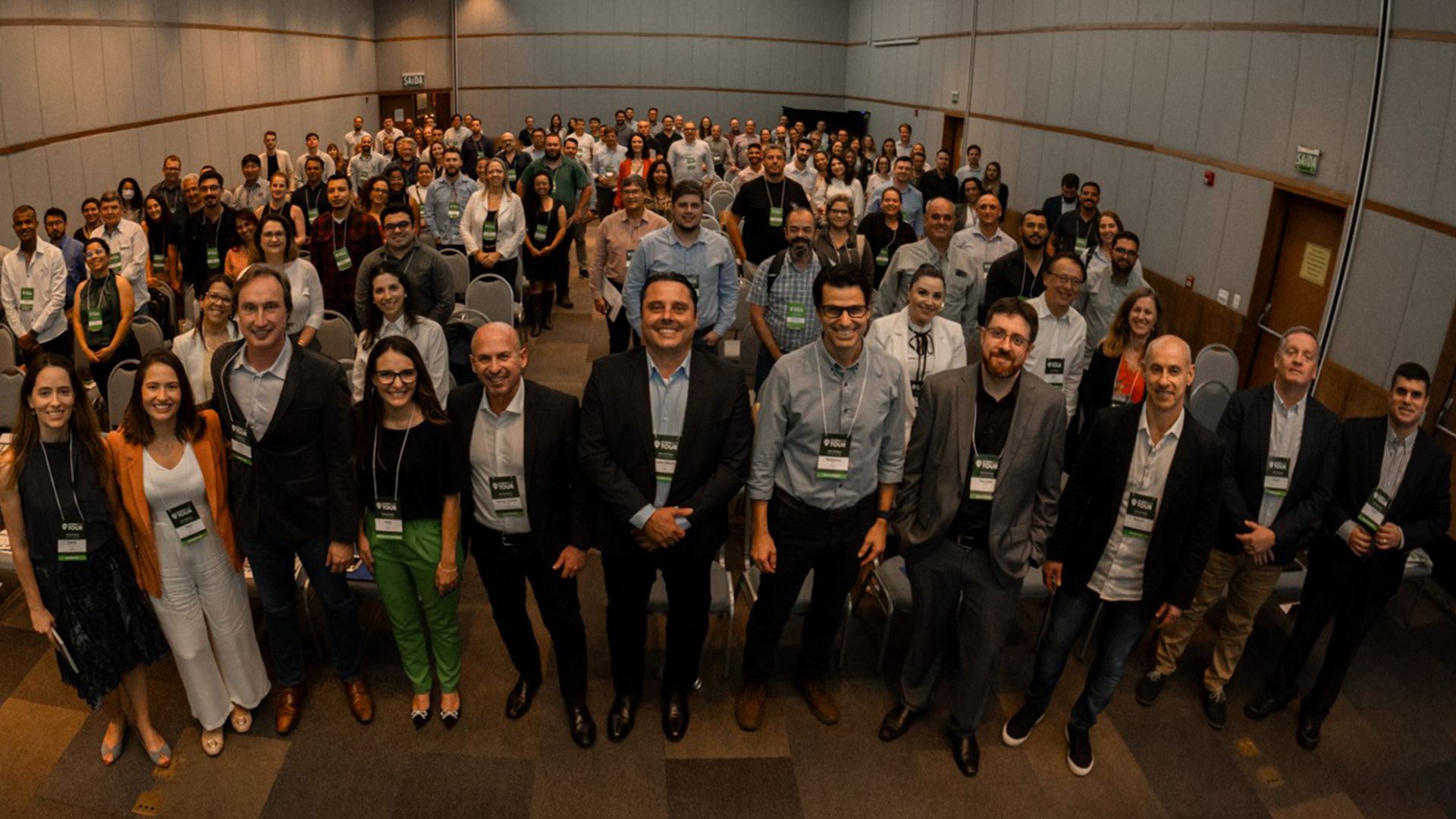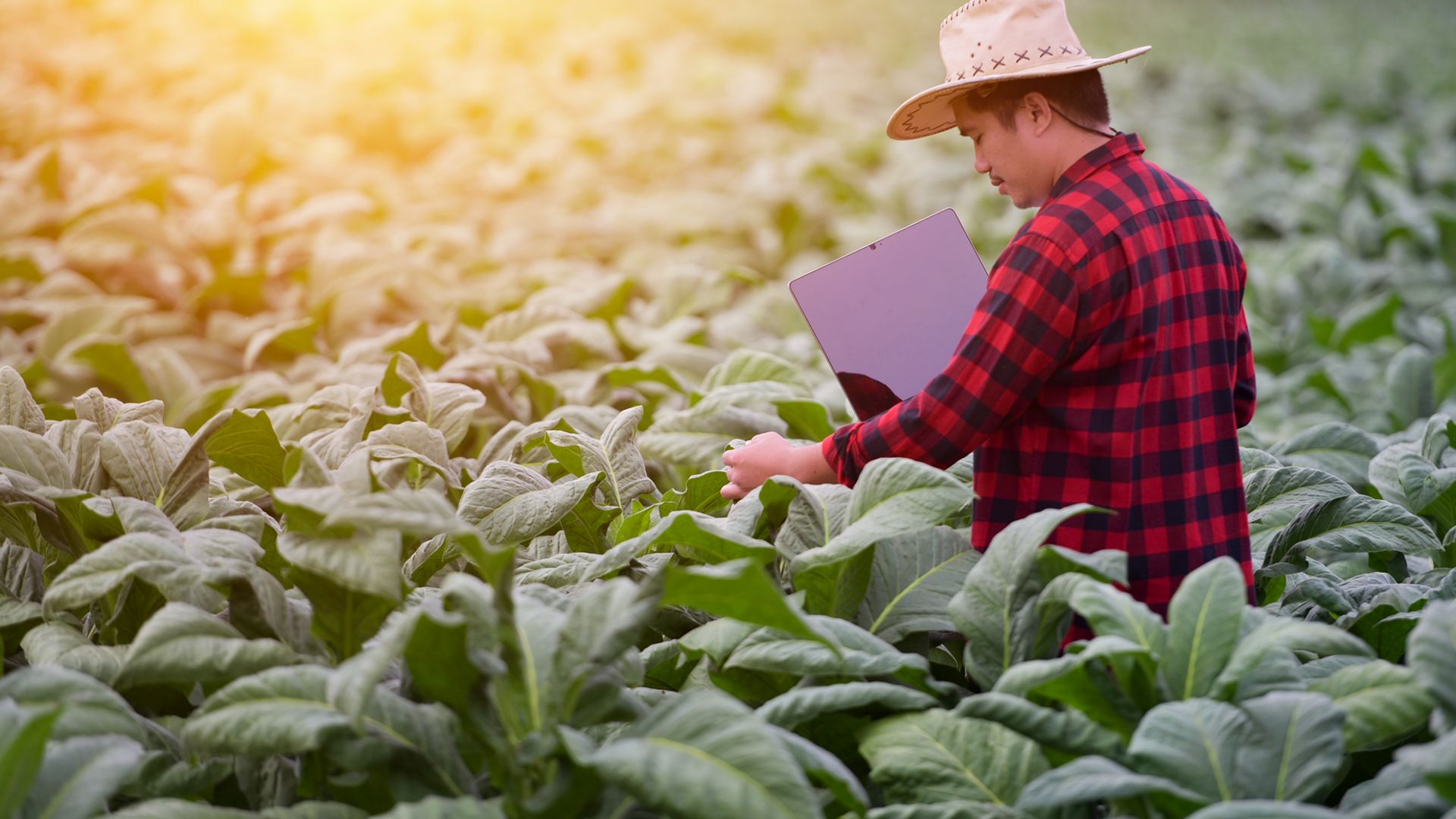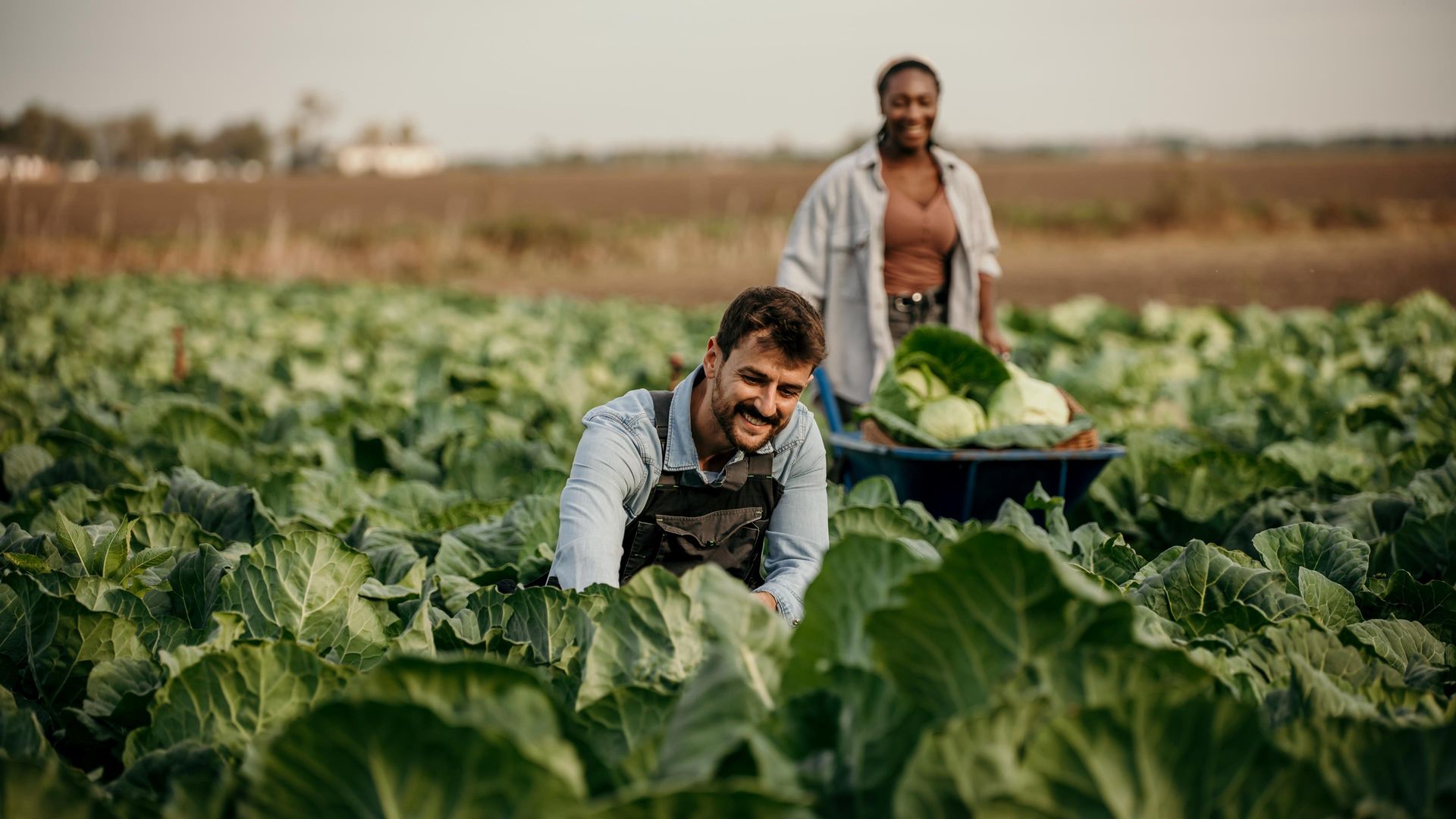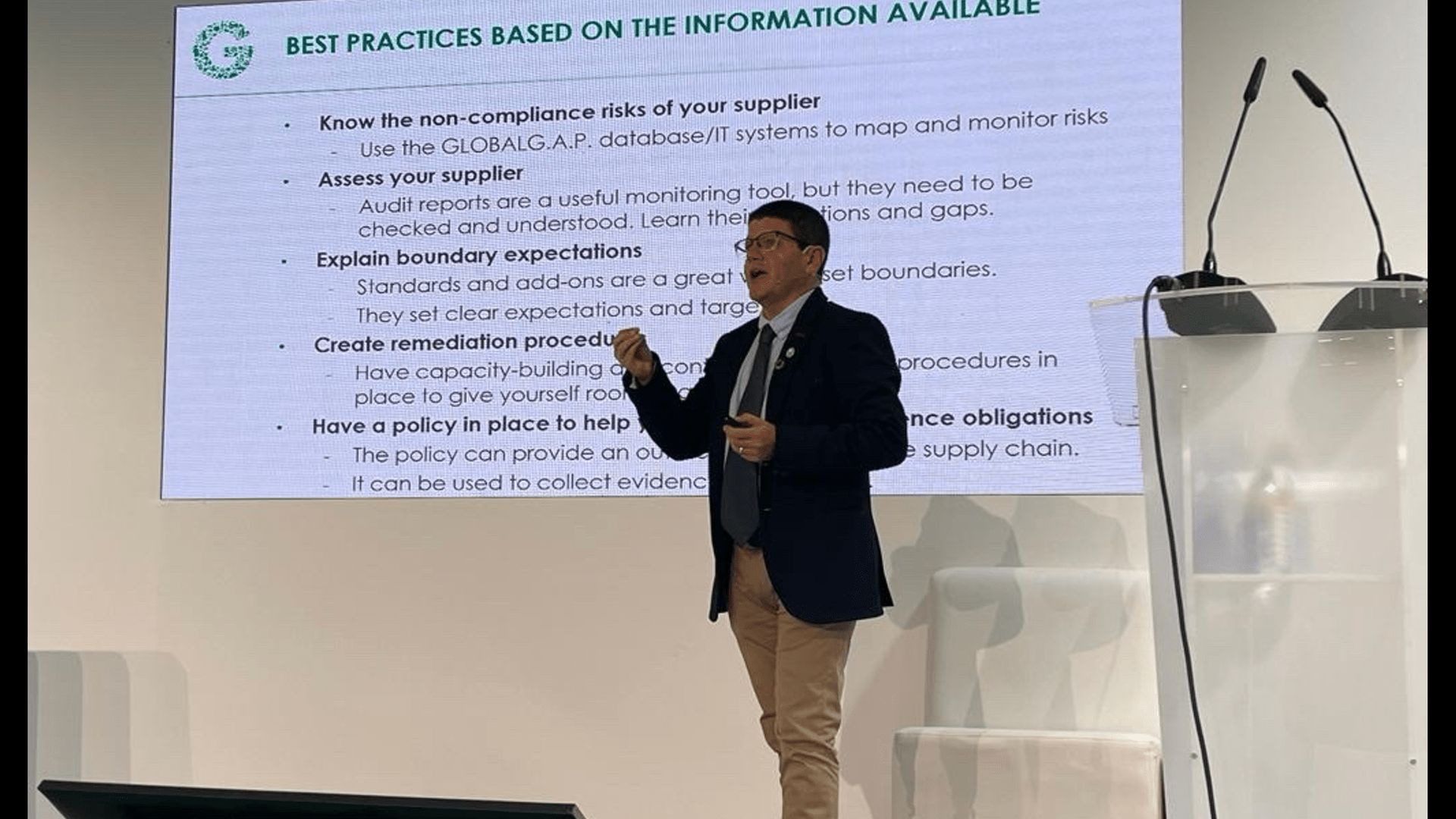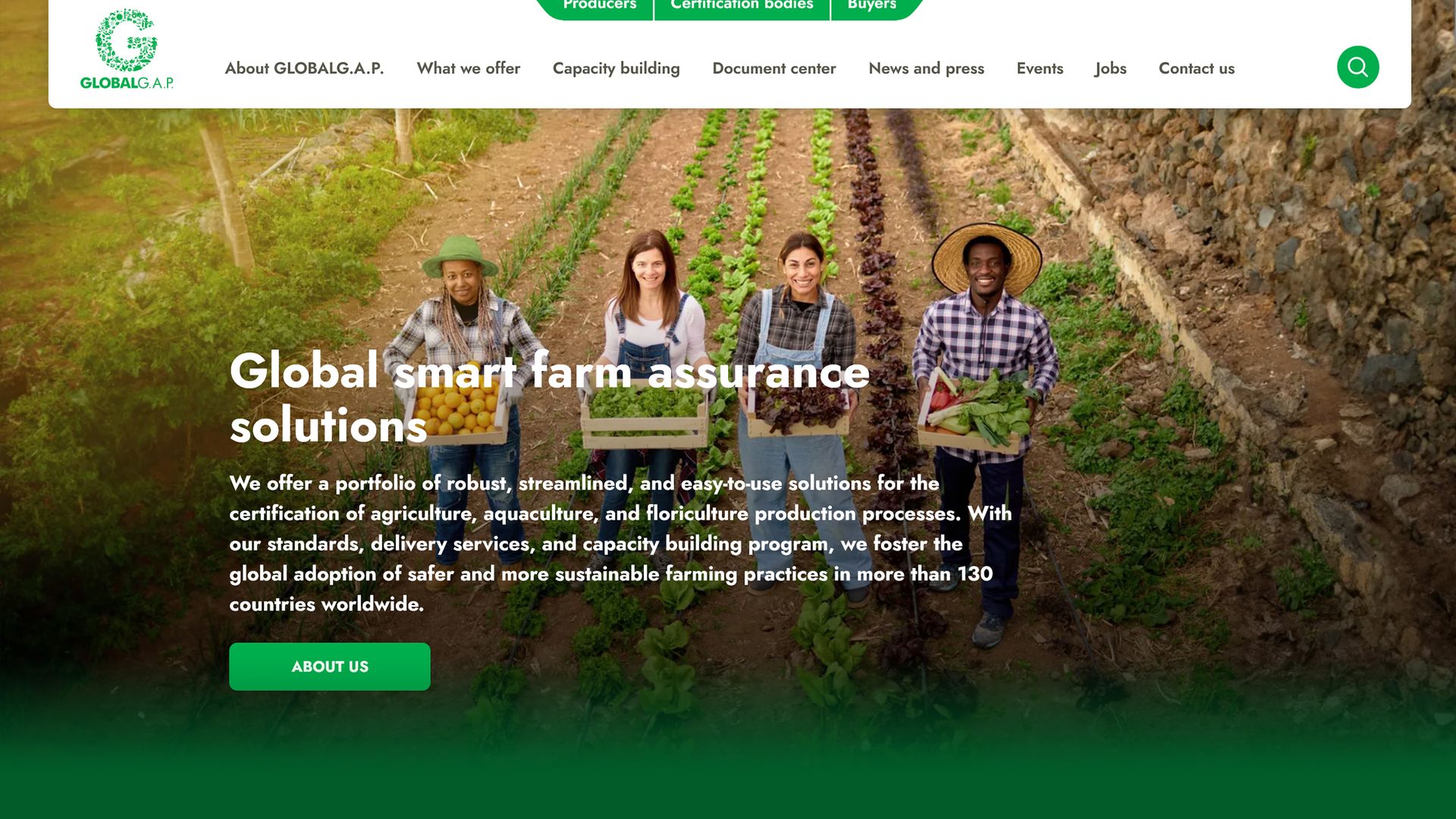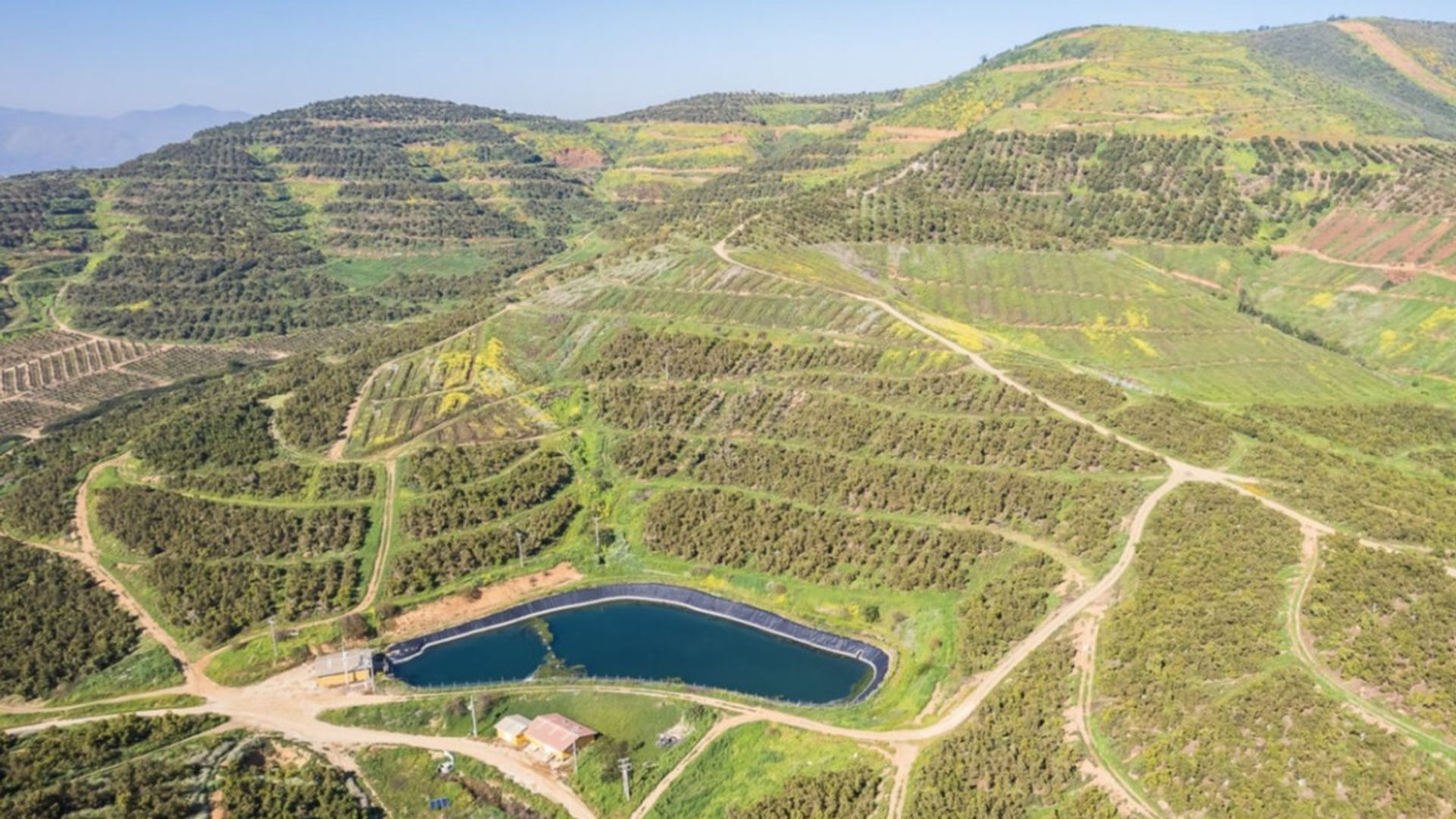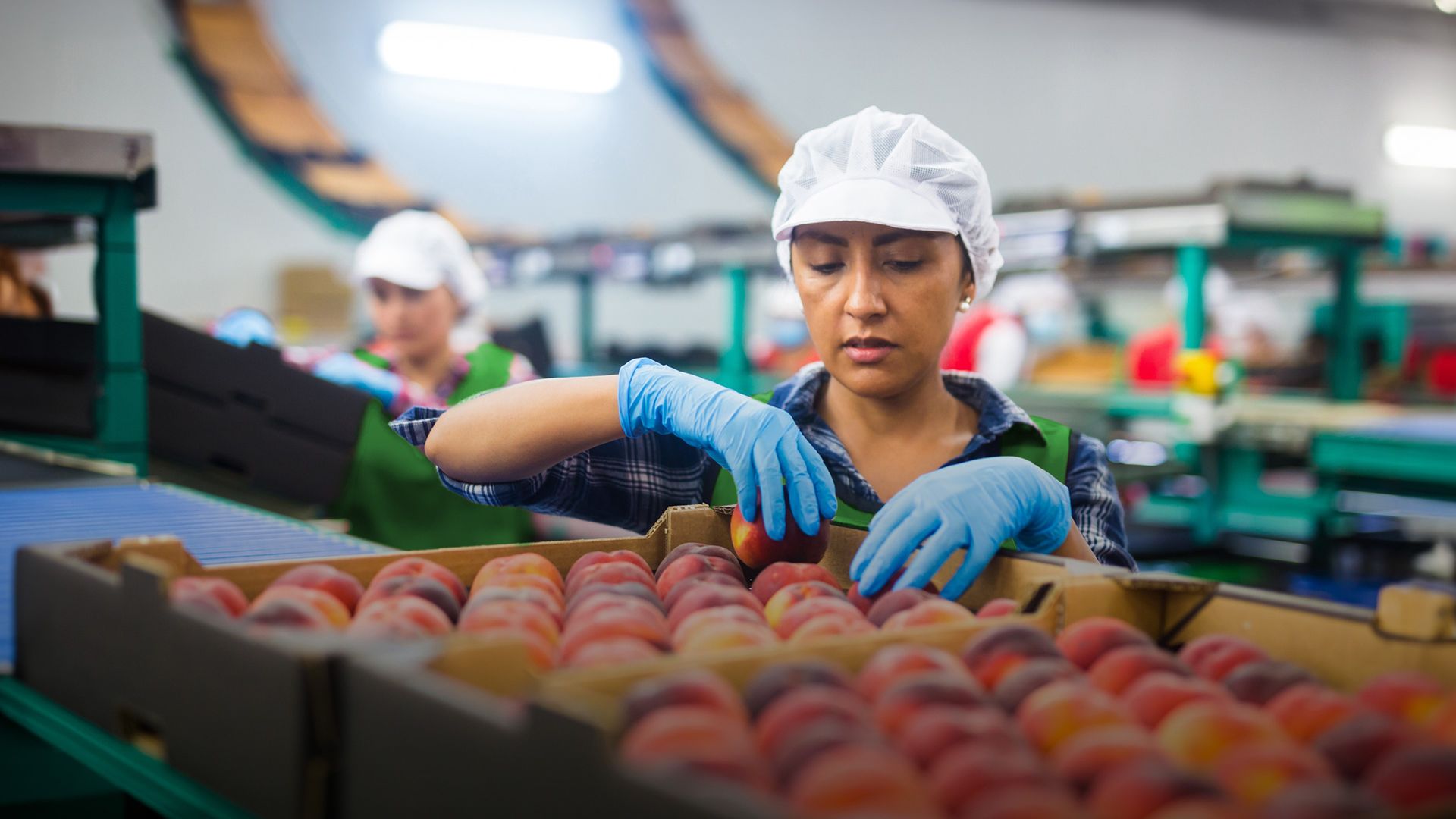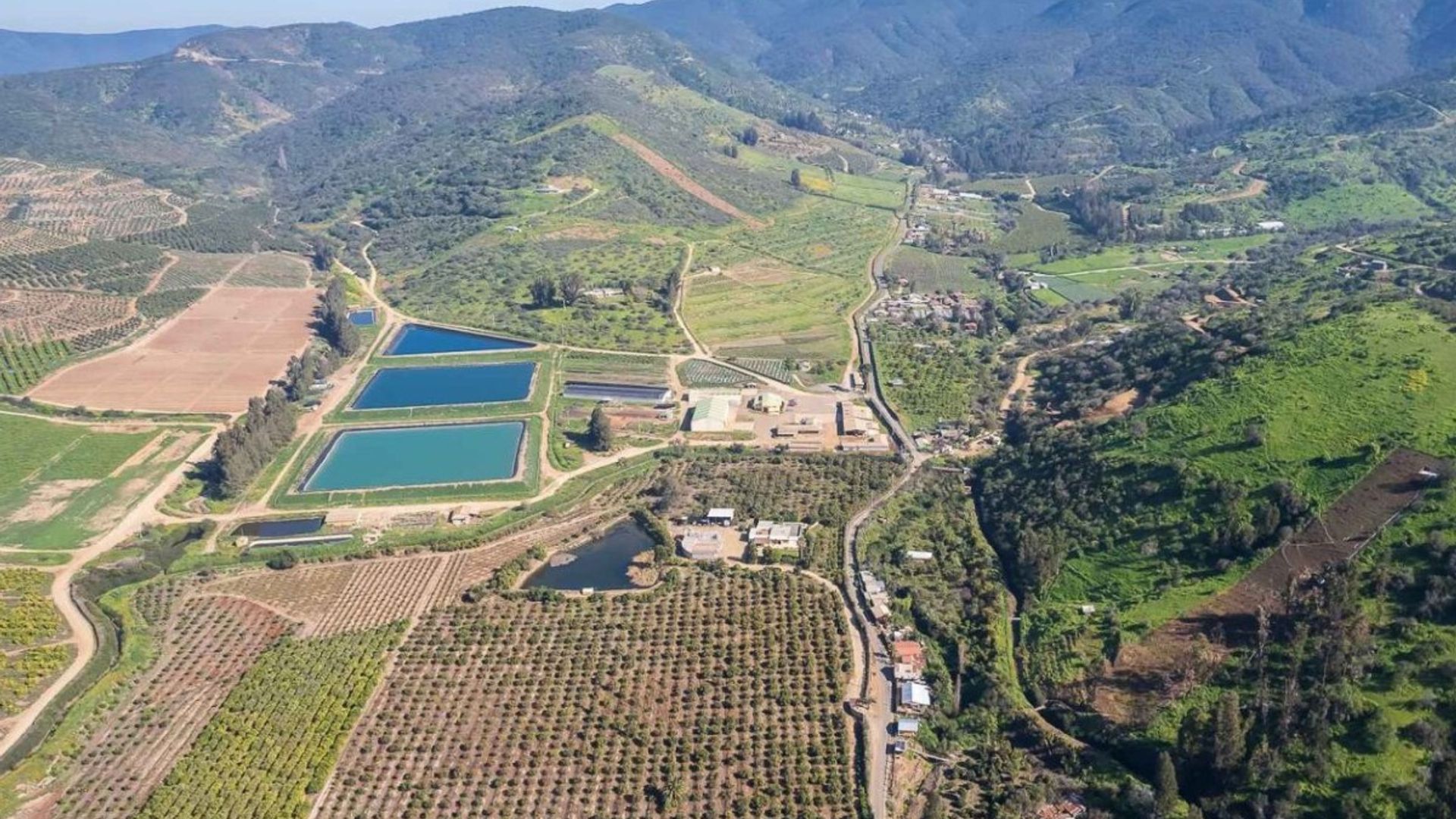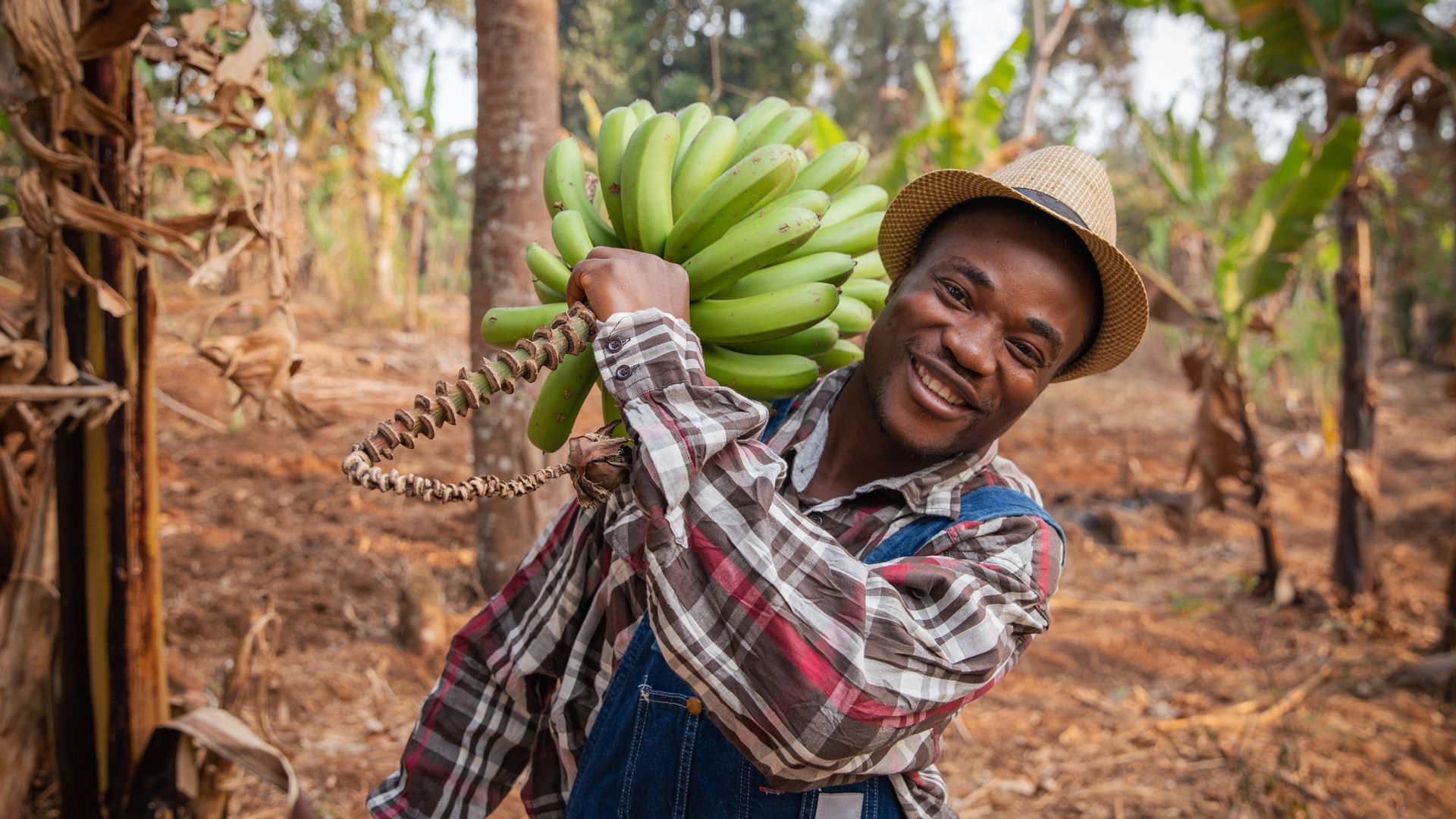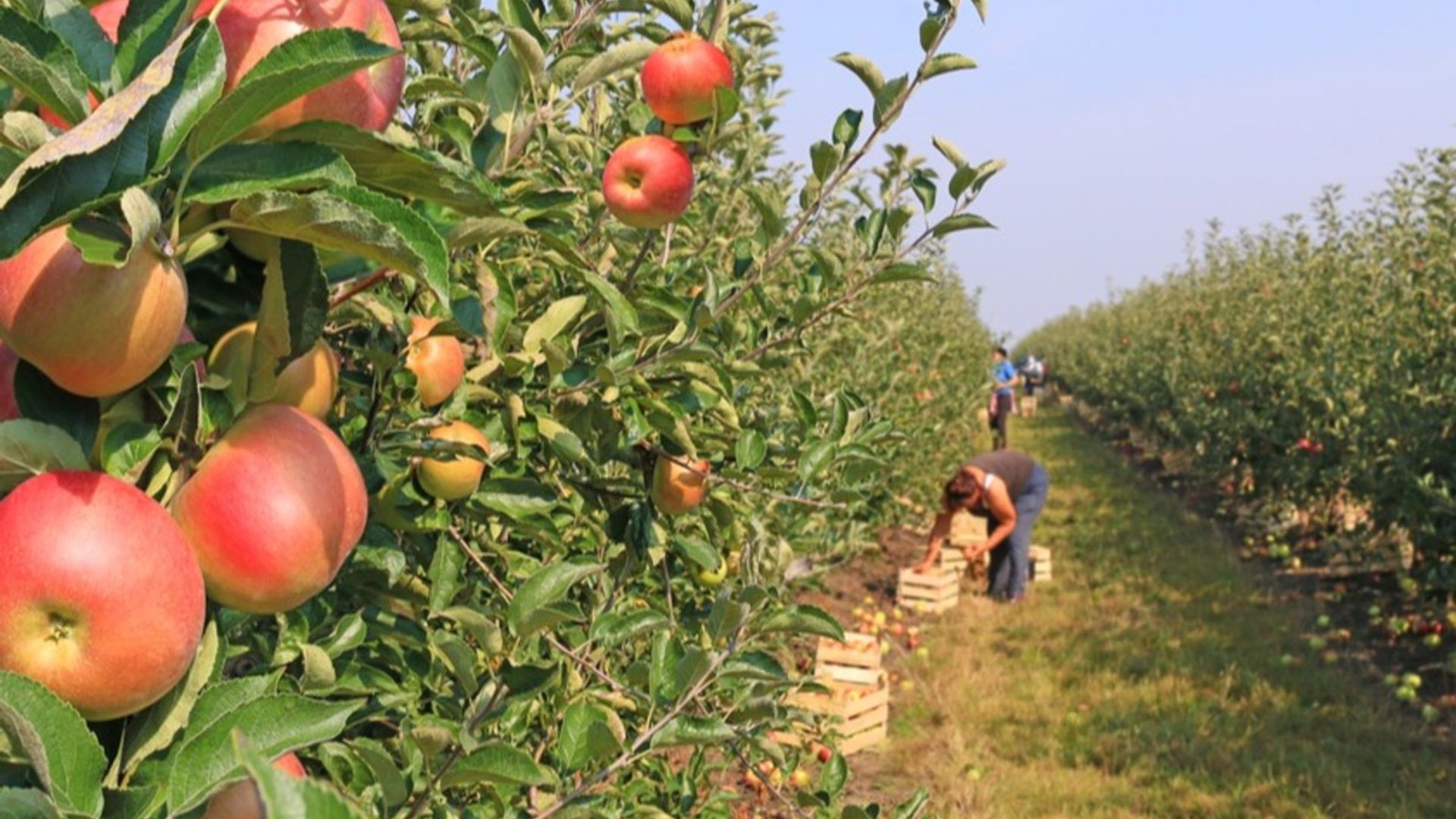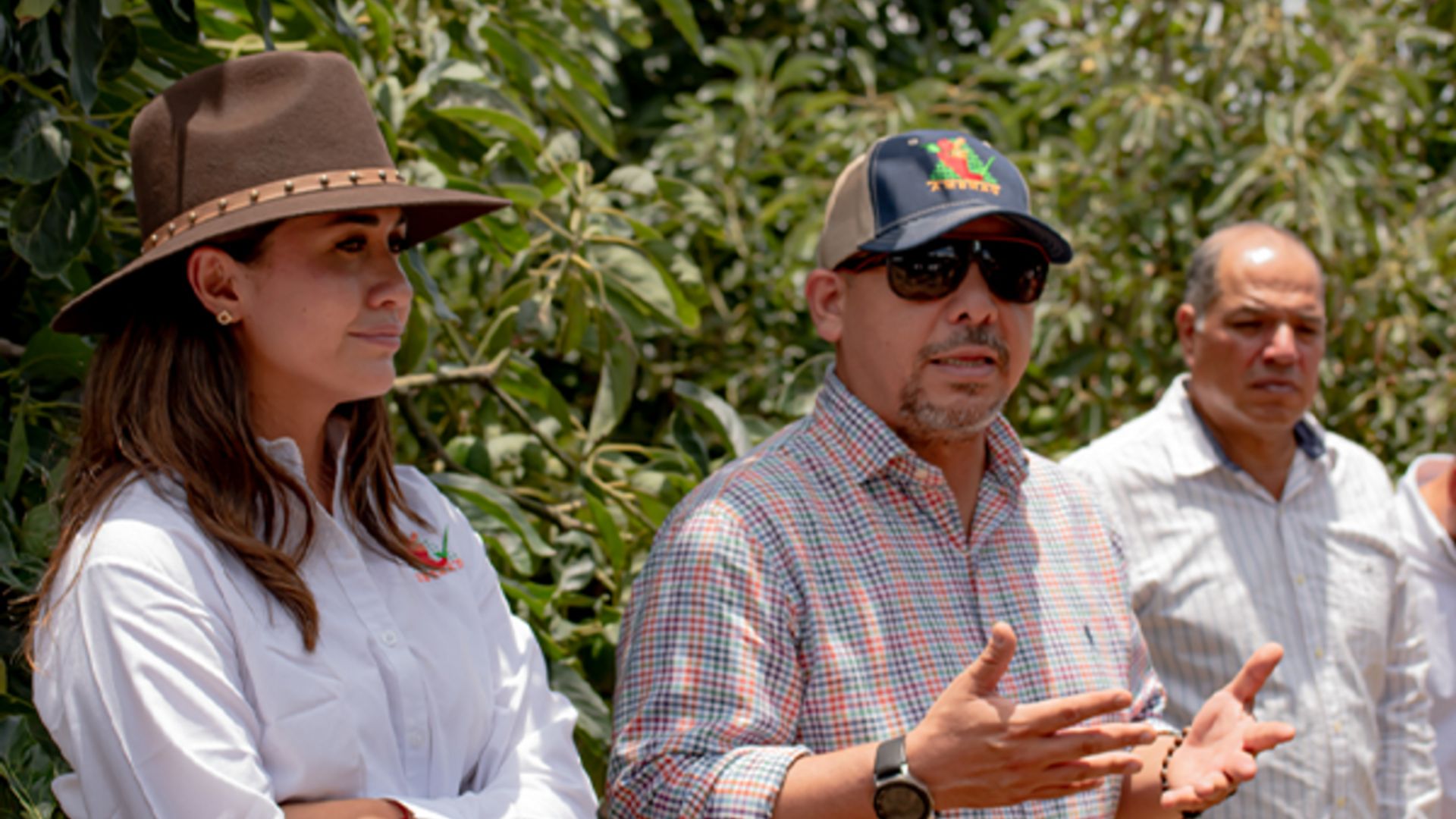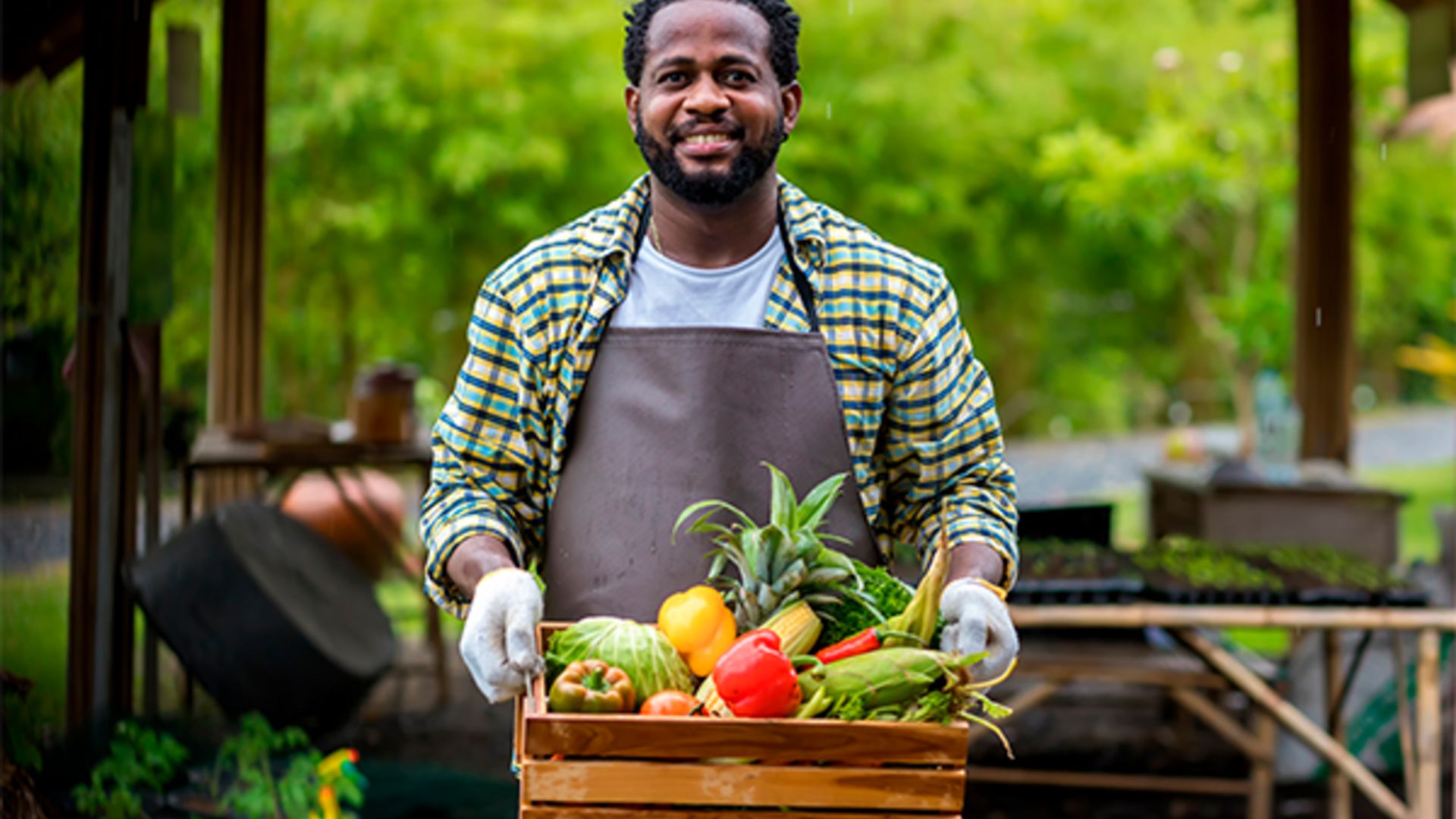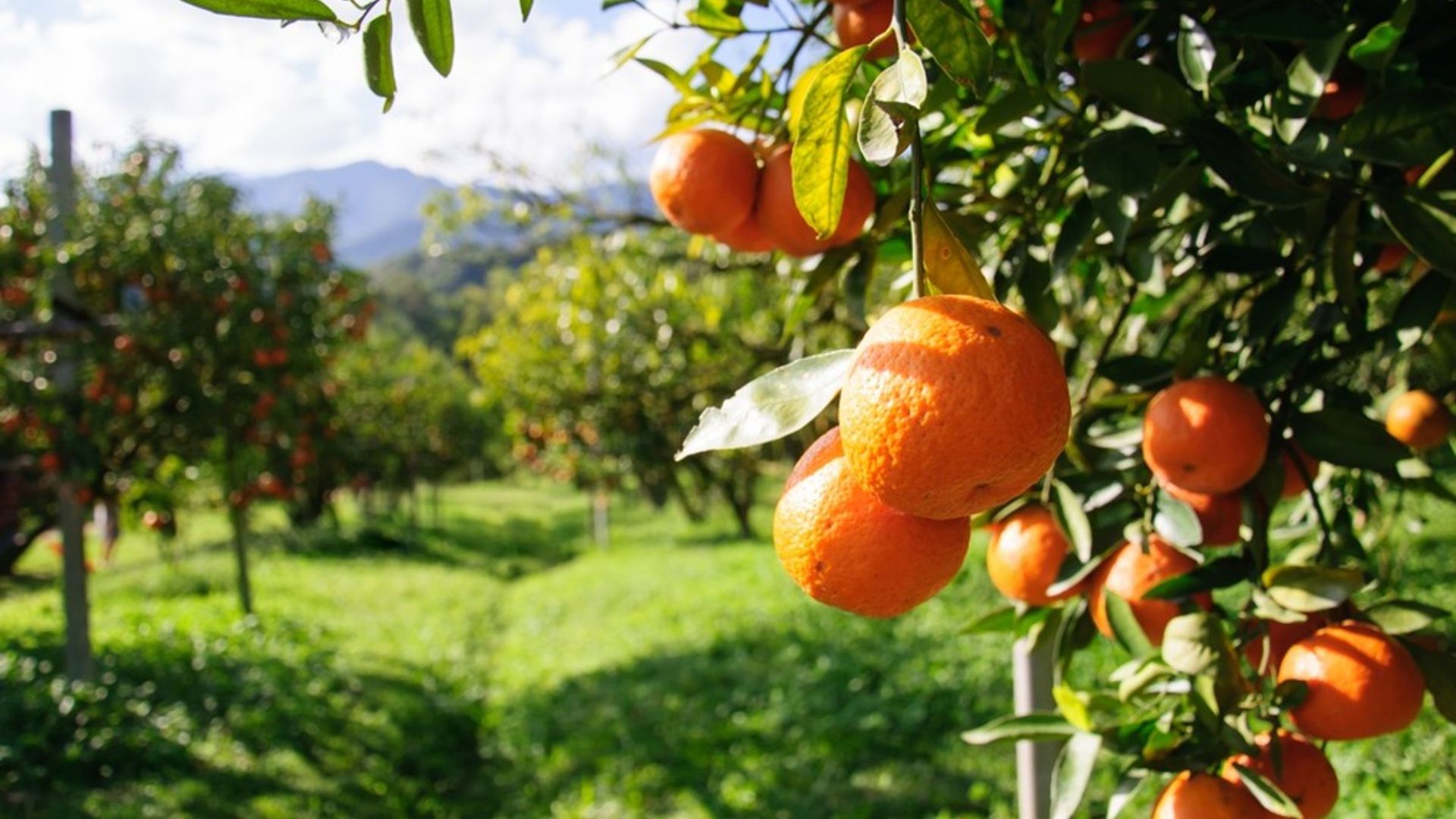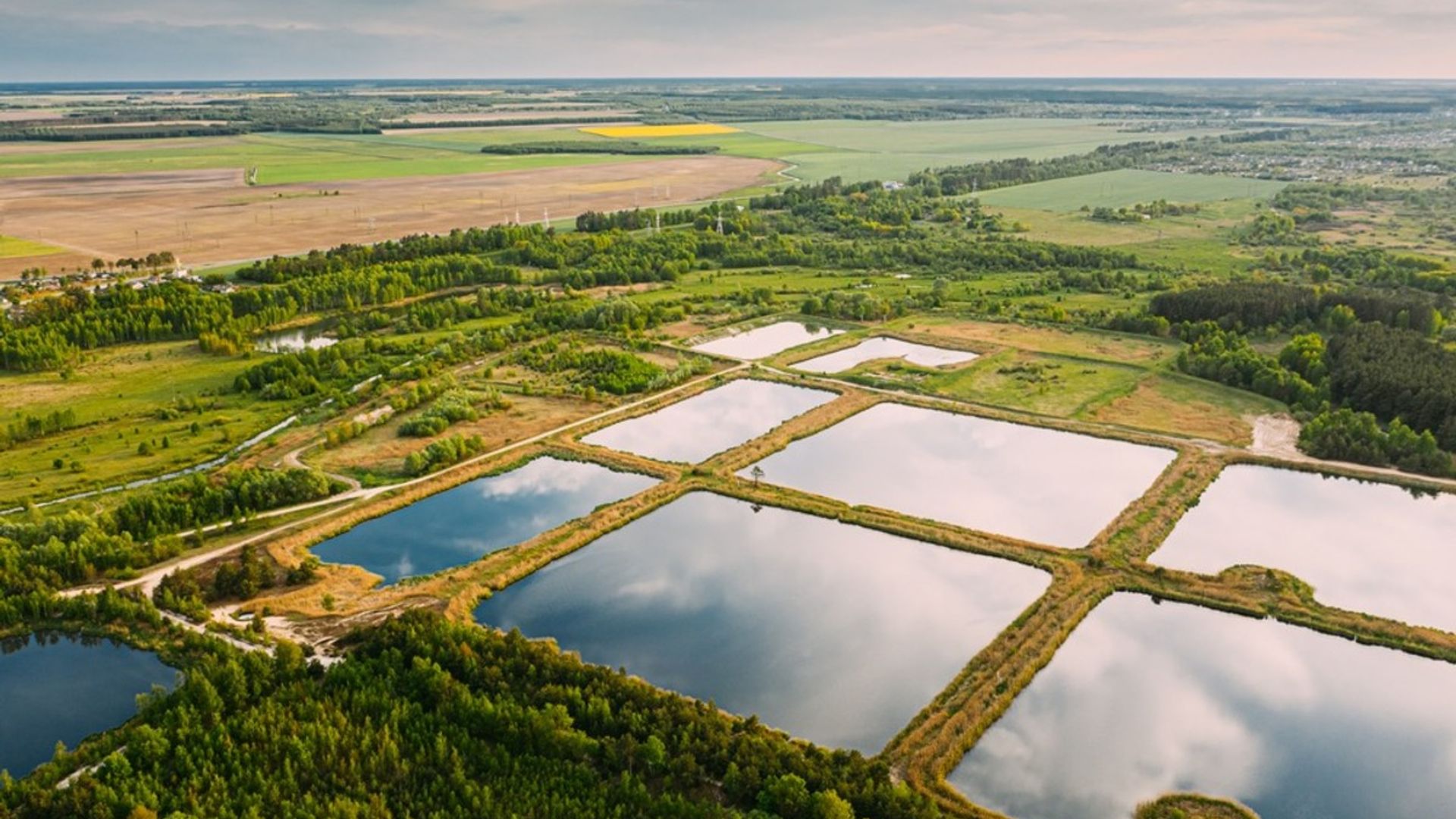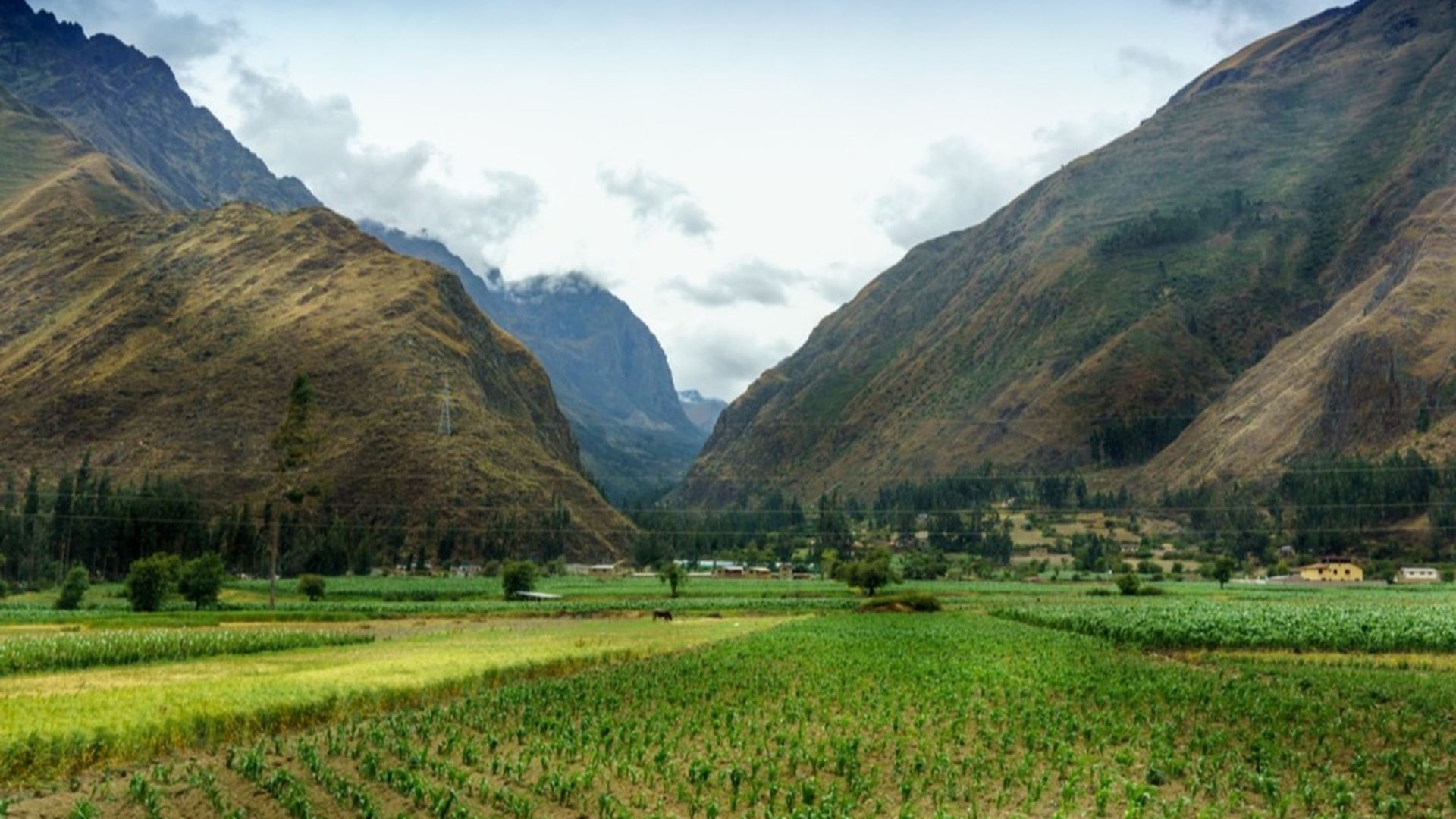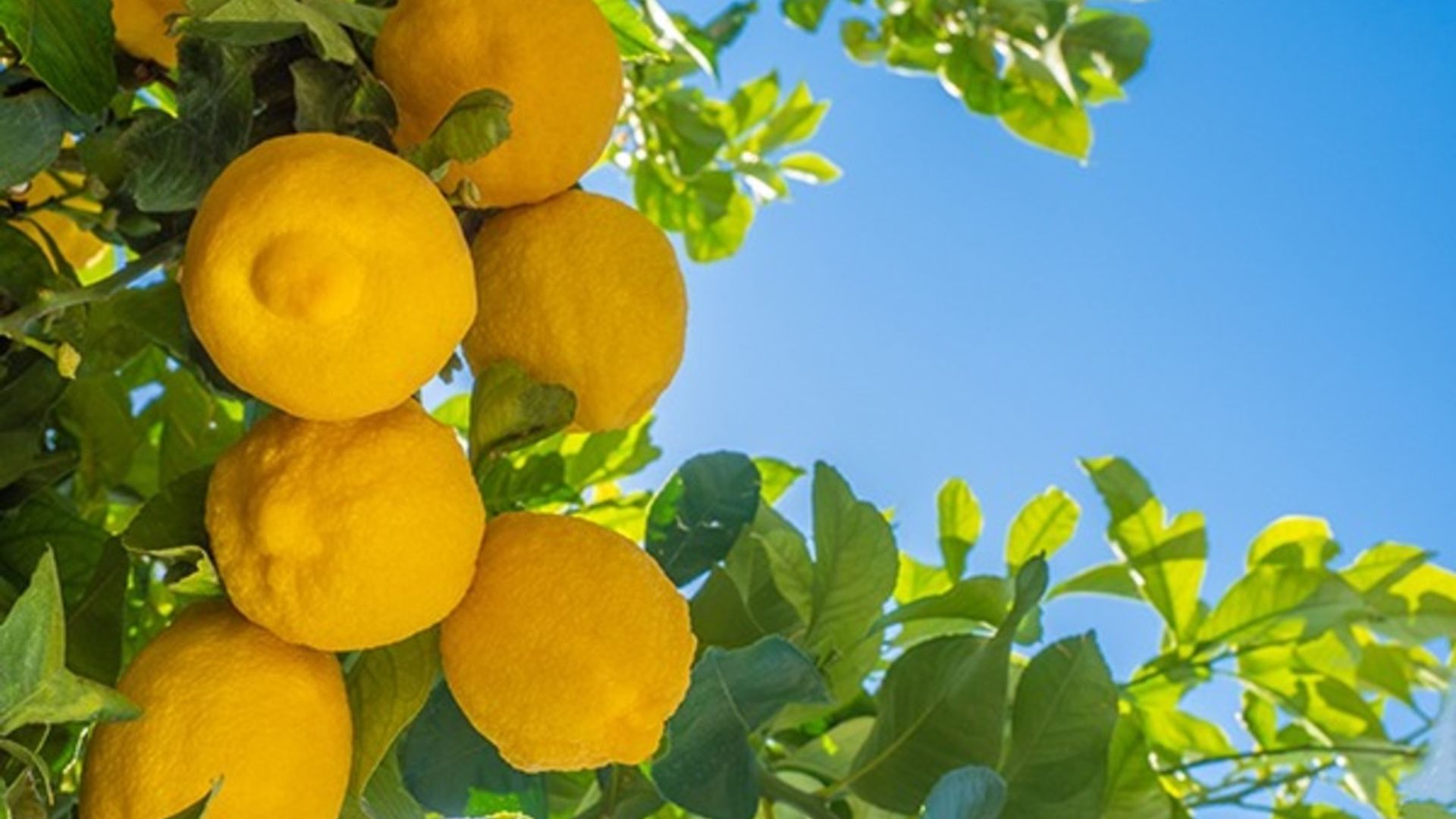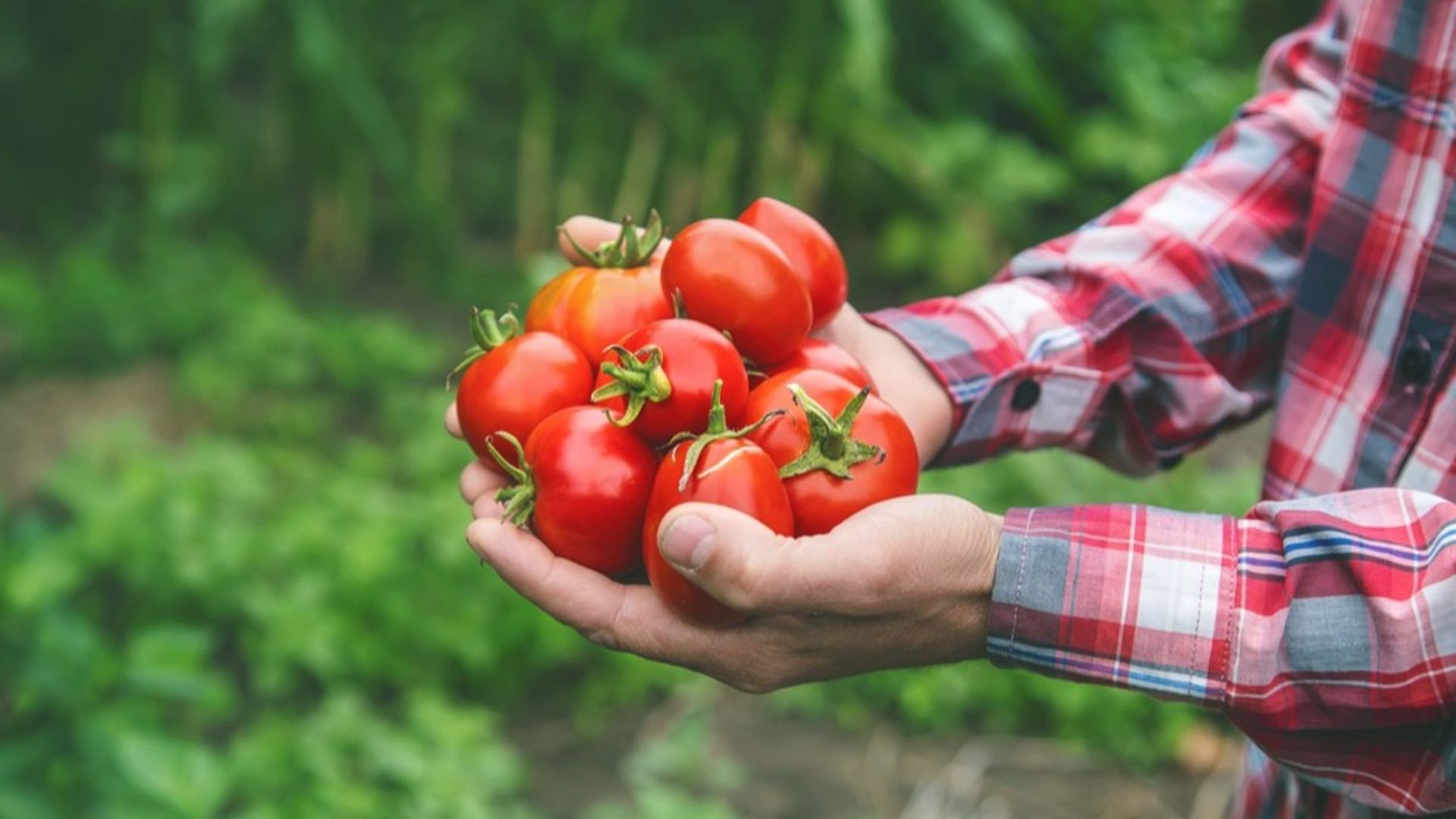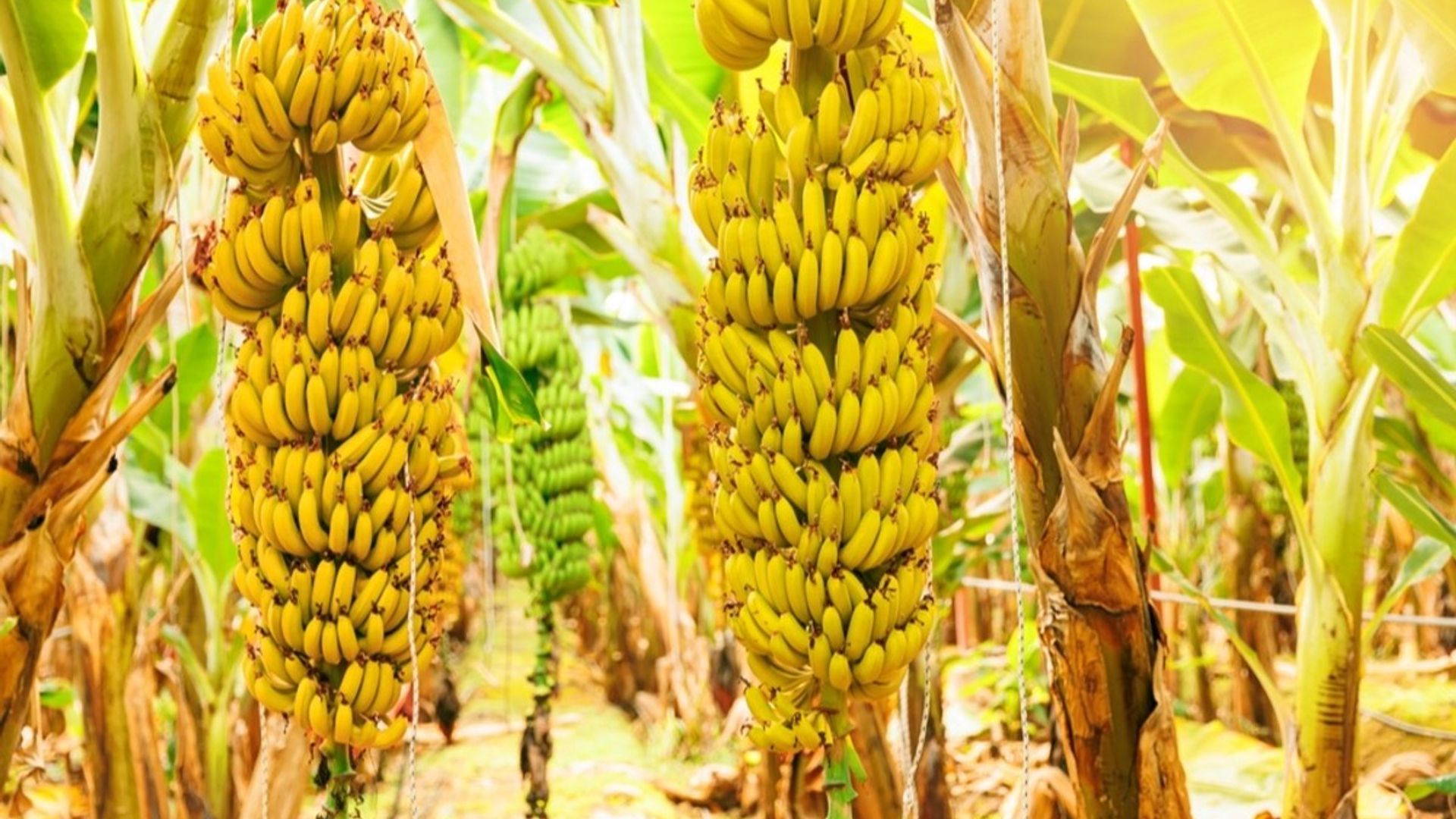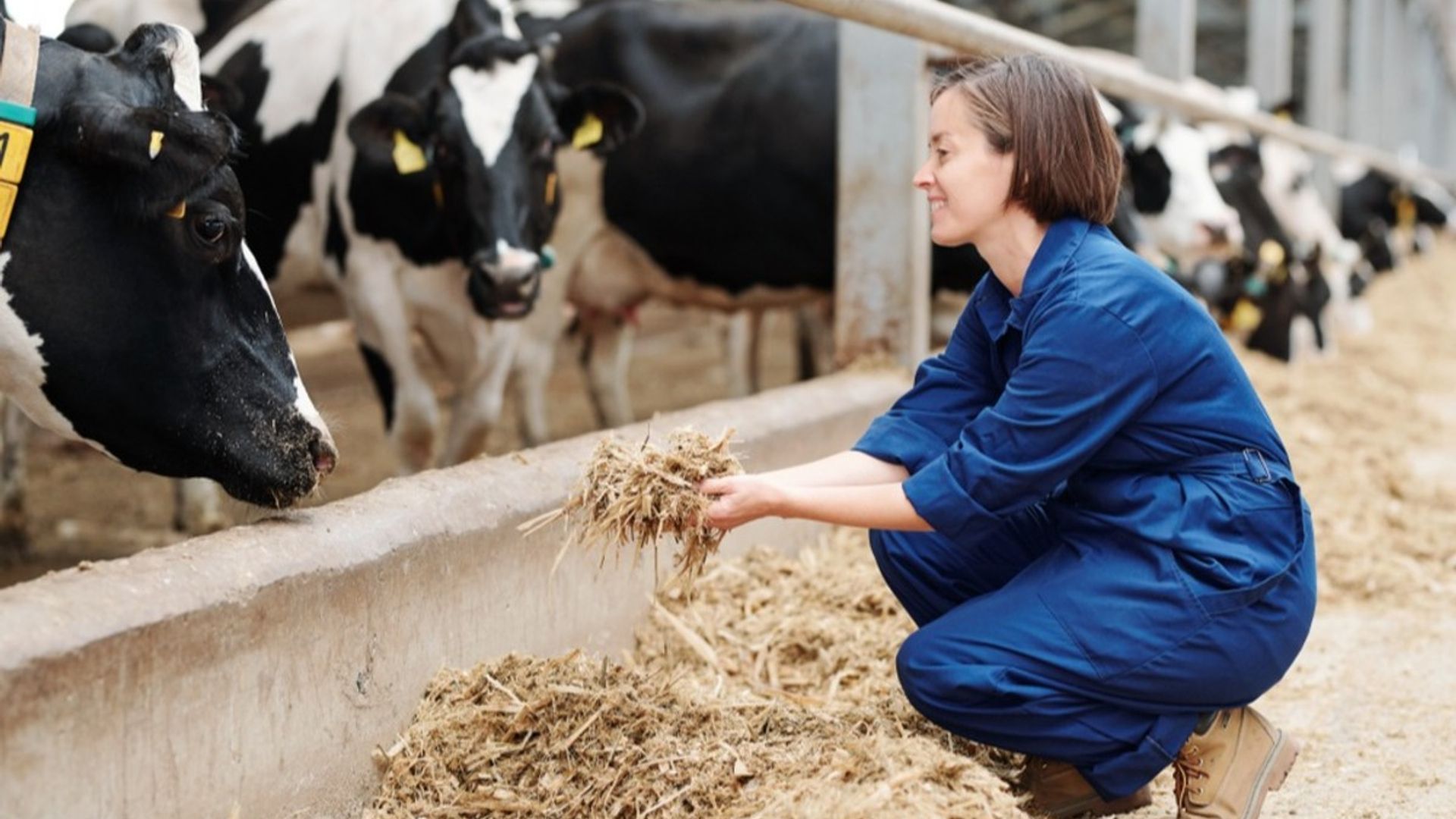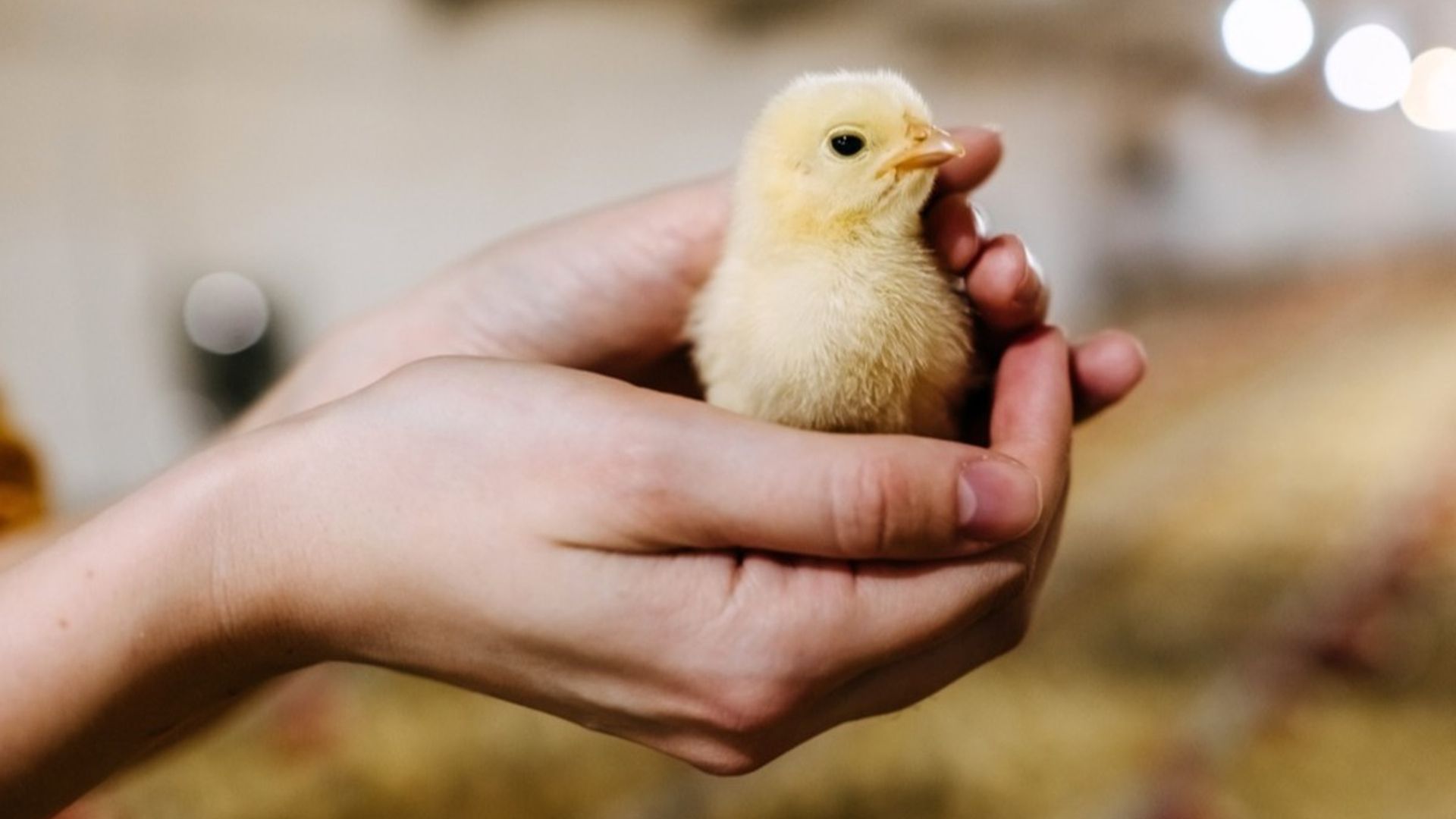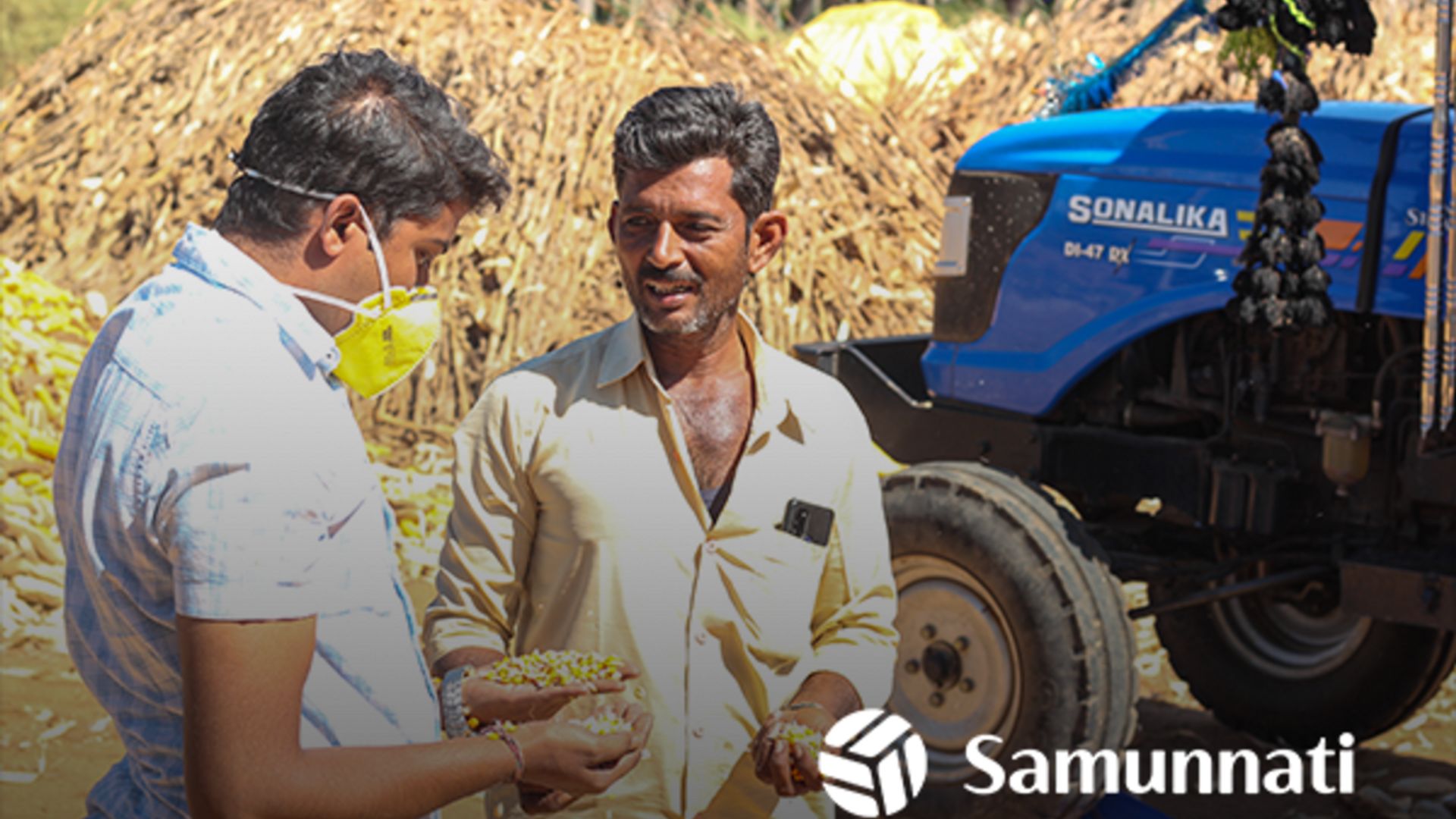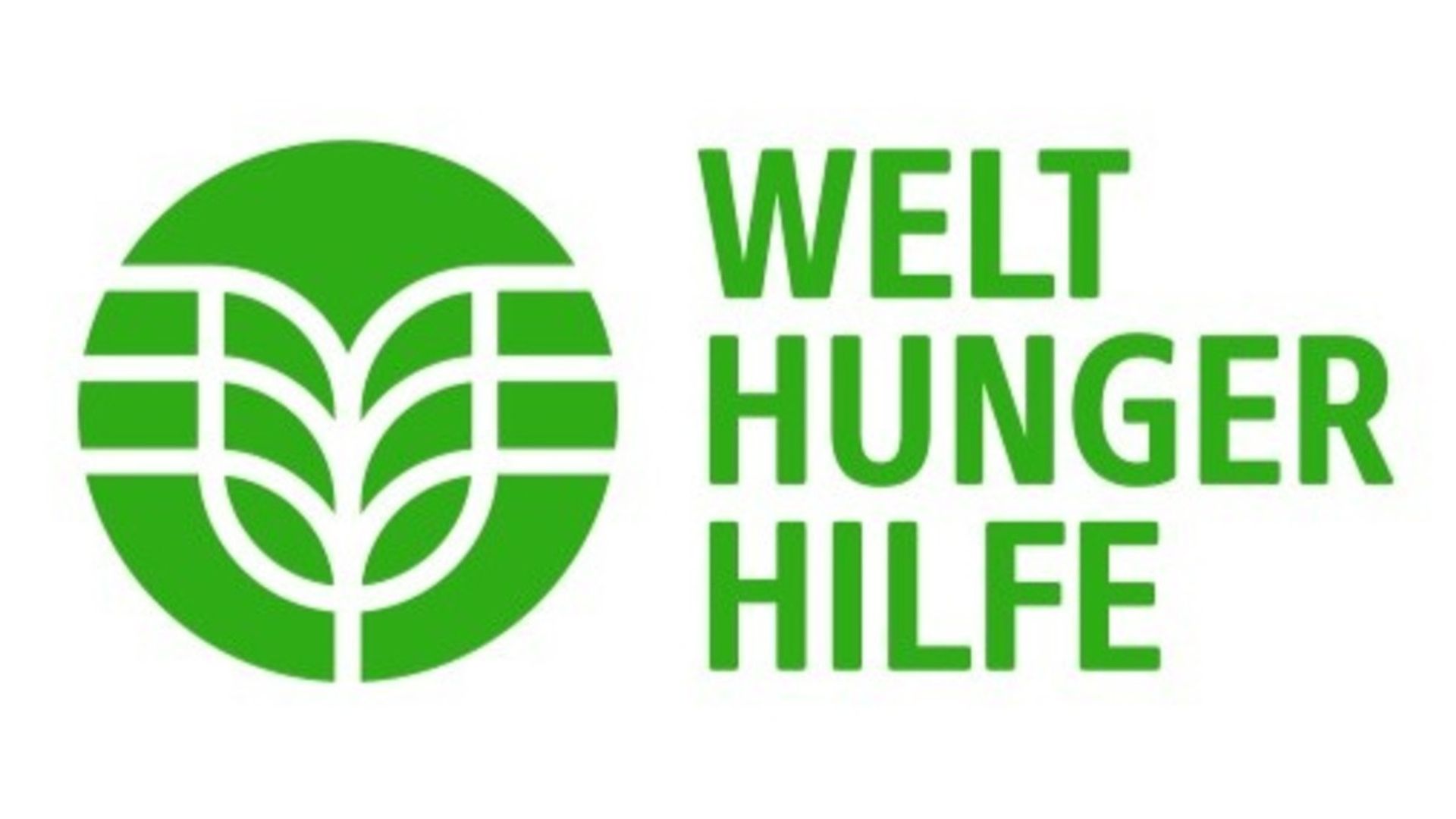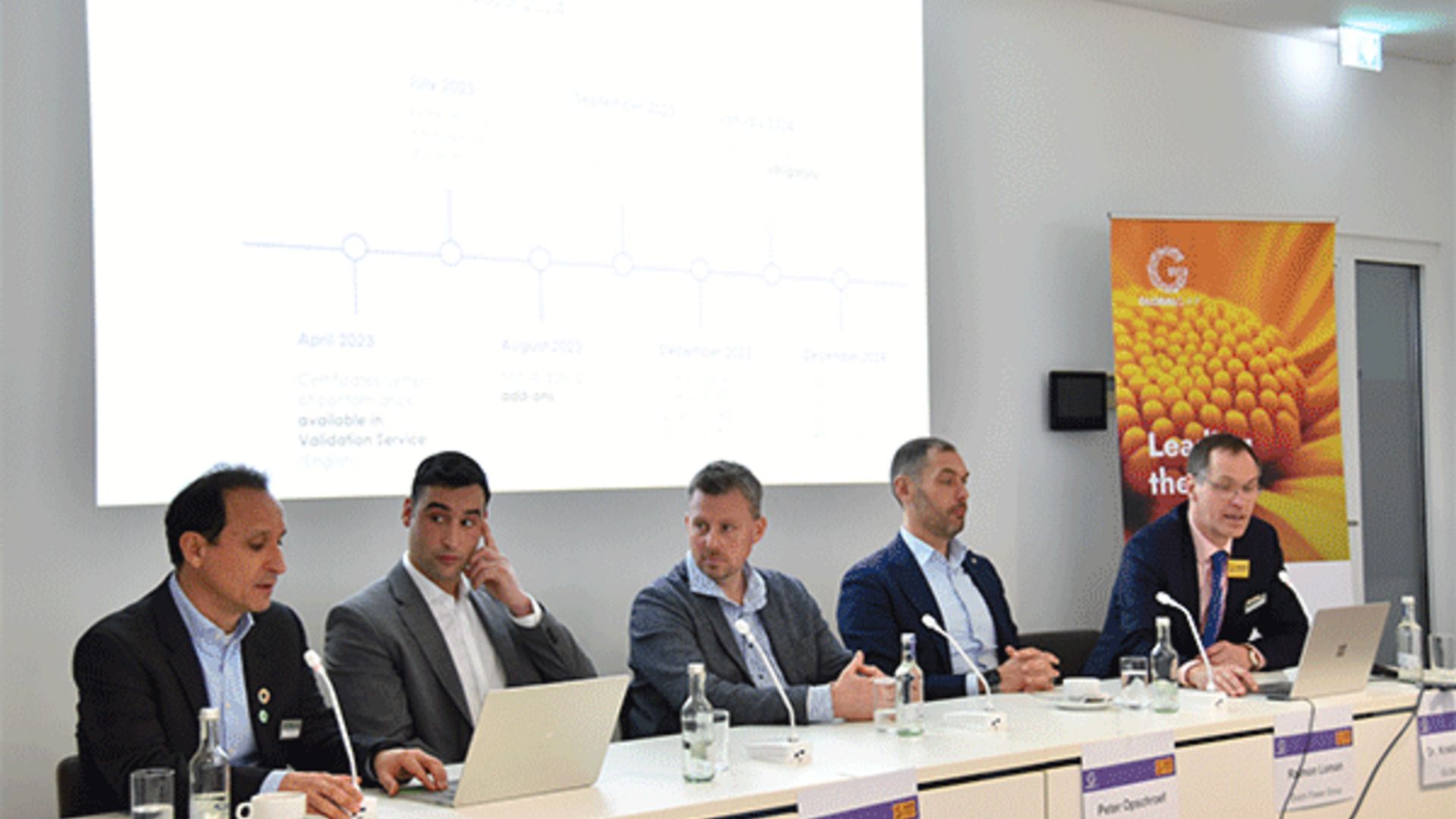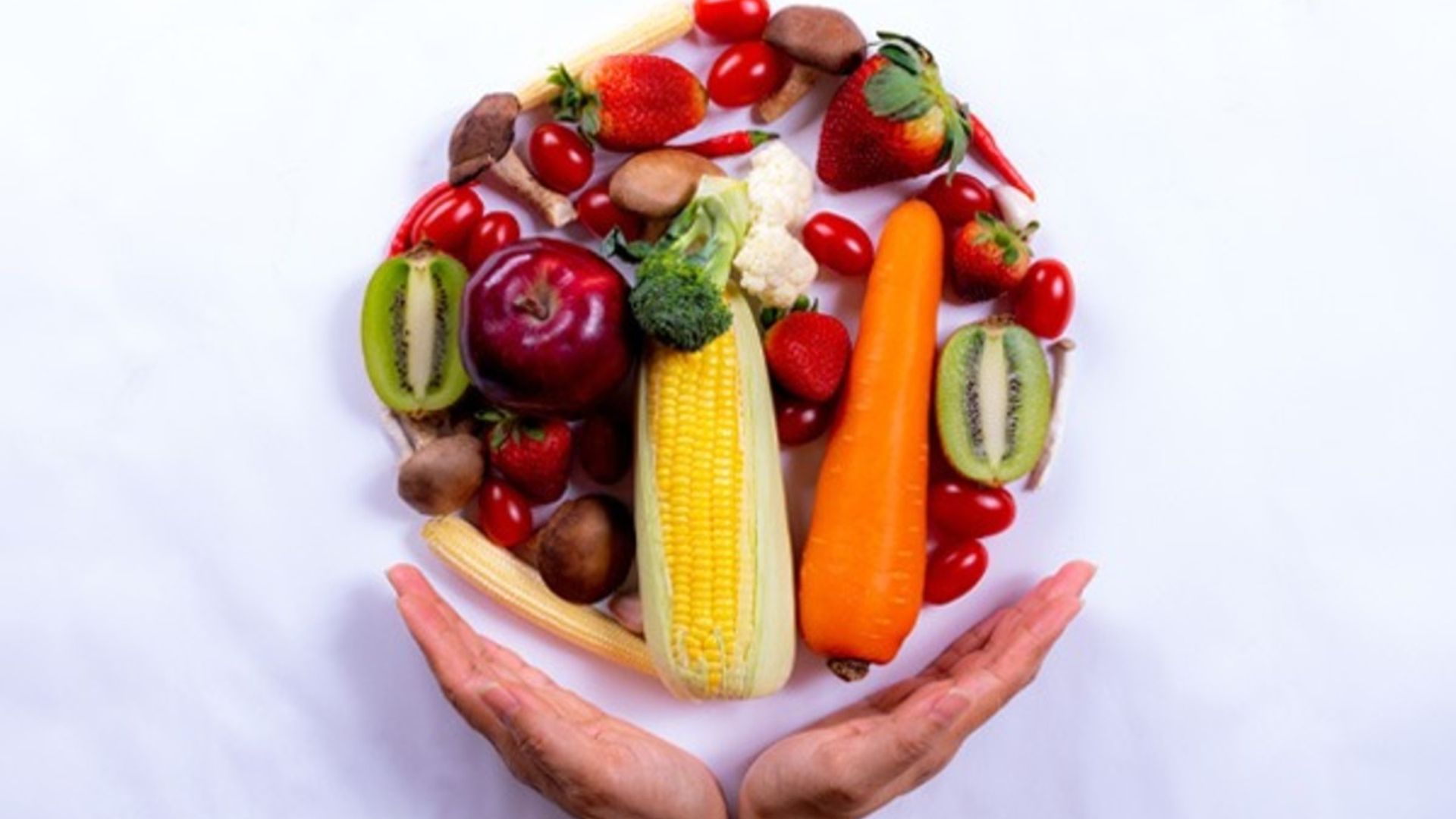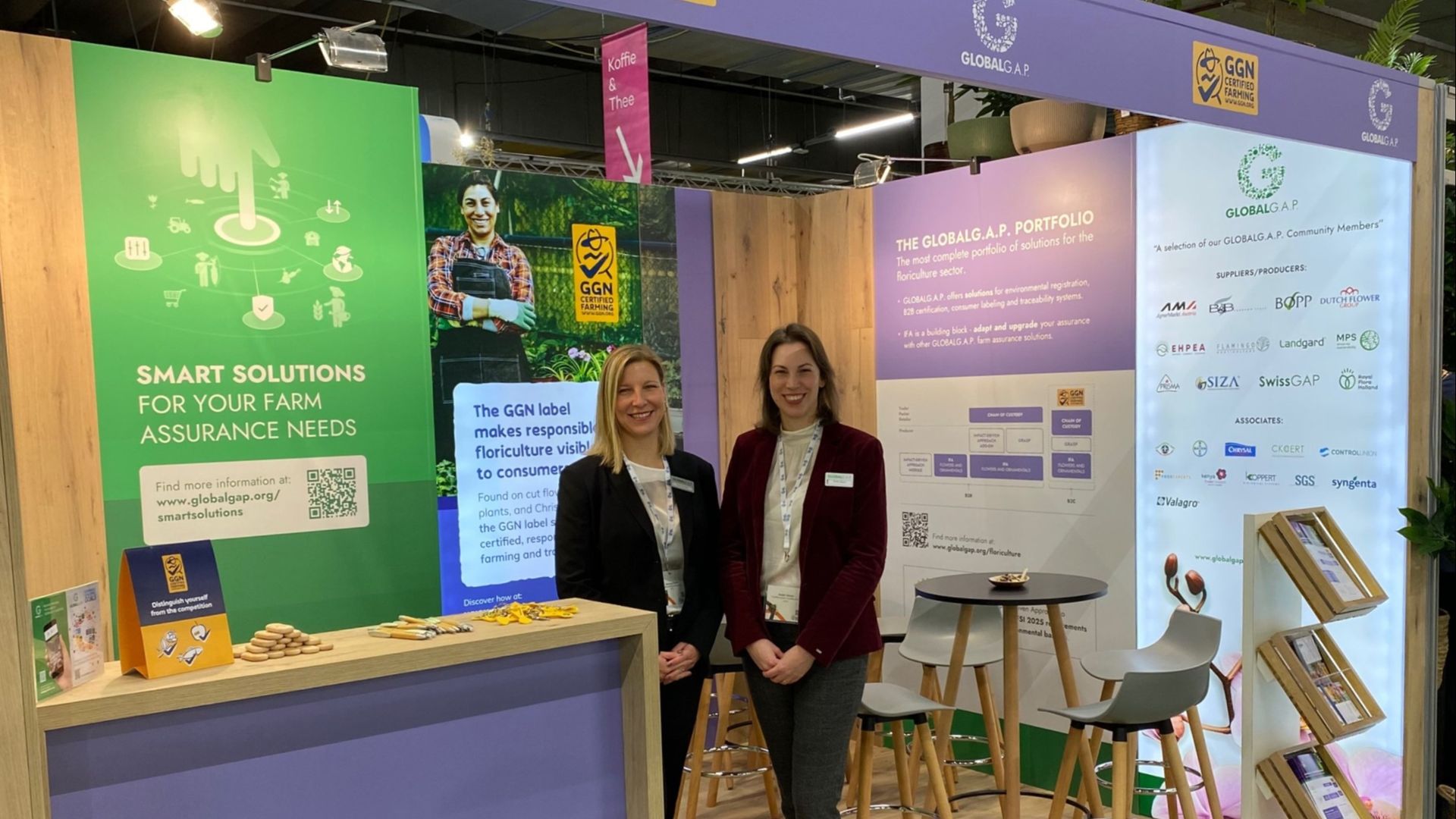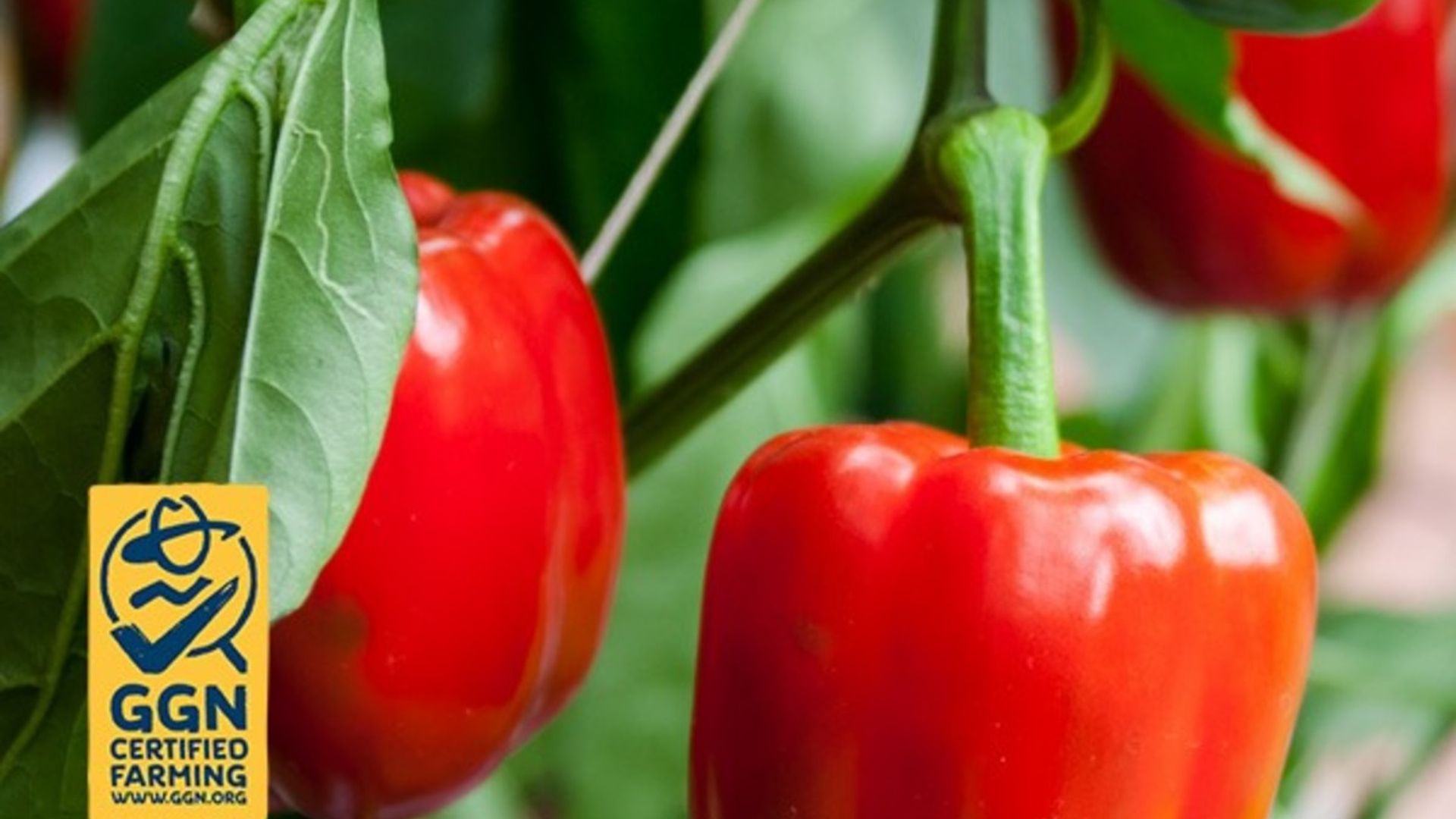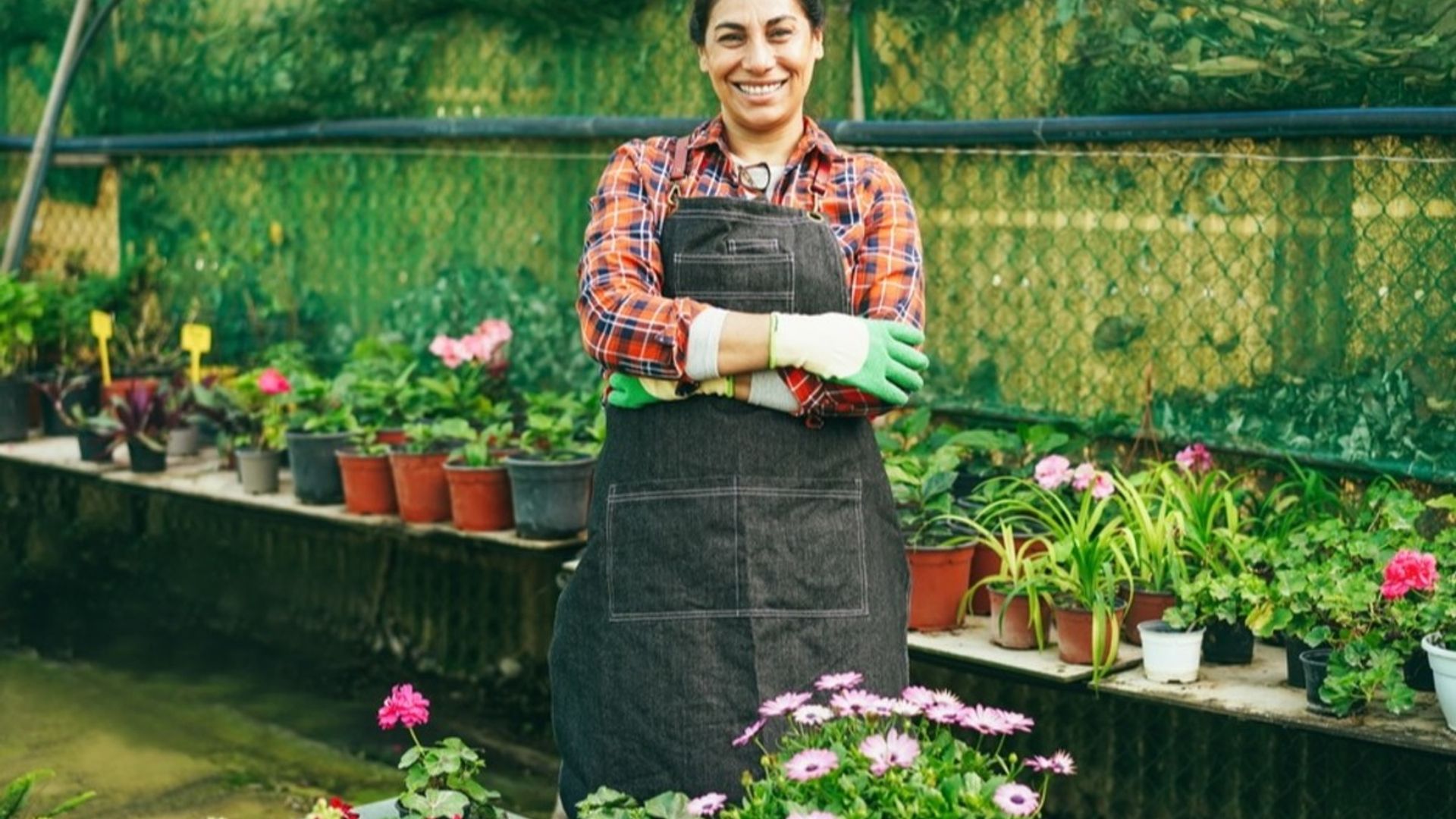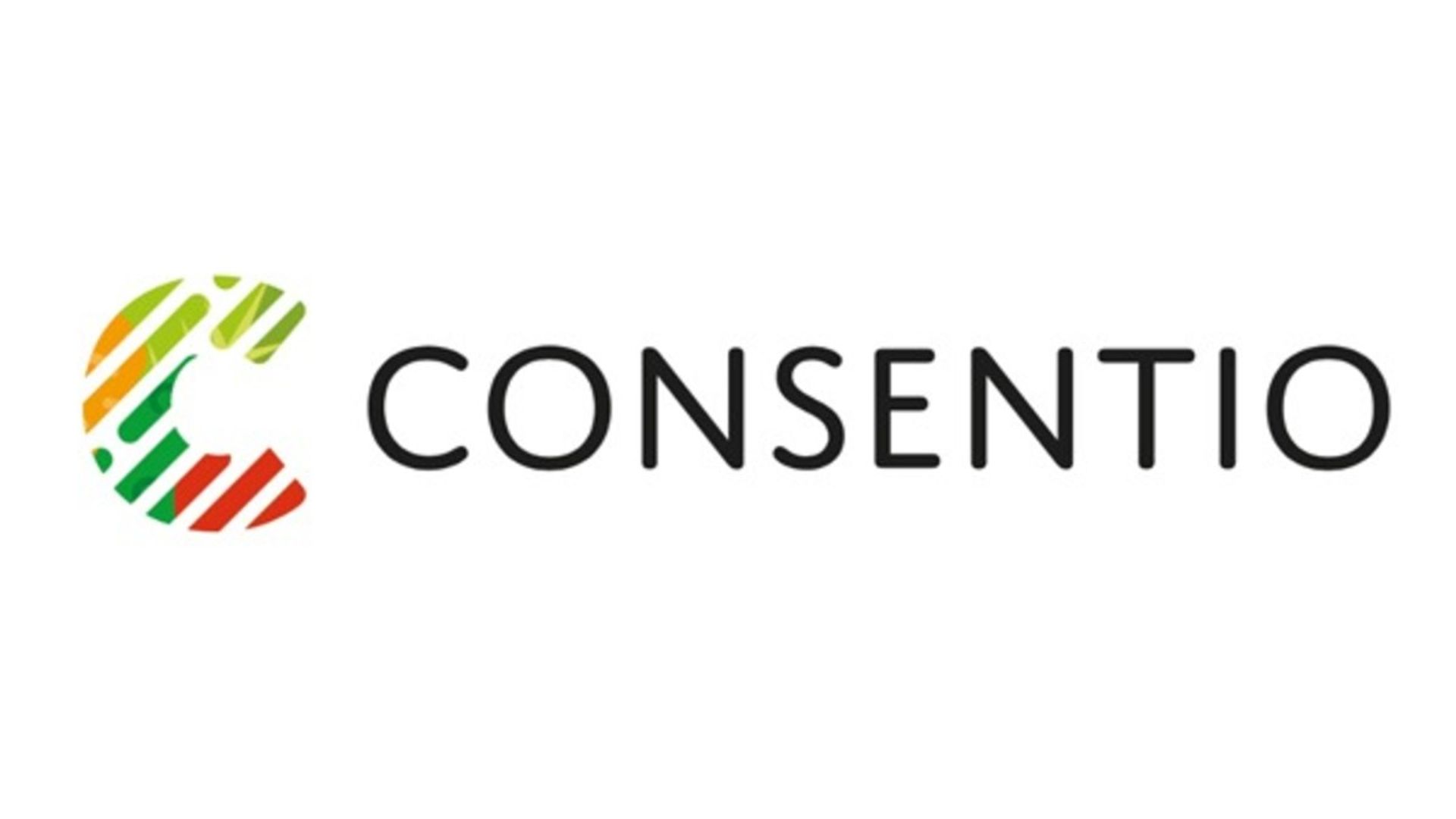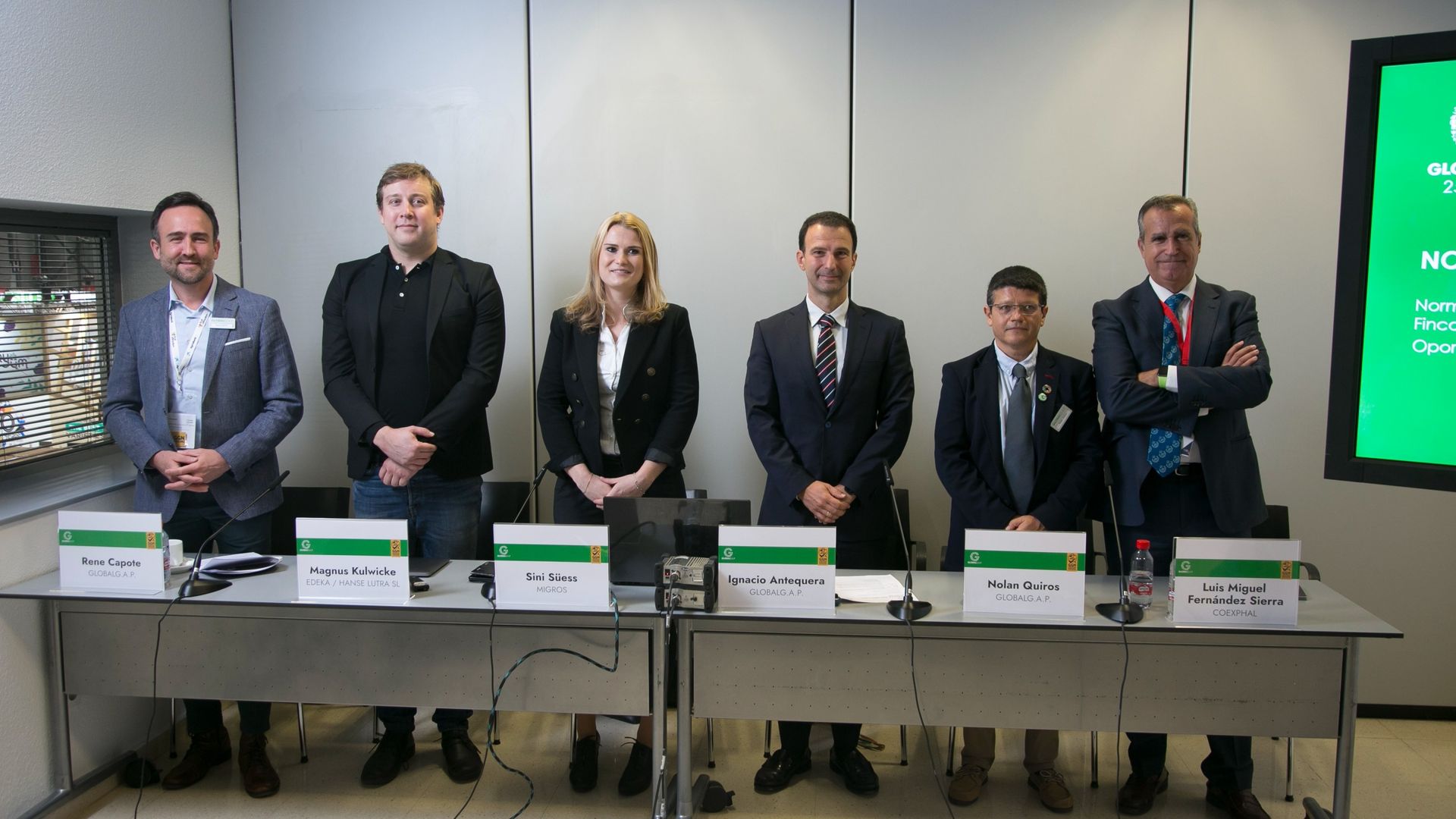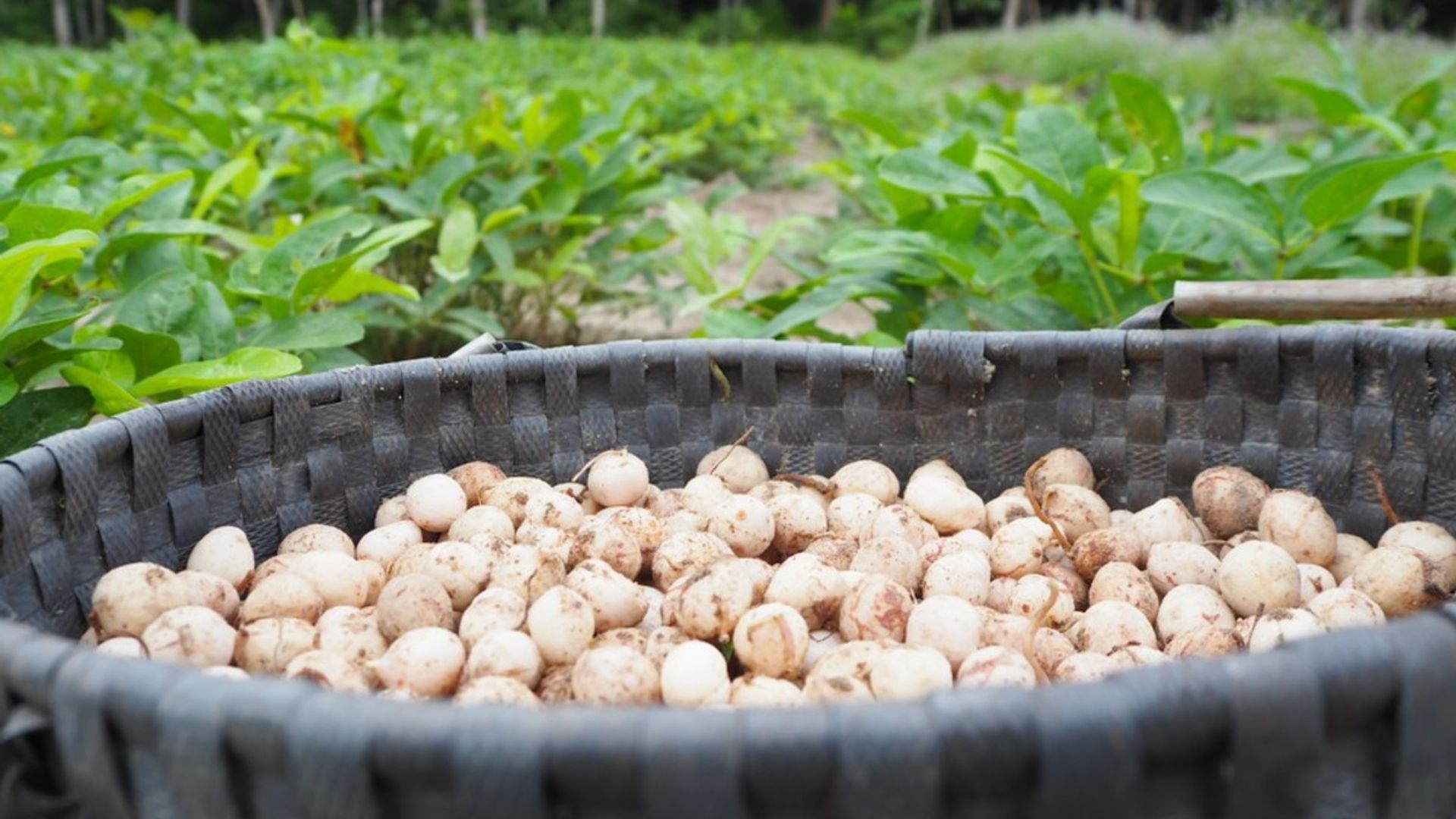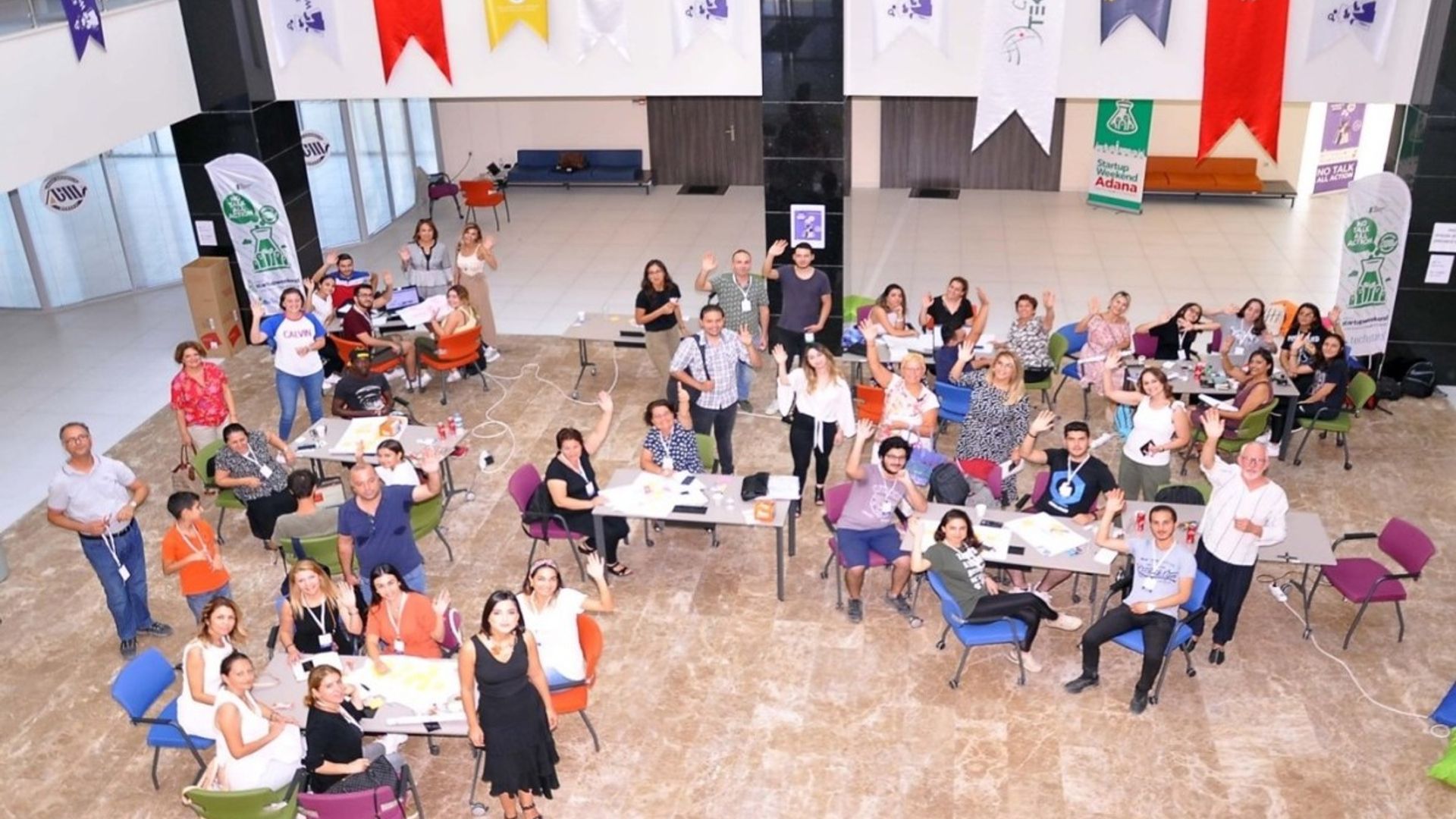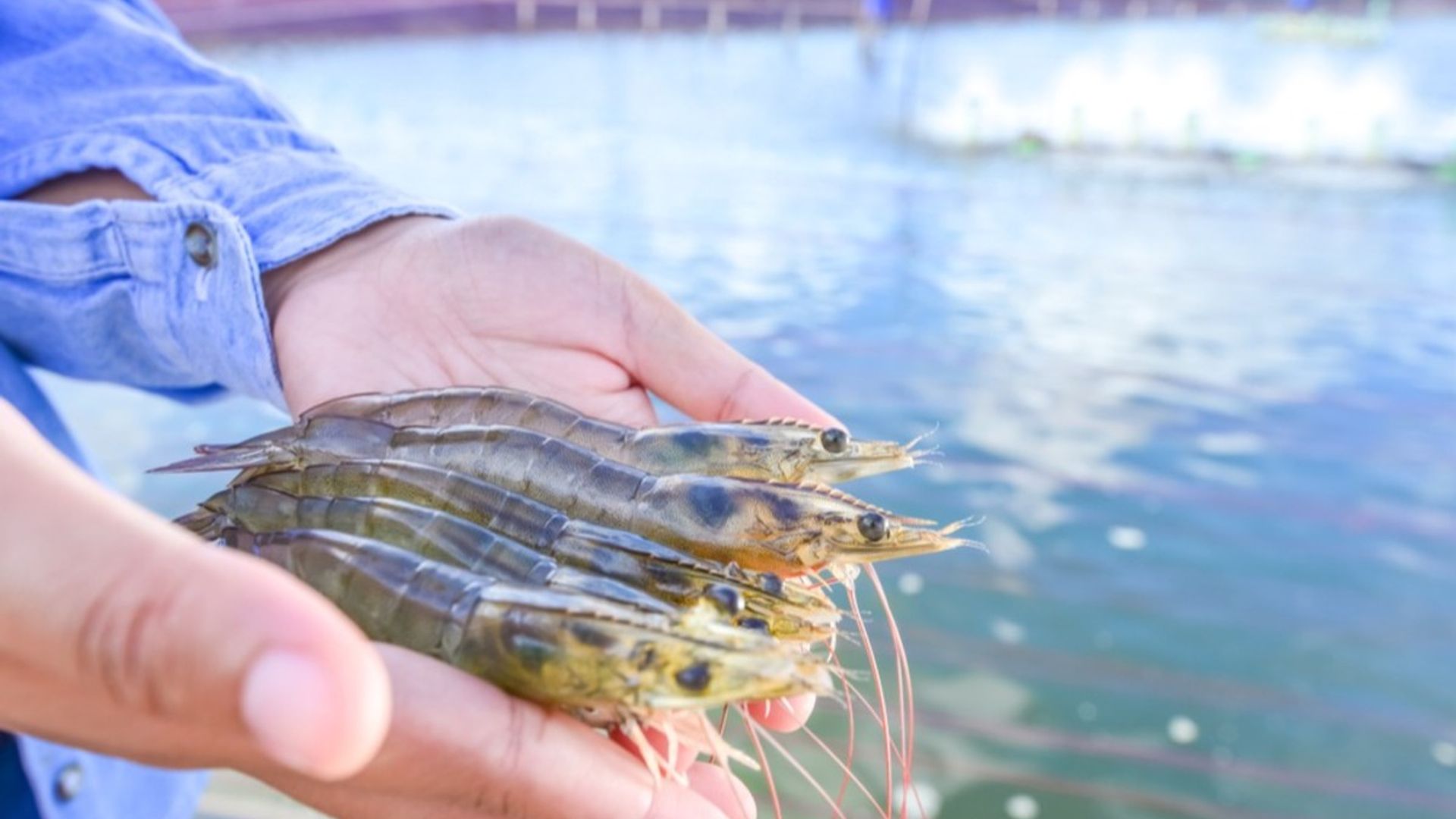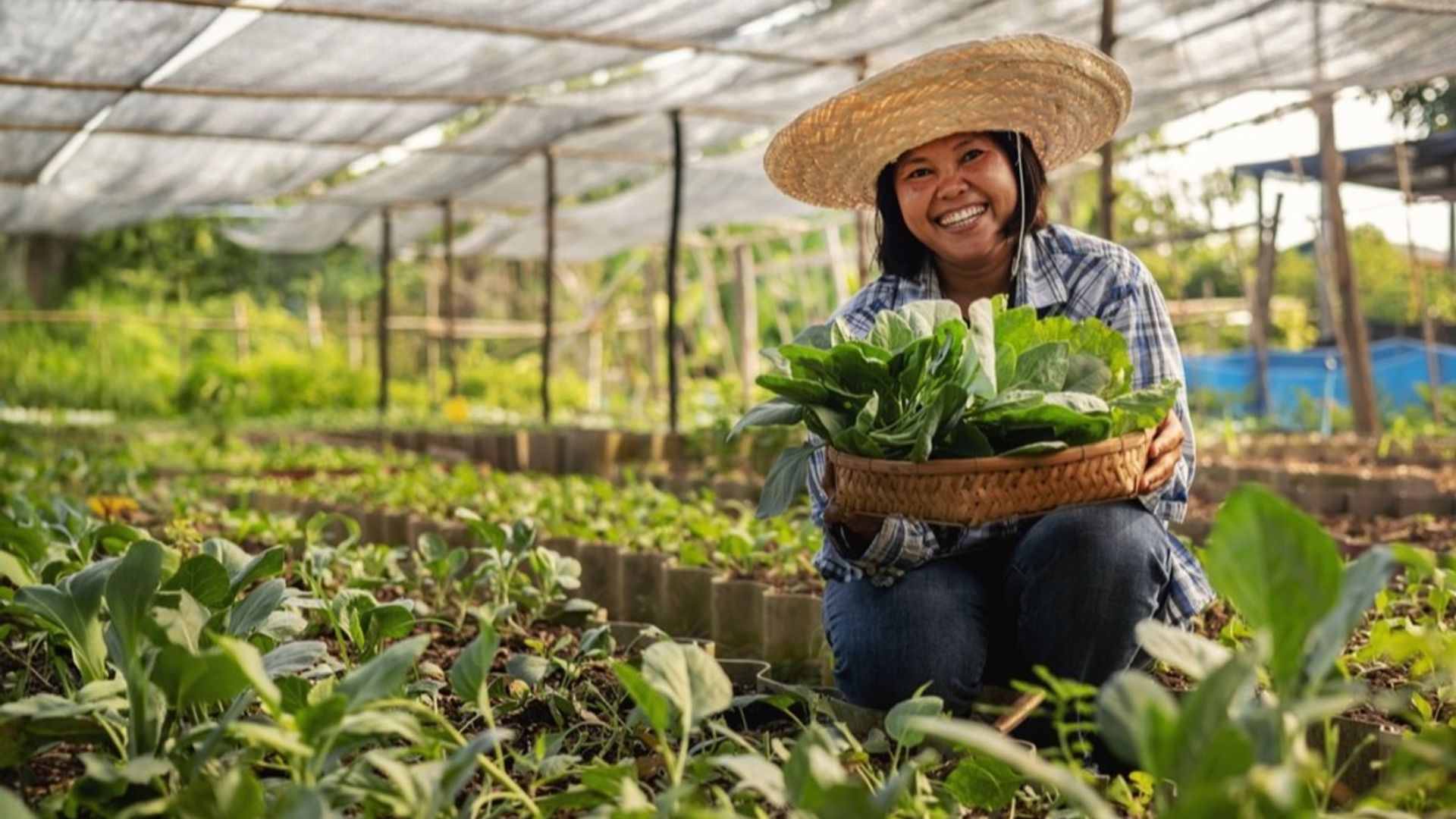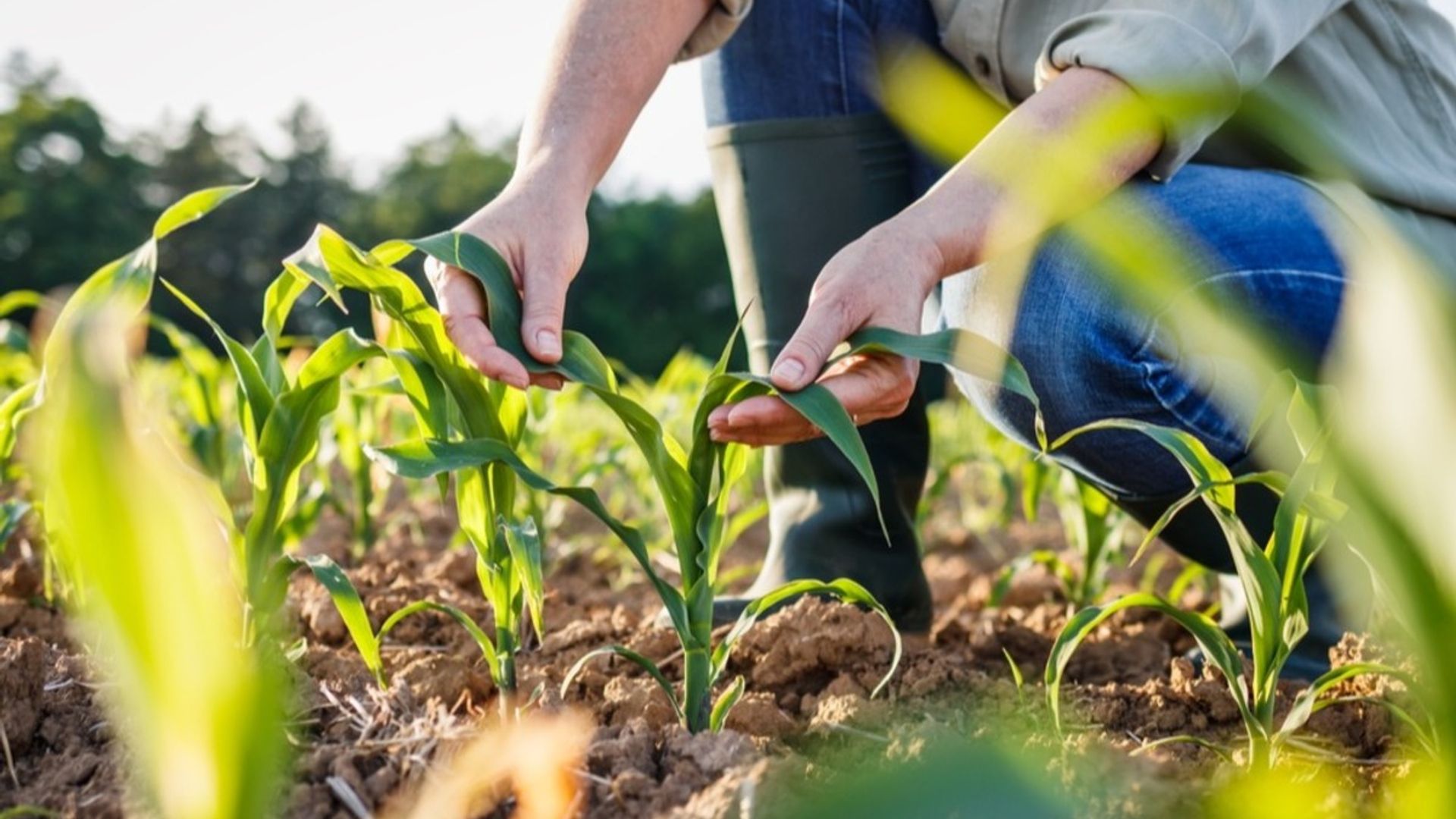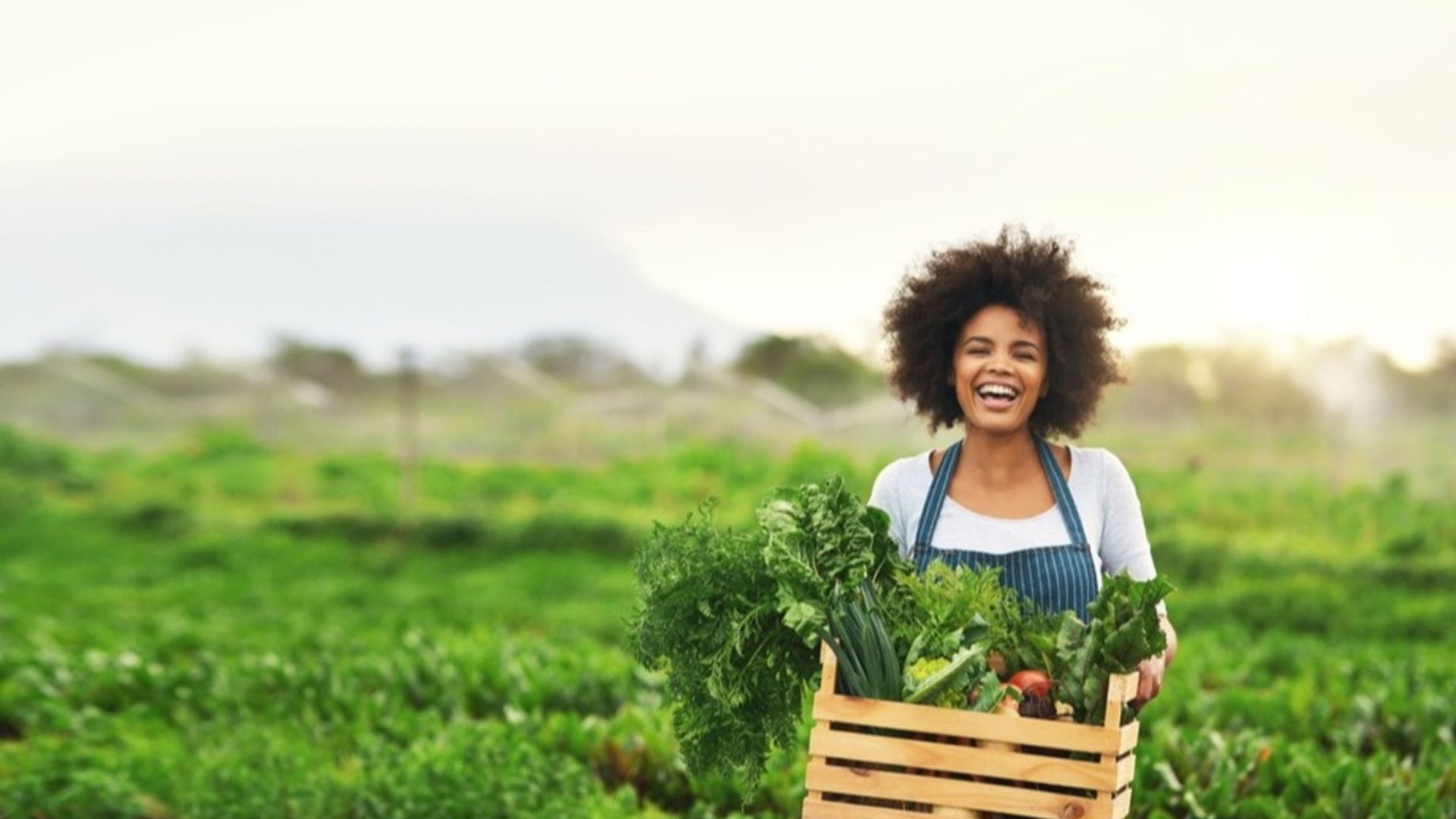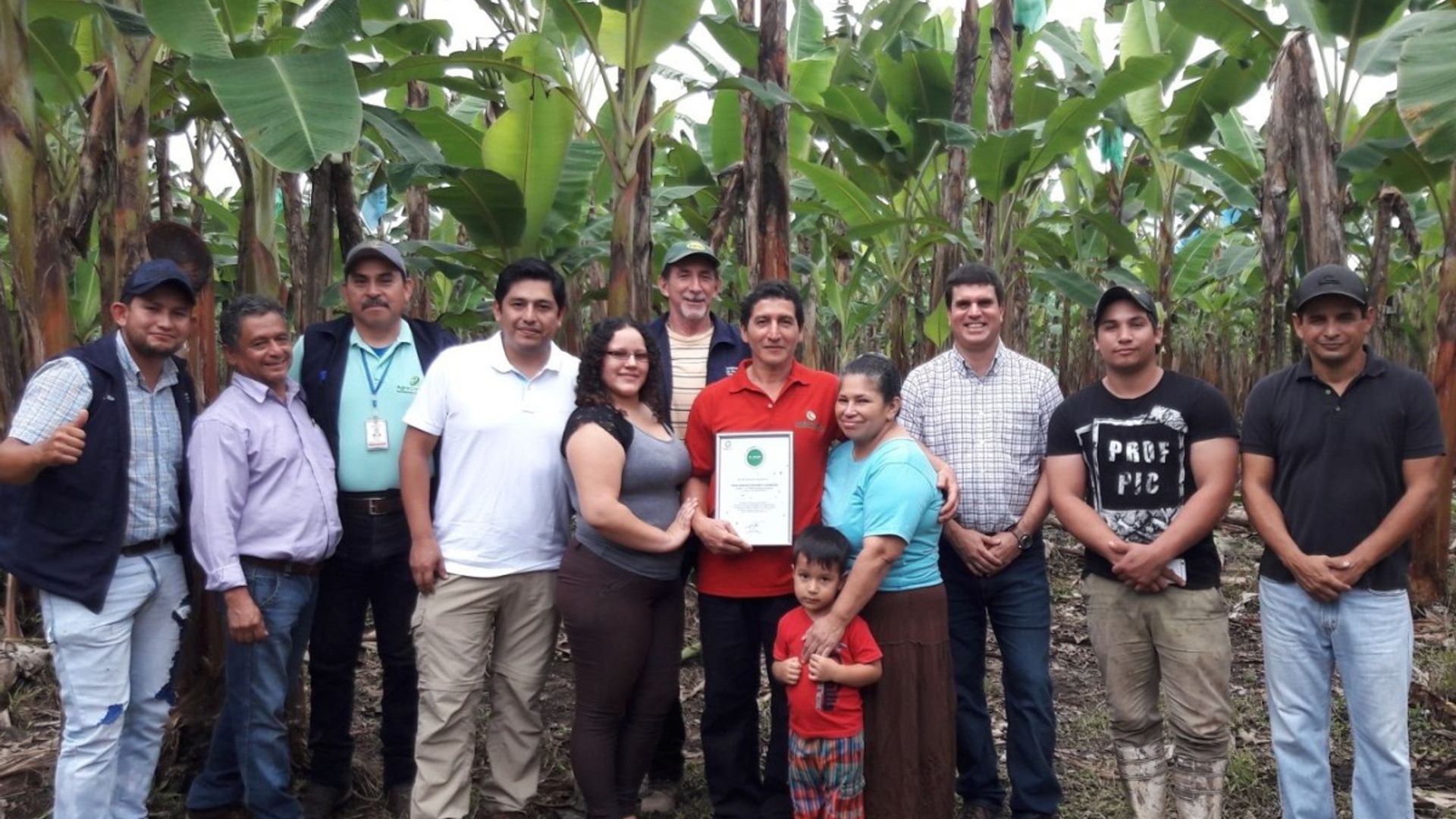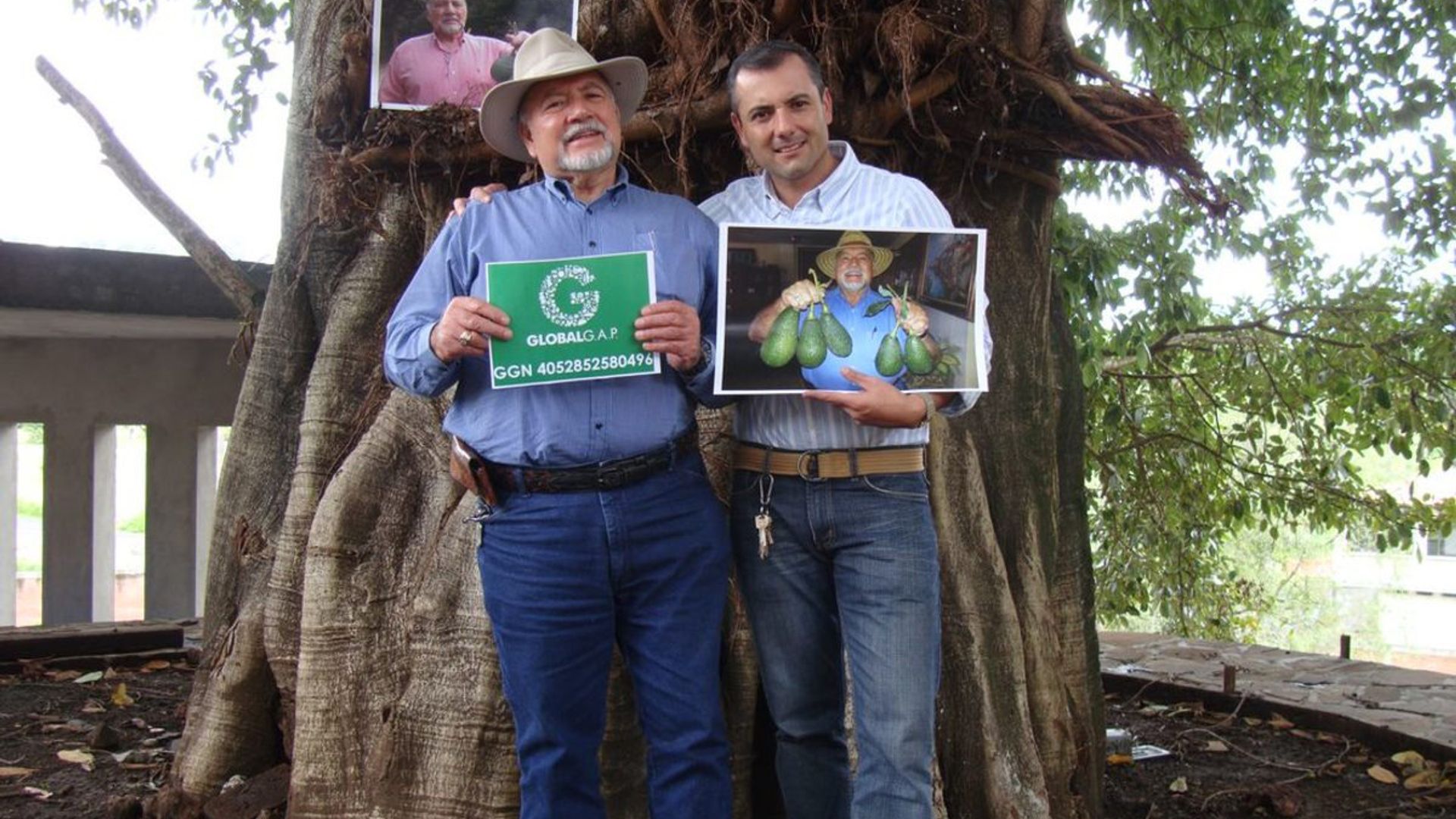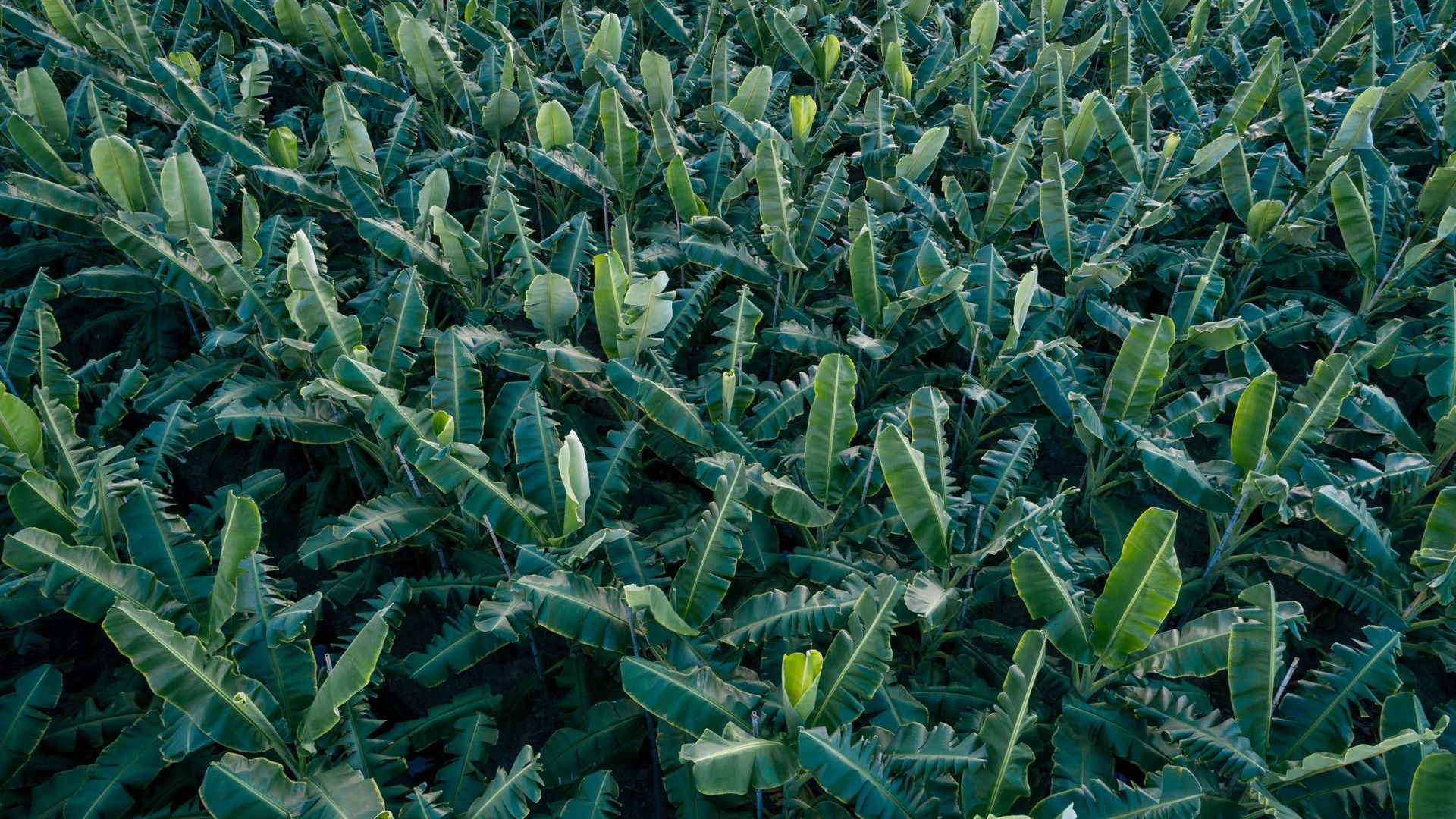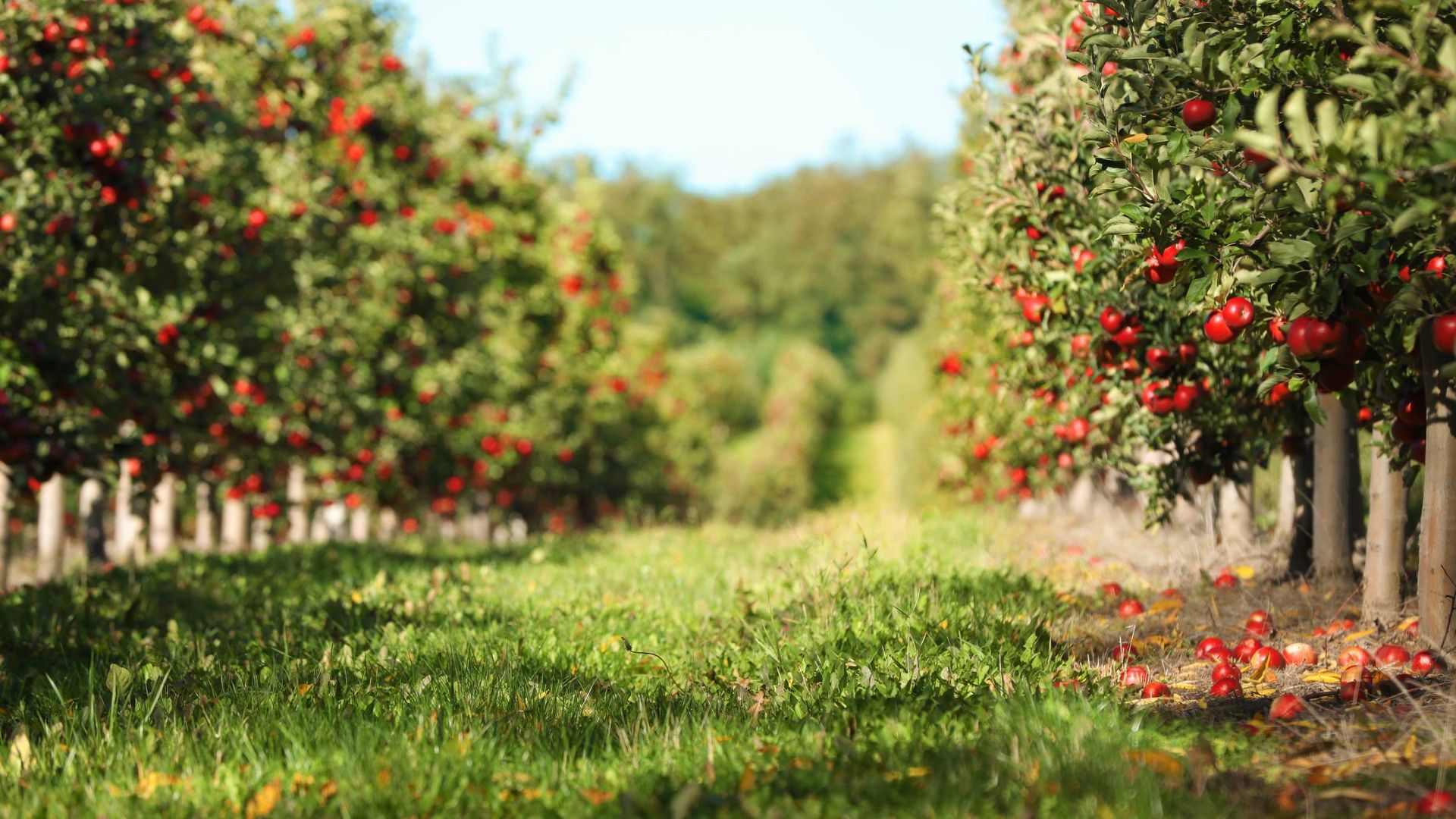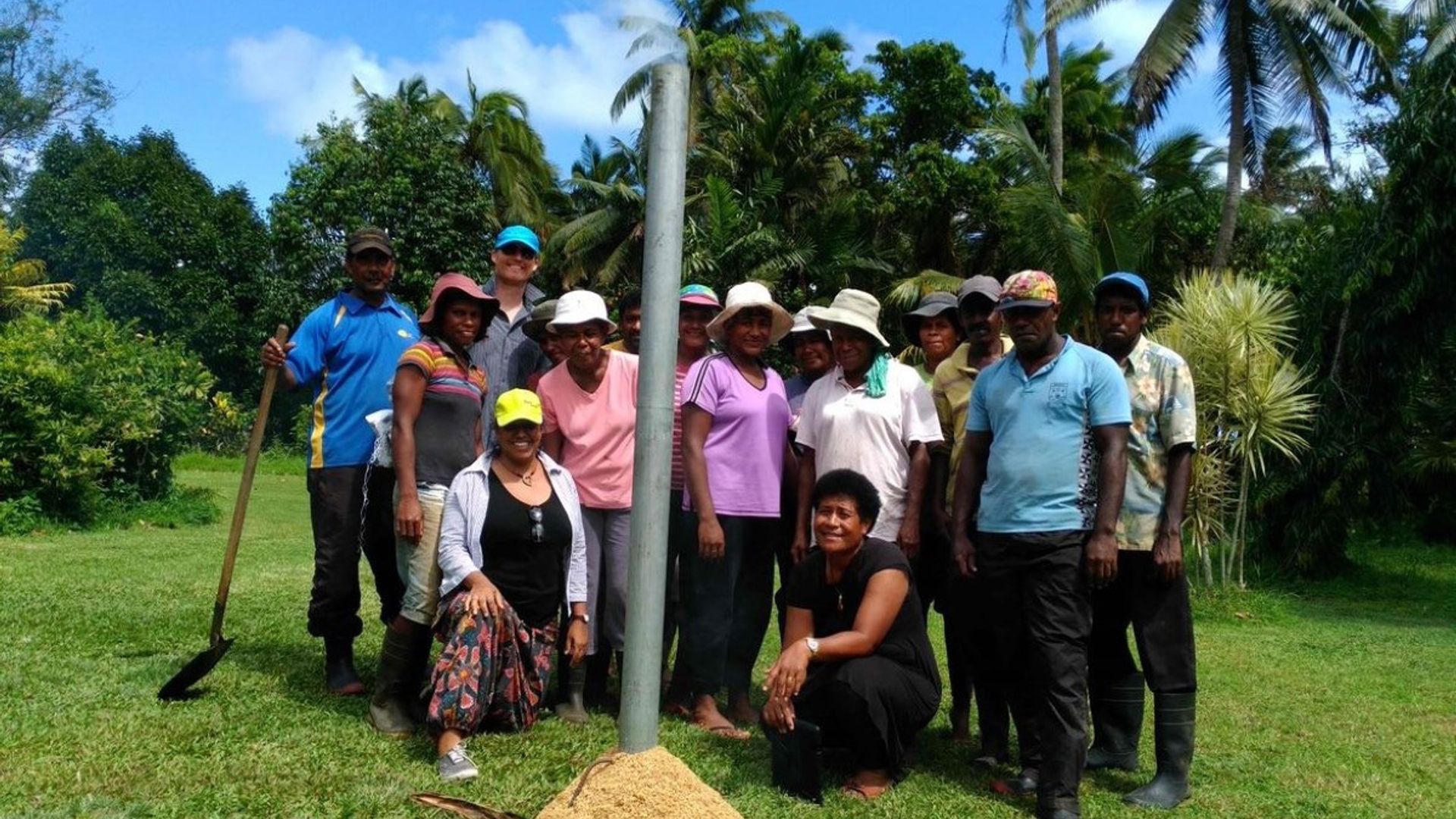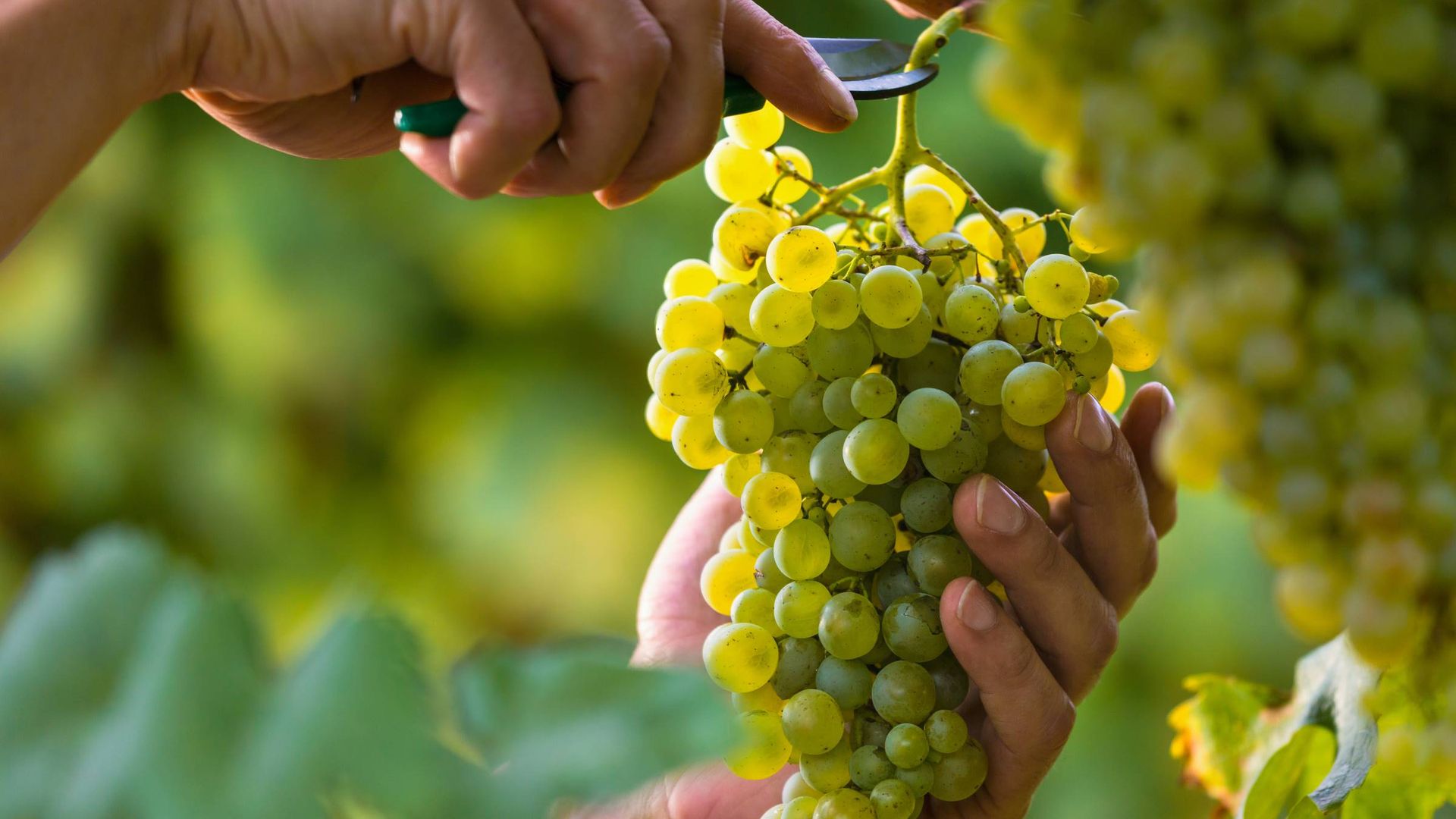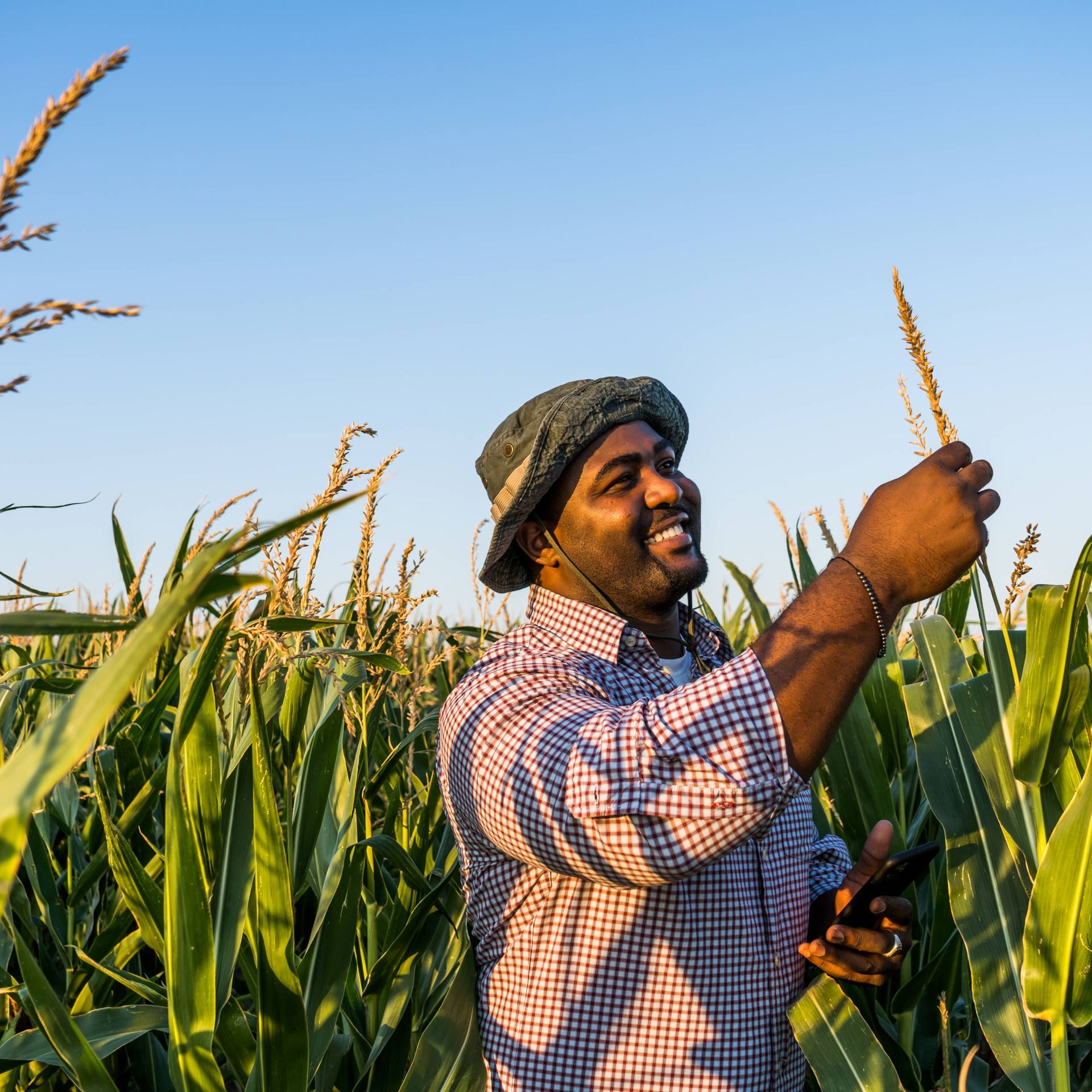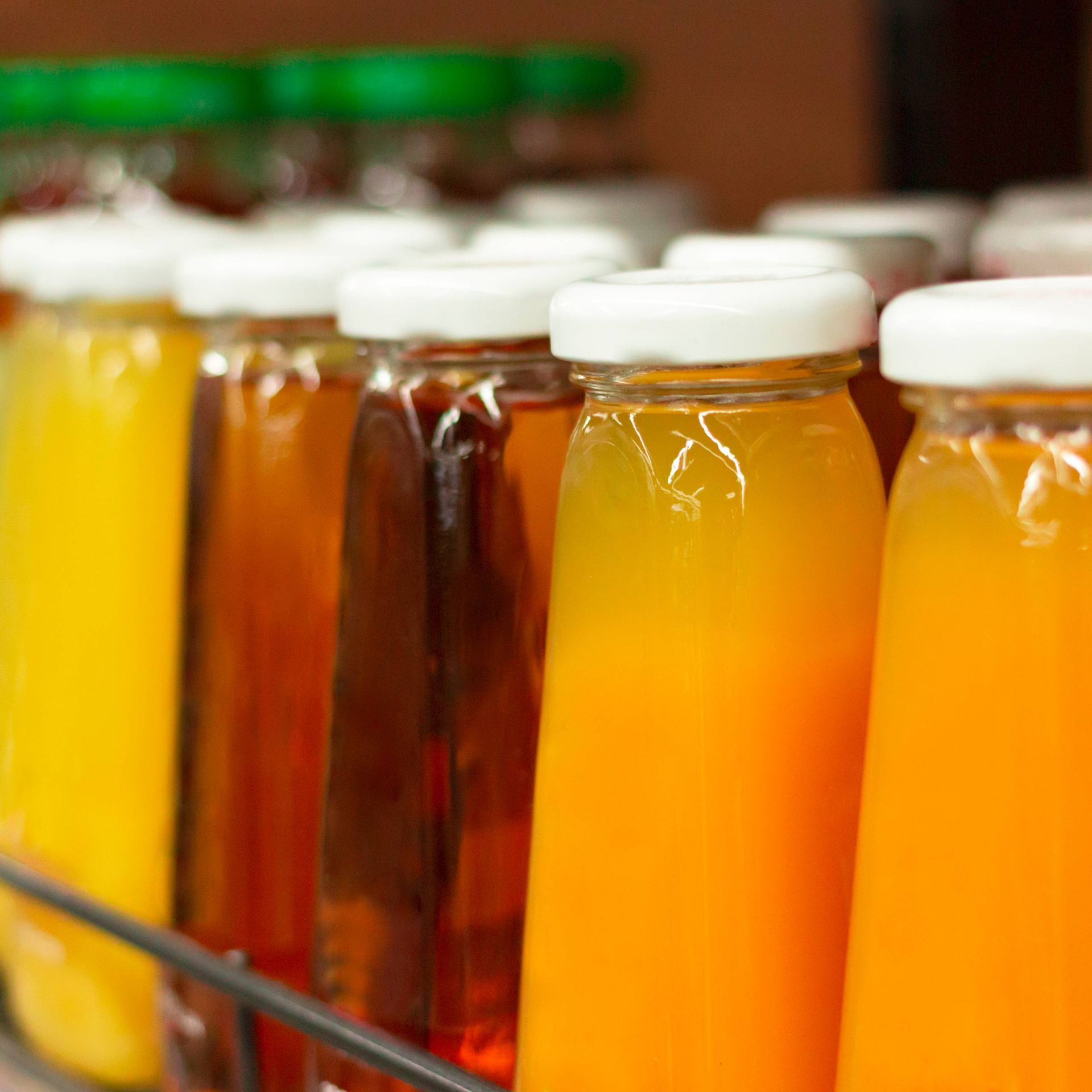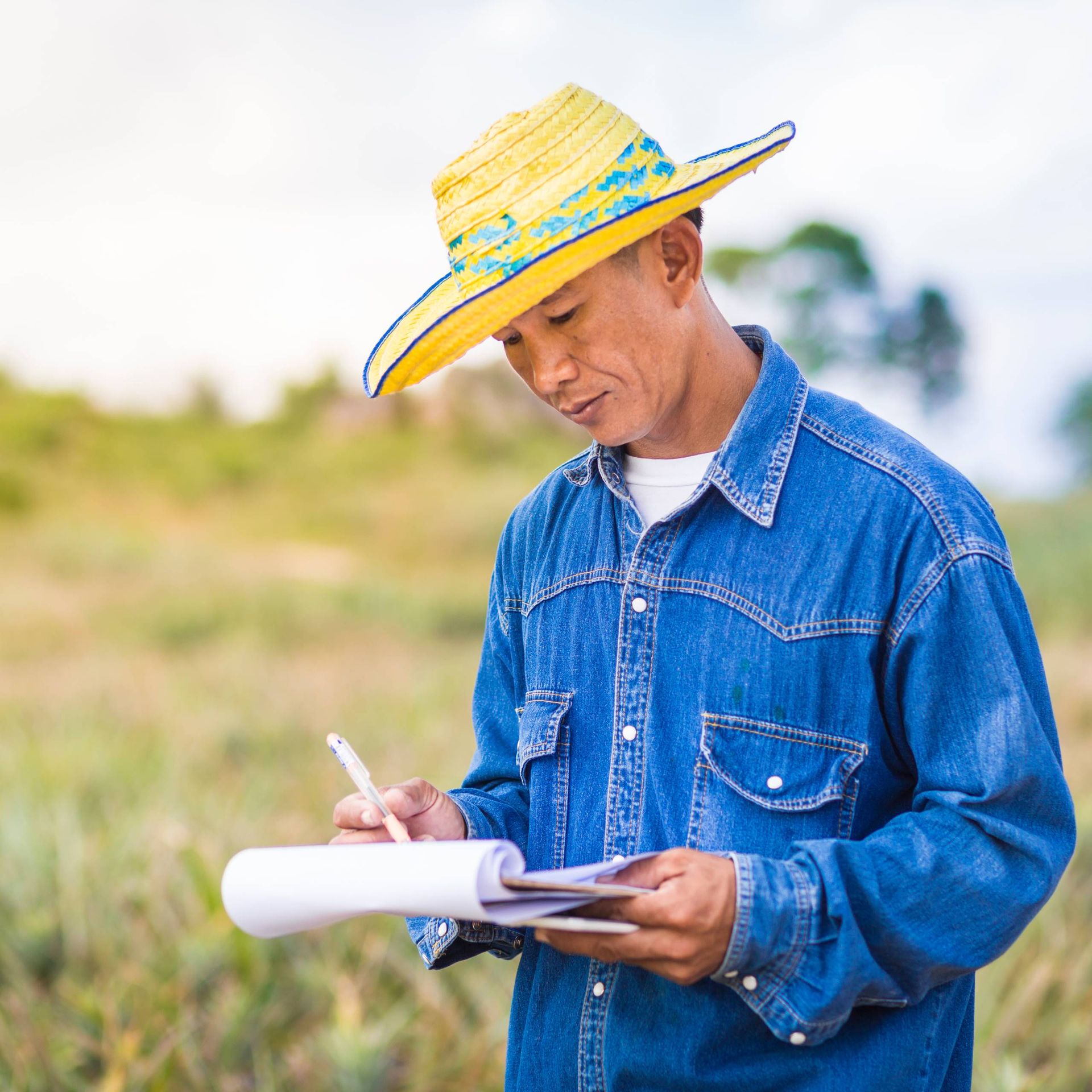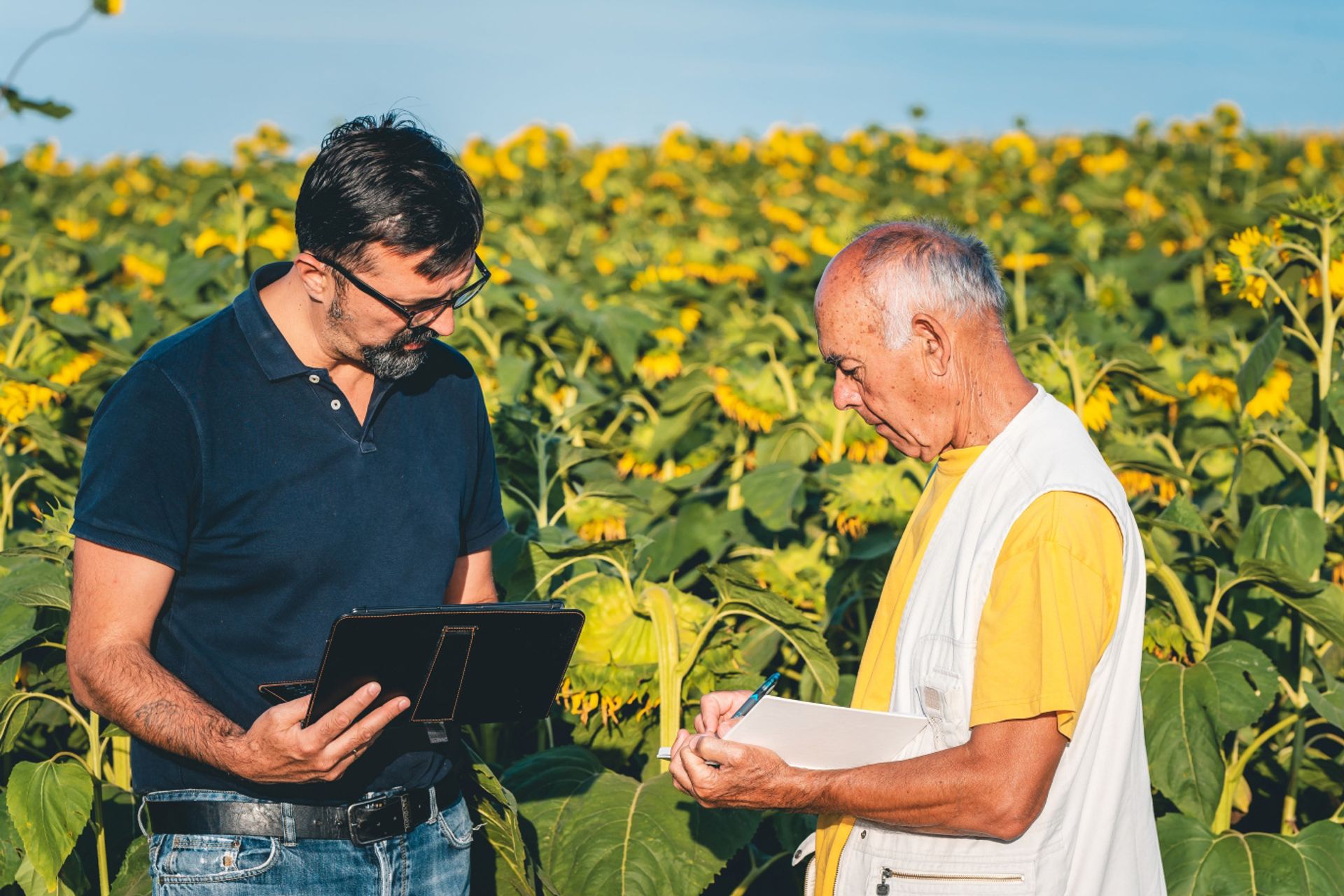Core solution
Crops for Processing
Crops for Processing (CfP) is a global standard for responsible farming practices that covers the production of crops destined for further processing. It is a holistic standard that eliminates the duplication of steps usually conducted by both the producer and the processor.
Meet demand for responsibly sourced raw materials
What is Crops for Processing?
Crops for Processing (CfP) is a farm-level, nonaccredited standard for producers of fruit and vegetables, combinable crops, and green coffee. It is designed for producers who supply produce exclusively for further processing in the supply chain – from freezing, juicing, roasting, milling, precooking, and more to ingredients for animal feed. The standard considers the unique farm-level risks of producing crops for processing and integrates action taken by processors at agreed control points, reducing the duplication of production steps. CfP is tried, tested, and trusted around the world, with CfP-certified production processes covering more than 22,500 hectares annually.
CfP at a glance (as of 31/12/2022)
Offers certification
targeted at crops destined for canning, freezing, juicing, fermenting, roasting, milling, precooking, animal feed, and more
Reduces duplication
of production steps that may be conducted by both the producer and the processor
Adopts a holistic approach
that covers food safety, environmental sustainability, traceability, and workers’ well-being
Addresses market demand
from brands and retailers for processed products whose raw materials originate from certified production processes
Certification options
for a variety of farm sizes and types, including smallholders and producer groups
Implemented worldwide
with a global network of approved CBs and Registered Trainers
Which topics does CfP address?
CfP has been developed together with sector experts in the technical committees and focus groups and underwent extensive public consultation as part of our process for standard setting. This ensures that CfP remains robust, realistic, and cost-efficient for producers while meeting the evolving demands of buyers. Core topics in CfP v1.1 include:
Site history and management
Recordkeeping and internal self-assessment
Workers’ health, safety, and welfare
Waste and pollution management, recycling and reuse
Soil management and conservation
Food defense and food fraud mitigation
Traceability, segregation, and mass balance
Plant propagation material
Fertilizer and plant protection product application
Water management
Discover more about how CfP helps you address challenges in the agricultural sector.
Who should use CfP?
CfP is suitable for any producers – or processors cultivating their own crops – who grow produce solely for processing (i.e., no produce destined for fresh consumption). For producers who supply fresh produce, we recommend the Integrated Farm Assurance (IFA) standard. Supply chain processing can include a wide range of final products such as:
Canned/Dehydrated/Fermented/Frozen fruit and vegetables
Fruit and vegetable juices
Flours
Cooking oils
Sauces
Wines
CfP requires the processor to take over the necessary “kill steps” that mitigate food safety risks, and all processors must have certification recognized by the Global Food Safety Initiative (GFSI). These include BRCGS, International Featured Standards (IFS), and Food Safety System Certification (FSSC).
CfP can be applied to both covered and noncovered production and offers certification options for both individual producers (single site and multisite producers) and producer groups, including smallholders. Producers can get certification in any country where a GLOBALG.A.P. approved certification body (CB) conducts audits.
How does CfP work?
Compliance with the standard requirements is audited every three years by an accredited and independent third-party CB.
Producers can choose from any GLOBALG.A.P. approved CB active in the relevant country.
In the intervening years, producers conduct a self-assessment/second-party internal inspection and, if they are an Option 2 producer group, a quality management system (QMS) audit.
Both self-assessments/second-party internal inspections and third-party CB audits require the “Overview of Farming Operations” form to be completed. This is part of the CfP checklist and includes questions about the producer’s and processor’s responsibilities.
A successful CB audit results in a certificate valid for one year.
As processors and manufacturers are already held to robust standards such as BRCGS, IFS, or FSSC, certain obligations and control points, which would usually be managed at farm level, can instead be managed by the processor.
A contract between the producer and the processor establishes the rights and obligations of each party. Under this contract, the processor takes steps necessary to mitigate food safety risks. This can include aspects such as pathogen eradication (through pasteurization, roasting, or freezing, etc.), residue testing, or water analysis.
The standard is composed of control points and compliance criteria (CPCCs). CPCCs are graded in three levels: Major Must, Minor Must, and Recommendation.
Control points
Fundamentals that set the foundation of a GLOBALG.A.P. requirement
Written in question form
Compliance criteria
Methods that producers can use to demonstrate a control point to be true
Evidence required for demonstrating that the outcome is achieved
Read more about the audit process and standard requirements.
How is certification status verified?
Every producer registered in the GLOBALG.A.P. certification system is assigned a 13-digit GLOBALG.A.P. identification number (e.g., a GLOBALG.A.P. Number (GGN)). This number allows real-time verification of certification status in the GLOBALG.A.P. IT systems, upholding our rigorous transparency requirements throughout the supply chain. GLOBALG.A.P. identification numbers for CfP can be recognized by the prefix GGN CFP – for example: GGN CFP1234567891011.
Producers can control data access and privacy rights for audit reports, and the reports are not shared publicly or with third parties. This process is handled via your chosen CB.
What is the difference between CfP and IFA?
CfP certification is very similar to IFA certification for plants, with the exception of two areas. Produce destined for processing entails different risks at farm level, and CfP therefore has a different approach to food safety risk assessment. The two standards also have different auditing rules.
It is not possible for a producer to register one crop under both standards. If part of the crop is consumed fresh, it requires IFA certification. In this case, the production processes for the whole crop must be certified to IFA, which covers more risks and is appropriate for fresh produce. A producer may, however, register one crop under IFA and a different crop under CfP.
Differences between IFA and CfP
| IFA | CfP |
|---|---|
| Covers a range of product categories under the plants and aquaculture scopes. | Only covers the product categories fruit and vegetables, combinable crops, and green coffee. |
| Crops can be for fresh consumption and are not necessarily processed after harvest. | Crops are not for fresh consumption and are always processed after harvest. |
| The IFA certificate is valid for one year, and a CB audit must be conducted annually for the producer to maintain their certification status. | The CfP certificate is valid for one year, but a CB audit is only required every third year. The producer conducts a self-assessment/second-party internal inspection in each intervening year to maintain their certification status. |
| The processor is outside of the certification scope. | A clear and defined link to the processor is required, establishing rights and obligations. |
| Producers are identified via a GGN. | Producers are identified via a GGN CFP. |
Latest news
11 April 2024
New GLOBALG.A.P. webinar series: A guide to IFA v6 transition
Hosted by GLOBALG.A.P. experts, our latest free webinar series is designed to help producers transition seamlessly to IFA version 6 for flowers and ornamentals, fruit and vegetables, and aquaculture. Find your webinar today!
26 March 2024
Don’t miss our upcoming panel discussion: Exploring responsible aquaculture supply chains
Join us at Seafood Expo Global 2024 for an engaging panel discussion on the topic of evolving transparency requirements in aquaculture supply chains. 2 p.m., Tuesday 23 April, Conference Center 5, Conference Room CC 5.2, Fira Barcelona.
Looking for technical news?
Technical news updates for core solutions can be found in our technical news libraries.
Demonstrate your commitment to safer and more sustainable farming
Why choose Crops for Processing?
Crops for Processing (CfP) enables producers worldwide to assess, demonstrate, and improve their responsible farming practices. CfP certification provides a practical and cost-efficient path for producers to implement best practices at farm level that cover the key topics of food safety, environmental sustainability, workers’ occupational health and safety, and traceability.
Which industry challenges does CfP address?
Food safety and traceability have long been fundamental priorities for both consumers and supply chain stakeholders.
Compounded by recent changes in the legal environment for supply chains, the demand from brands and retailers for certified raw materials is increasing.
The farming industry must continuously evolve to also address the increasing interaction between the environment and agriculture, and improve the sustainability of farming practices in areas such as biodiversity, water management, and agricultural input use.
Responsible production is also about people, and workers’ health, safety, and welfare are in the spotlight due to social sustainability issues in new legislation in global supply chains.
The result is that buyers are seeking a growing range of assurances about responsible farming practices, and producers are undergoing an increasing number of audits to satisfy them.
CfP offers a cost-efficient standard that reduces audit duplication and provides assurance to buyers through a holistic approach that addresses major sector demands.
Follow our five steps to certification to get started today.
CfP in numbers (as of 31/12/2022)
834
producers under certification
10
countries with certified production
22,639
hectares of certified production
What are the benefits for producers?
Implement a dedicated holistic standard for the safer and more sustainable production of crops produced exclusively for processing.
Improve farm management and the efficiency of farm operations, with responsibility for certain control points passed down the supply chain to the processor to reduce duplication.
Get recognition for your efforts to mitigate food safety risks, protect environmental resources, and enhance biodiversity on the farm.
Achieve compliance with a globally recognized standard that fulfills international supply chain requirements.
Apply our farm assurance solutions on a wide range of farm types and sizes and access certification options for both individual producers and producer groups.
Choose from an extensive worldwide network of accredited, GLOBALG.A.P. approved certification bodies (CBs).
What are the benefits for supply chain stakeholders?
Access a flexible farm assurance portfolio that provides all the coverage you need through one certification system.
Reduce audit duplication in cases where processors already fulfill standard requirements through existing certification or legal compliance.
Support industry-driven smart farm assurance solutions – developed by the sector, for the sector – that enable buyers to easily identify suppliers that fulfill their requirements.
Promote a holistic approach that features rigorous criteria on food safety, environmental sustainability, workers’ well-being, and traceability.
Mitigate reputational risks and enable trusted supply that meets major consumer demands – from biodiversity and water management to waste and recycling.
Source from a growing pool of suppliers with certified production processes globally, with easy certification verification in the GLOBALG.A.P. IT systems.
Ready to get started?
Use our Smart Checklist Builder to easily understand which GLOBALG.A.P. smart farm assurance solutions are recommended for your production practices and generate a personalized checklist for your self-assessment.
Your guide to implementation
How to prepare for a Crops for Processing audit
Learn more about the key documents and fee structure of Crops for Processing (CfP). Follow our five steps to certification for an overview of the certification process, and find a GLOBALG.A.P. approved certification body (CB) in your area to get started.
Implementation and CB audit process
How does the CB audit process work?
CfP compliance is audited in the first year of certification and then every third year by accredited and independent third-party CBs.
Producers can choose from any GLOBALG.A.P. approved CB active in the relevant country.
In the intervening years, producers conduct a self-assessment/second-party internal inspection and, if they are an Option 2 producer group, a quality management system (QMS) audit.
Both self-assessments/second-party internal inspections and third-party audits require the “Overview of Farming Operations” form to be completed. This is part of the CfP checklist and includes questions about the producer’s and processor’s responsibilities.
A successful CB audit results in a certificate valid for one year.
The CB is responsible for uploading the audit report and maintaining the accuracy of producer data in the GLOBALG.A.P. IT systems.
Which documents are required?
GLOBALG.A.P. general regulations and CfP general rules: Rules that define how the certification process works, from the scope of the standard to the audit requirements.
Checklist: The full list of control points and compliance criteria (CPCCs) as used by CB auditors, enabling producers to conduct a self-assessment.
Which versions of CfP are currently valid?
CfP is currently valid in version 1.1, published in May 2018.
The FAQ contains further information on documents, certification renewal, and more.
What are the CfP standard requirements?
CPCCs are graded in three levels: Major Must, Minor Must, and Recommendation.
To achieve certification, producers must comply with 100% of the Major Musts and at least 95% of the Minor Musts.
Corrective actions must be proposed for all non-compliances and submitted to the CB within the specified period.
Non-compliances must then be verified as corrected and compliant by the CB before a certificate can be issued.
How much does CfP certification cost?
Each farm is unique, and the total costs of certification depend on a combination of factors such as farm size, number of sites, location, necessary preparation measures (such as establishing new procedures), and more. CfP contains three cost elements:
Implementation costs: Incurred by the producer to prepare for the CB audit
CB service fees: Determined and invoiced by the CB to cover audit time and travel costs
GLOBALG.A.P. registration and certificate license fee: Calculated based on farm size and invoiced by the CB
The GLOBALG.A.P. fee table contains full information on the fee structure for each standard and add-on.
Five steps to certification
You will need the GLOBALG.A.P. general regulations, the CfP general rules, and the CfP checklist. All of the required documents are available online, for free, and in multiple languages. They are linked below and can also be found in the GLOBALG.A.P. document center.
Verify that CfP is applicable to the intended product and use the documents to guide the implementation of the standard requirements. Conduct a self-assessment using the checklist, remembering to complete the “Overview of Farming Operations” section. Our worldwide network of Registered Trainers can also provide assistance during audit preparations.
Search the list of GLOBALG.A.P. approved CBs by region, country, scope, and status. Contact the CB of your choice and request an audit. Note that the GLOBALG.A.P. fee table does not cover CB service fees such as audit time or travel costs to your site.
The CB will perform the on-site audit and upload the results to Audit Online Hub. Any non-compliances which are detected during the audit must be corrected within the specified period and verified by the CB before a letter of conformance can be issued.
Once all requirements are met and verified by the CB, they will issue your CfP certificate. Your certification status is then publicly visible in the GLOBALG.A.P. IT systems for transparency in the market.
Key documents
The three most relevant documents are linked below. Click ‘view more’ to see further related documents. Remember to always check with your CB that you have all necessary documents prior to audit.
CfP Checklist
Checklists
V1.1
English | Last updated: 20/10/2023
xlsx
Checklists are documents containing standard/add-on principles and criteria which are used during the audit/assessment to check whether compliance is achieved. They may also be used to conduct self-assessments.
CfP General Rules
Rules and regulations
V1
English | Last updated: 22/08/2023
Rules and regulations define how a specific standard must be implemented – from the certification scope to the audit requirements for certification bodies.
Inspection of CfP with GRASP
Guidelines and supporting documents
V1
English | Last updated: 22/08/2023
Guidelines and supporting documents are developed by the GLOBALG.A.P. Secretariat to help producers understand the terminology, legal requirements, and farm-level implementation of GLOBALG.A.P. standards and add-ons.
GLOBALG.A.P. approved CBs
The list of GLOBALG.A.P. approved CBs can be filtered by region, country, scope, and status. Click a CB to find more information and contact details.
If you do not filter your search, or filter only according to region and/or country, your search results will also show CBs that offer certification against benchmarked schemes, but which may not have approval for any GLOBALG.A.P. standards and add-ons.
Capacity building
Need assistance with the certification process? Our capacity-building program offers a range of options for training, consultation, and more!
Upcoming events
16 Apr - 17 Apr
2024
GLOBALG.A.P. TOUR stop South Africa 2024
Location:
Paarl
Event type:
GLOBALG.A.P. TOUR stop
Event format:
On-site
17 Apr - 18 Apr
2024
Academy training: Chain of Custody v6.1 in English
Location:
Online
Event type:
Academy course
Event format:
Virtual
A brief history of CfP
CfP, the first GLOBALG.A.P. standard that enables processors of juices, preserves, and other processed foods to source from uniformly monitored and responsibly farmed raw materials, is launched in 2015. The farm-level standard is largely aligned with Integrated Farm Assurance (IFA), with the exception of the auditing rules and risk-based approach to food safety. By the end of 2017, there are 67 producers under CfP certification in three countries.
The updated CfP v1.1 is launched in May 2018.
By the end of 2019, there are 348 producers under CfP certification in five countries, an increase of almost 420% on the previous year.
Adoption of the standard continues to grow in 2020, with 744 producers under certification.
By the end of 2021, there are 834 producers under certification.
FAQ
Contact us
For technical/interpretation questions, please contact us at standard_support@globalgap.org.
For questions about the audit process or GLOBALG.A.P. IT systems, please contact us at customer_support@globalgap.org.
